Sub-Saharan Africa still is an area for many to explore. Hence the name ‘black continent’ because in the 19th century, the world had little information about its inner parts. H.E. Dr. Eniola Ajayi, the ambassador of Nigeria, the continent’s most populous country, sincerely shares her thoughts, feelings, and impressions about her homeland and the cooperation of our peoples.
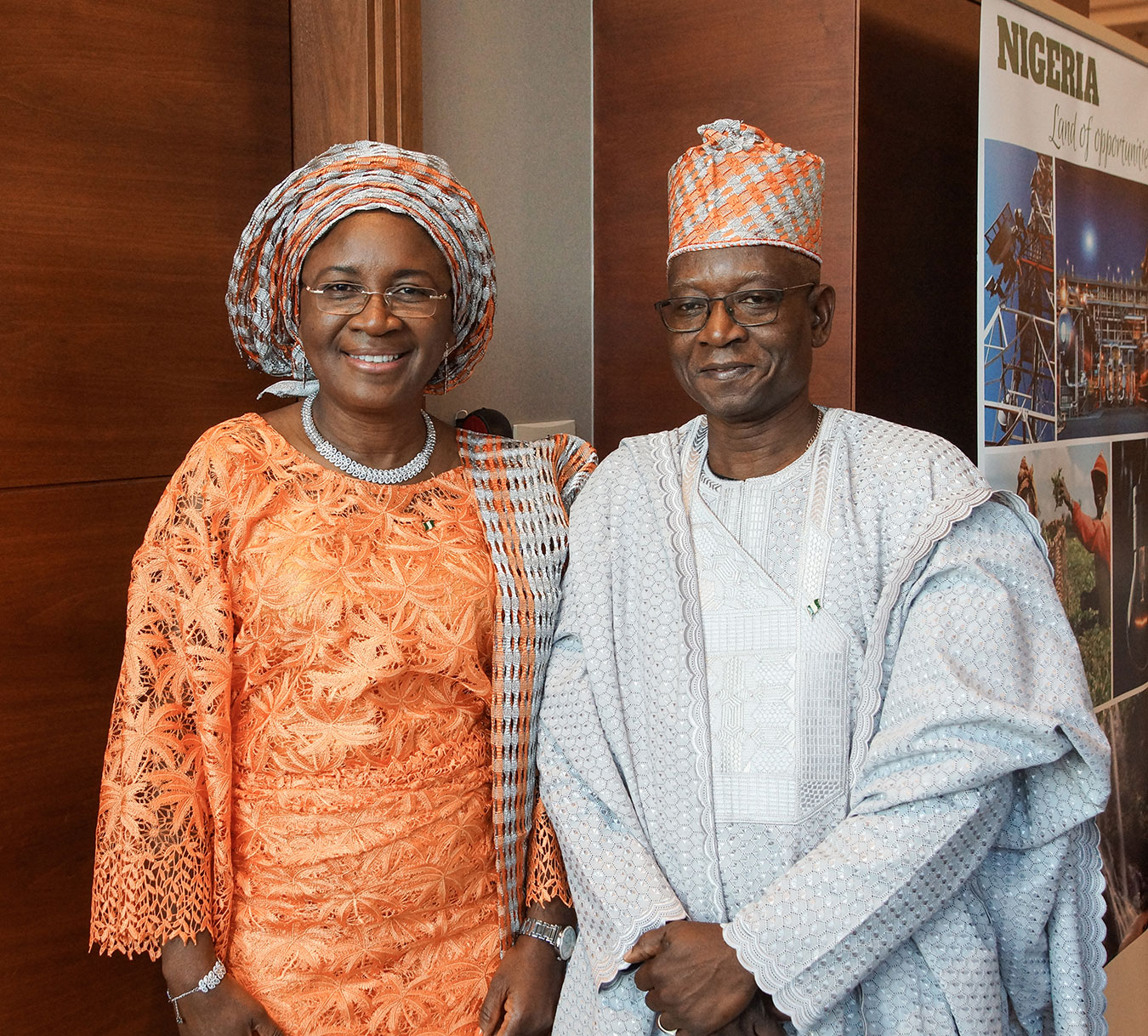 Madame Ambassador with her spouse, Mr. Adegboyega Oke, at the Nigerian National Day Reception (04-10-2019) (Photo by Ivan Aigner Ivan)
Madame Ambassador with her spouse, Mr. Adegboyega Oke, at the Nigerian National Day Reception (04-10-2019) (Photo by Ivan Aigner Ivan)
+++ Kattints ide a cikk magyar változatának olvasásához! +++
Green Environment
Your arrival 3 years ago to Budapest on the anniversary of the Hungarian Revolution of 1956 seems to be a good omen for our bilateral relations. What aspects of Hungary have had a great impact on you ever since?
It was definitely a great day to drive into Budapest with all its beauty and splendour. I have been captivated by its wonderful mix of modern and ancient architecture cascading on the hills and troughs along the natural earth forms ever since. I have been totally blown away by the green environment and the deliberate attempt to keep the atmospheric air as pristine as possible. I sincerely appreciate the attention paid to the environment.
Top 3 Values of Nigeria
Would you please share some facts and add some local spices to paint the picture of the Nigeria you hold in your heart? What three major values come to your mind at first?
Nigeria is a very diverse but very beautiful and interesting country. It has a feel-good atmosphere irrespective of the prevailing circumstances. It is a country that I am proud to call home.
The three major values that come to mind about my country Nigeria and Nigerians are:
Our friendly disposition. We are so welcoming of strangers that people readily find acceptance in our society.
Our hospitality is something that I am very proud of. The social safety net within our country means that you would always have someone to run to. We hardly have people who are homeless. You can visit a friend unannounced and you could join at a meal without any inconvenience.
Our sense of humour means that we still manage to smile even in the face of difficulty and hardship. We are very happy people.
Nigeria is also very rich in arts and culture. The tourism potential is enormous. This is one sector that I sincerely hope we can develop more in spite of our well-endowed natural resources of solid minerals, oil, and gas. I can see how this has contributed to the prosperity of Hungary.
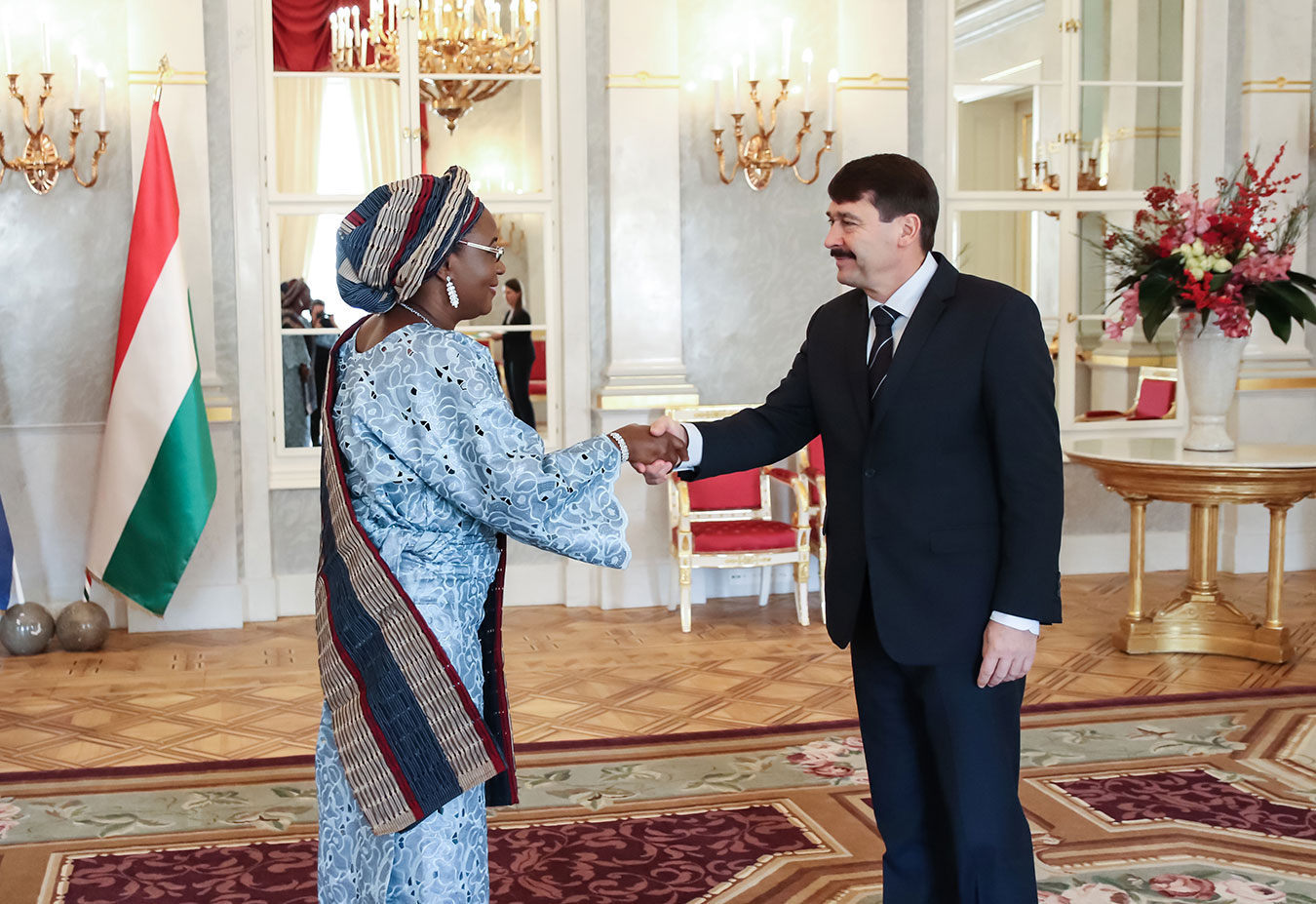 Presenting her credentials to the President of Hungary, Mr. János Áder (01-12-2017) (Photo by KEH/KKM Protokoll)
Presenting her credentials to the President of Hungary, Mr. János Áder (01-12-2017) (Photo by KEH/KKM Protokoll)
Tremendous Opportunities
Despite the fact that European countries could be more actively engaged in Africa (like China for example), our two nations have been enjoying growing and vivid relations for the last 56 years. What are the main fields of our partnership and what path lies ahead of us in strengthening this bond?
The main fields of partnerships for our countries are education and agriculture.
The Hungarian Government has been generous in offering 50 scholarship slots via Stipendium Hungaricum and 100 scholarship slots via the Young Christian Scholars Programme, affording Nigerian students the opportunity to study at Hungarian institutions of higher learning annually. We also have several private students. I understand that we have up to 1,000 Nigerian students at the University of Debrecen alone.
The agricultural value chain is so well-developed in Hungary that, I believe, we can borrow a leaf from it. There are projects already being actualized, projects in the pipeline, and some also being proposed. The opportunities are tremendous, especially in the area of reforestation. The future in this area is very bright and I am very optimistic about this partnership. The development of agriculture is a priority for the Nigerian Government.
+++ Do not miss other interviews and reception reviews! Click the KÖVETÉS button… +++
An Educated Army of Ambassadors
As you pointed out, Hungary is a major hub for young Nigerian people who come in large numbers to study in various educational institutions. In your opinion, what makes our country attractive and what value may this add to our present and future cooperation?
A lot of Nigerians choose Hungarian institutions for their education for several reasons. The first is that they have the benefit of being taught in English, which happens to be our language of instruction from an early age. The second reason is that Hungary has a good standard of education. The other reason is that the academic fees charged in Hungary are competitive, especially compared to the USA or UK.
We hope that this would provide a platform for better understanding between our people for a mutually beneficial relationship. They naturally become ambassadors of Hungary to Nigeria.
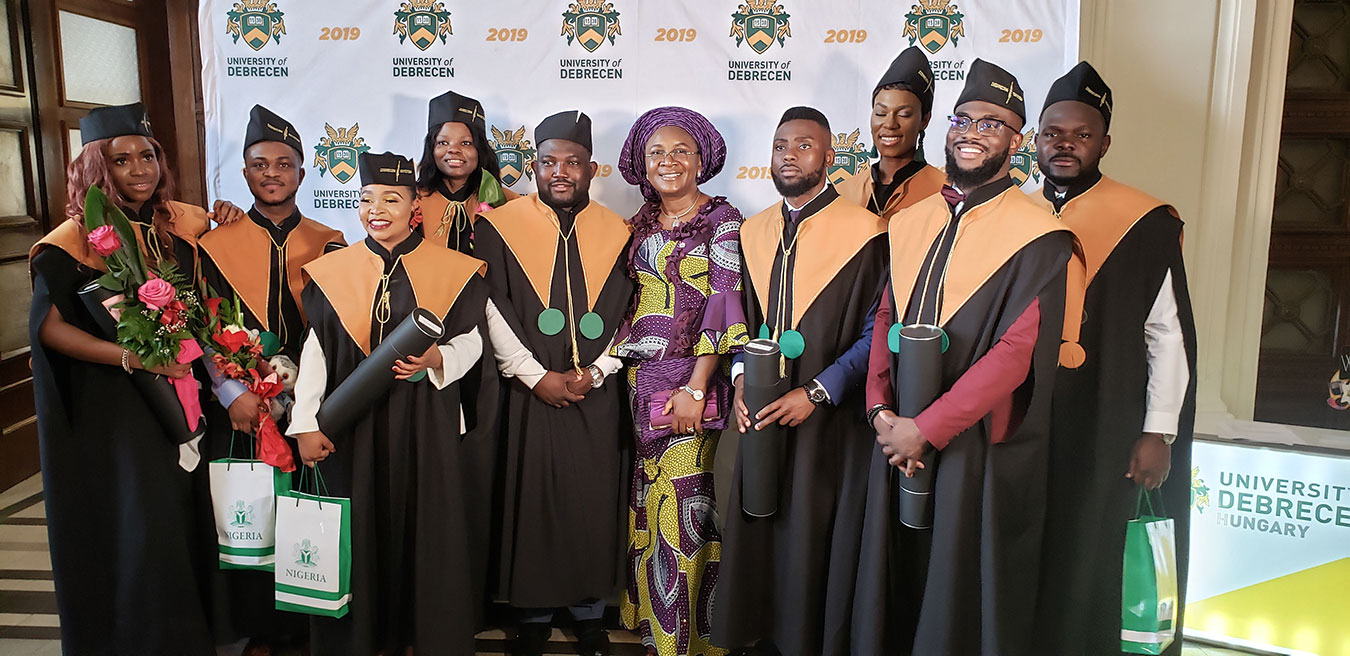 After the graduation ceremony of the Medical Faculty of the University of Debrecen (2019) (Photo by Nigerian Embassy)
After the graduation ceremony of the Medical Faculty of the University of Debrecen (2019) (Photo by Nigerian Embassy)
3 ‘I’s for Cooperation
In terms of results and achievements, what are you really proud of with regard to your current mission?
I am proud of the positive impact that we are making on our Nigerian citizens and within Hungarian society. The three ‘I’s – inclusion for our citizens and host nation, image building, and investment drives for Nigeria – are all being achieved slowly but surely. I am particularly happy because I have a crop of staff who understand the vision of the Mission and are cooperating to actualize them.
It is heartwarming to note that the Minister of Foreign Affairs and Trade, Mr. Péter Szijjártó has been very receptive and cooperative on issues of mutual benefit to our countries.
I am also happy that our bilateral relations received a boost with two ministerial visits last September. This would make my job a lot easier and open more opportunities in both ways.
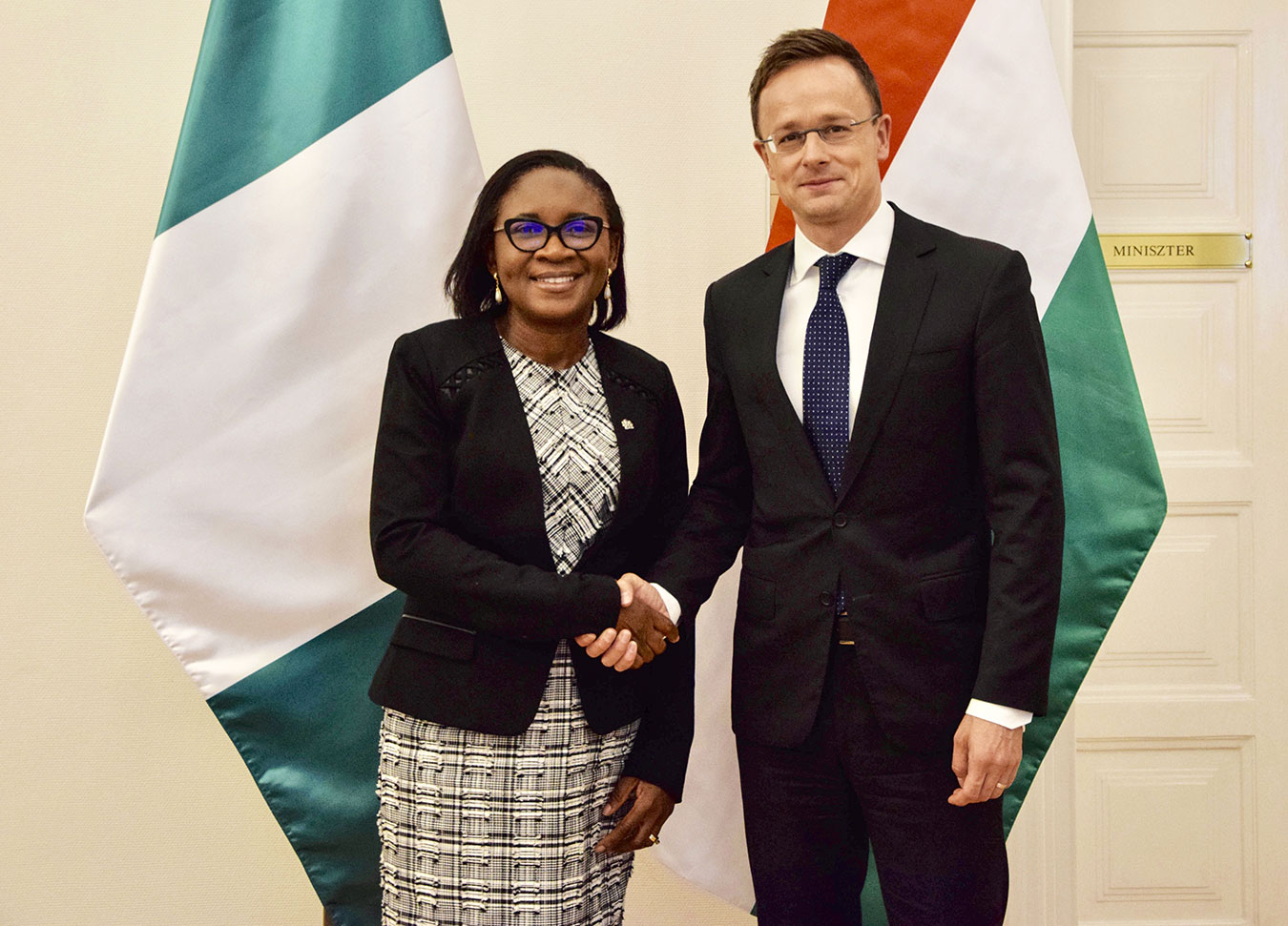 Madame Ambassador in the company of Mr. Péter Szijjártó, Hungary's Minister of Foreign Affairs and Trade (Photo by KKM Protokoll)
Madame Ambassador in the company of Mr. Péter Szijjártó, Hungary's Minister of Foreign Affairs and Trade (Photo by KKM Protokoll)
Awakening World
An OECD study pointed out a link between poverty reduction and the development of the female human capital of a country. Taking the very fortunate evolution of gender equality into consideration, what has changed over the course of your career and how would you define your role in moving the issue ahead?
Gender equality is a sensible antidote to development in our world. Making the opinion and gifts of over 50% of the population count is not just required, it is impossible to ignore. The other reason that women must be given their space in the scheme of things is because research has shown that we are actually good managers of time, resources, and humans. Our natural ability to multitask and inborn empathy makes us indispensable at the workplace. I believe the world has finally woken up to this reality.
What I bring onboard on this discussion is, first, to make a difference within my sphere of existence and then to lift my voice on the need for women to be included in every area of our organized society, both formal and informal. Men must willingly concede some spaces for women because it is not in our character to compete assertively or aggressively.
♦ ♦ ♦ ♦ ♦
✅ Do you like the article? Like and share it!
⛔ Any constructive opinion? Let it flow out! Write a comment!
❓ Are you curious what other exciting and interesting articles are coming up next? Definitely click on the KÖVETÉS (i.e. Follow) button in the upper right corner!
➕ Are you wondering who pulls the strings in the background? Are you keen on getting more details? Join me on Facebook and Instagram!
Like me on clicking at www.facebook.com/diplomaciamindenkinek!
♦ ♦ ♦ ♦ ♦
The Sun Will Shine Again
To some extent, we all face loss and hardship in our lives. What helped you to cope with the unimaginable tragedy that struck you as a mother? How could the Light break through this immense darkness? What force(s) enabled you to continue with fulfilling your duties as ambassador of your homeland?
Losing my first daughter, Oluwadolapo Ajayi on the day my father was being buried is the worst day of my life. She died from a cranial aneurysm. The whole episode of receiving a call that my daughter had a serious headache, to taking her to the hospital and eventually giving up after a spirited battle by several doctors, lasted just under four hours.
Frankly, I am still in shock. It is very hard to cope with the loss of a daughter who was almost twenty-seven years old and almost perfect. She was bold, beautiful, and brilliant. How does anyone get over that? I have just managed to immerse myself in work because it affords me the distraction that I need. My faith in the Lord Jesus Christ has been the anchor of my soul. I rely on the promise that he would never leave me, nor forsake me. I know that God’s thoughts towards me are good. I just carry on believing that the sun will shine again. It has been tough.
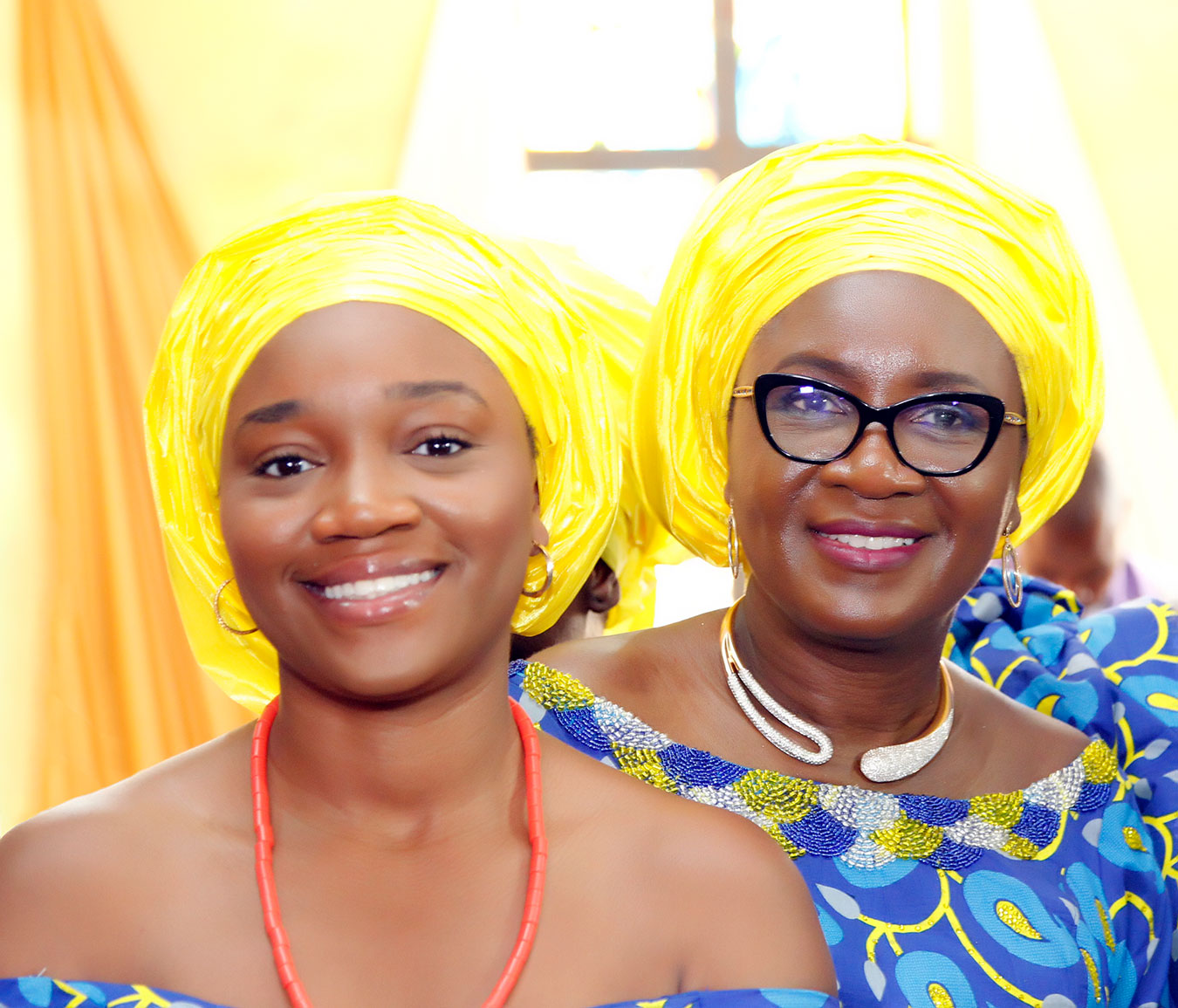 Madame Ambassador with her firstborn daughter, Oluwadolapo Ajayi (Photo: Private archive)
Madame Ambassador with her firstborn daughter, Oluwadolapo Ajayi (Photo: Private archive)
Passion for Education for Everyone
As a researcher for eye care, would you mind to let us get a glimpse behind the scenes? What outside-of-work activities are you exceptionally passionate about as a private person?
I enjoyed working as an Optometrist/Ocular Pathologist since graduation in 1986 till I was appointed a Commissioner for Education, Science and Technology in my State in Nigeria in 2010. I am very passionate about education and my life’s goal is to see every Nigerian child educated. I enjoy nature and art. Exploring the countryside and historical places is something I am particularly fond of. My experience with Zsolnay and Herend porcelain is priceless. Visiting both manufactories was very refreshing for me. I also love nearly all genres of music.
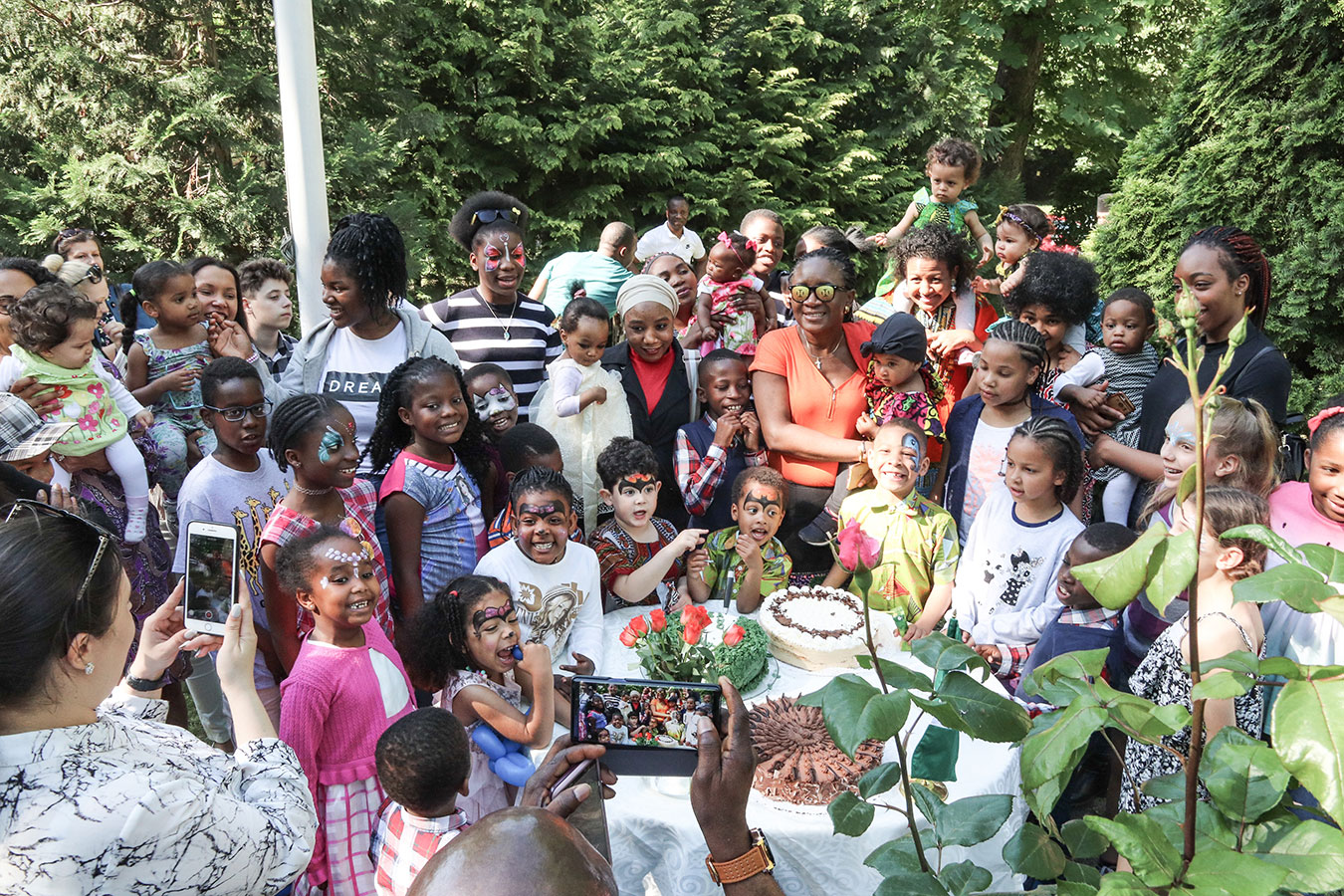 Children's Day celebration (May 2019) (Photo by Nigerian Embassy)
Children's Day celebration (May 2019) (Photo by Nigerian Embassy)
The Essence of Greatness
Since I believe in the creating power of speaking out our thoughts and dreams, I wonder what kind of world you would love to leave behind to the next generations…
I would love a world where peace, unity, and justice would reign. A world devoid of prejudice and discrimination. A world where there are consideration and kindness for our fellow human beings. A world that cares about its environment and the future of generations yet unborn. I always want to leave a person or place better than I met it. I believe that the reason God created us with different gifts is to enable us to add value to others. I sincerely believe that greatness does not consist in being great but the ability to make others great.
Useful Links
Do you want to know more about Nigeria, the operation and mission of the Nigerian Embassy? Are you interested in Nigerian-related programs and events? Visit the Official website of the Nigerian Embassy...

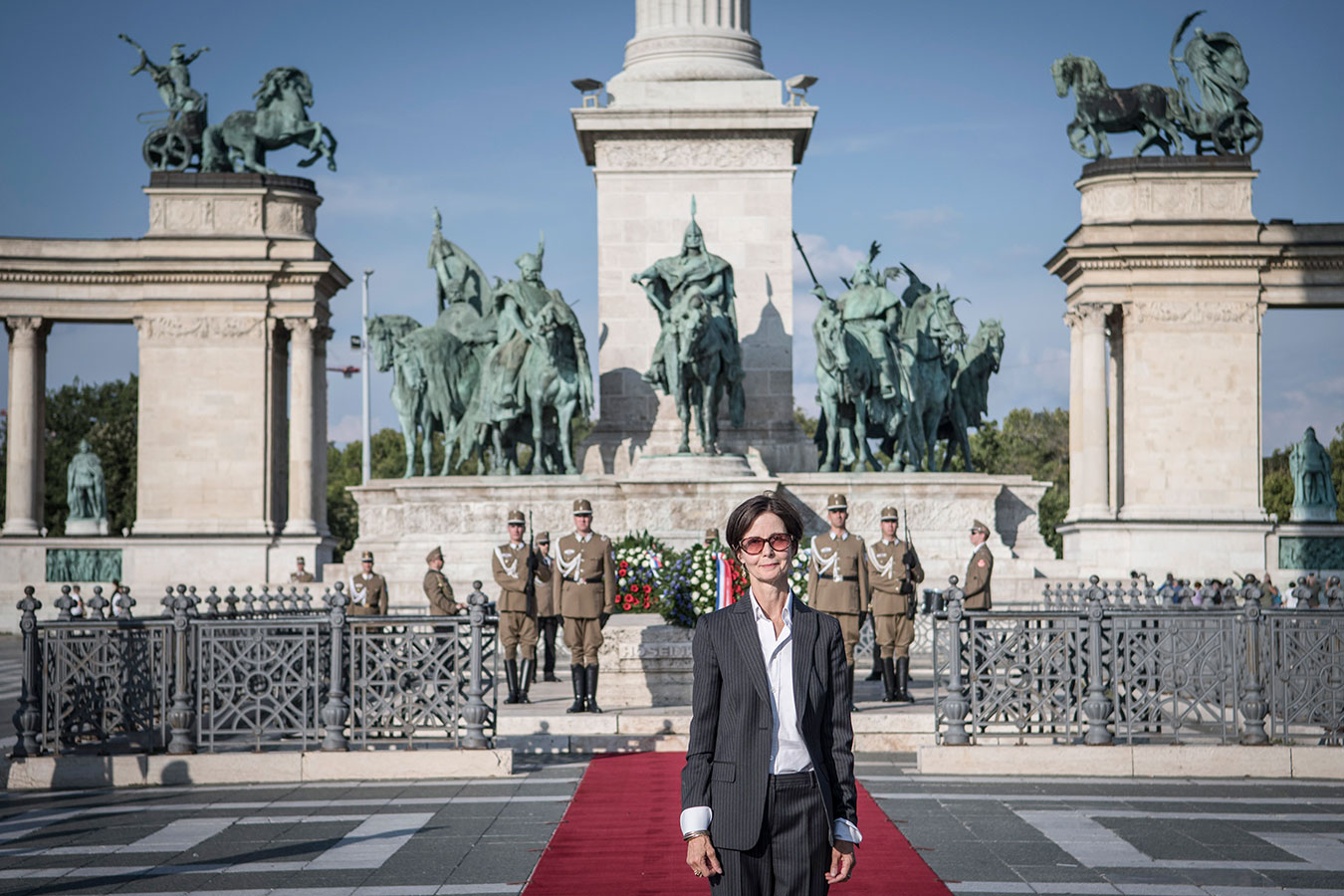 A la place des Héros (05-09-2018) (Photo : Zsolt Burger)
A la place des Héros (05-09-2018) (Photo : Zsolt Burger) Discours lors d'un gala (2018) (Photo : csaladbaratvallalat.hu)
Discours lors d'un gala (2018) (Photo : csaladbaratvallalat.hu)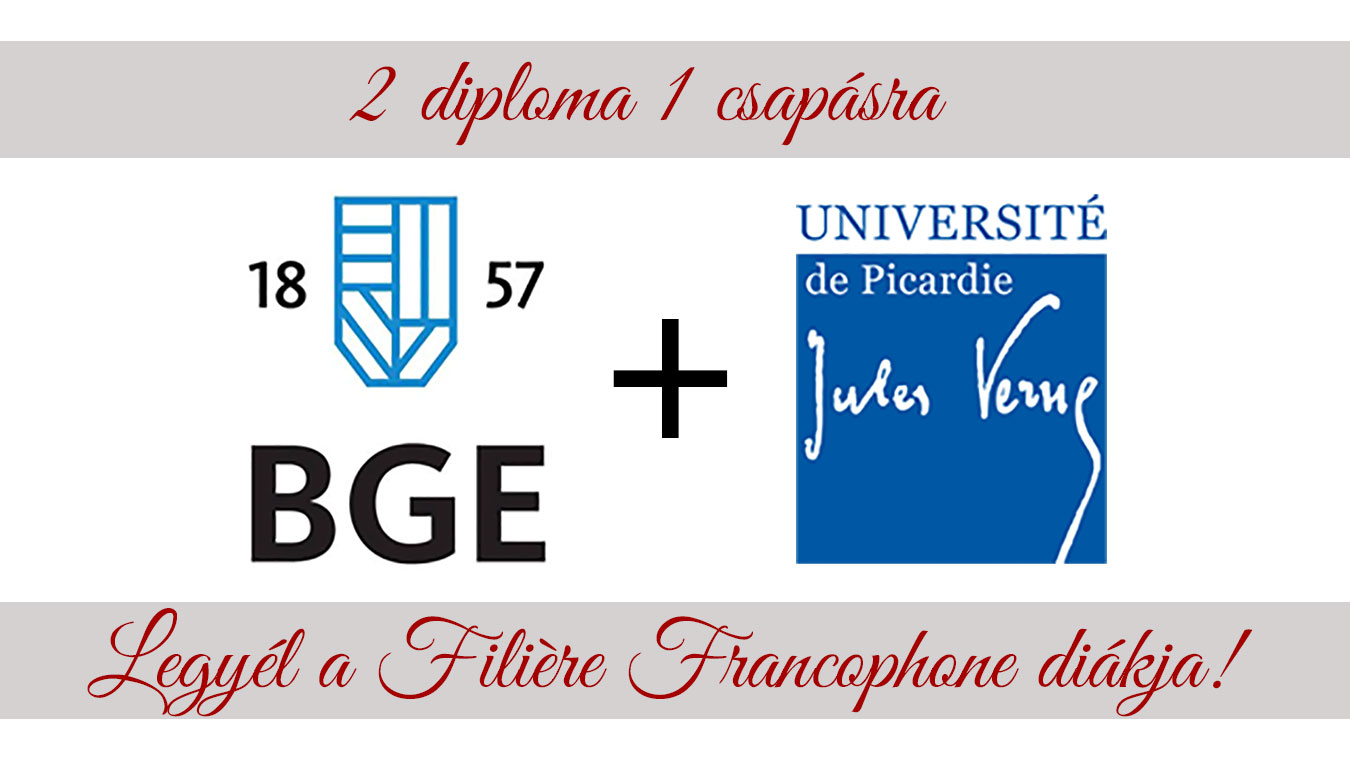 Pour plus d'informations, cliquez sur l'image ci-dessus...
Pour plus d'informations, cliquez sur l'image ci-dessus...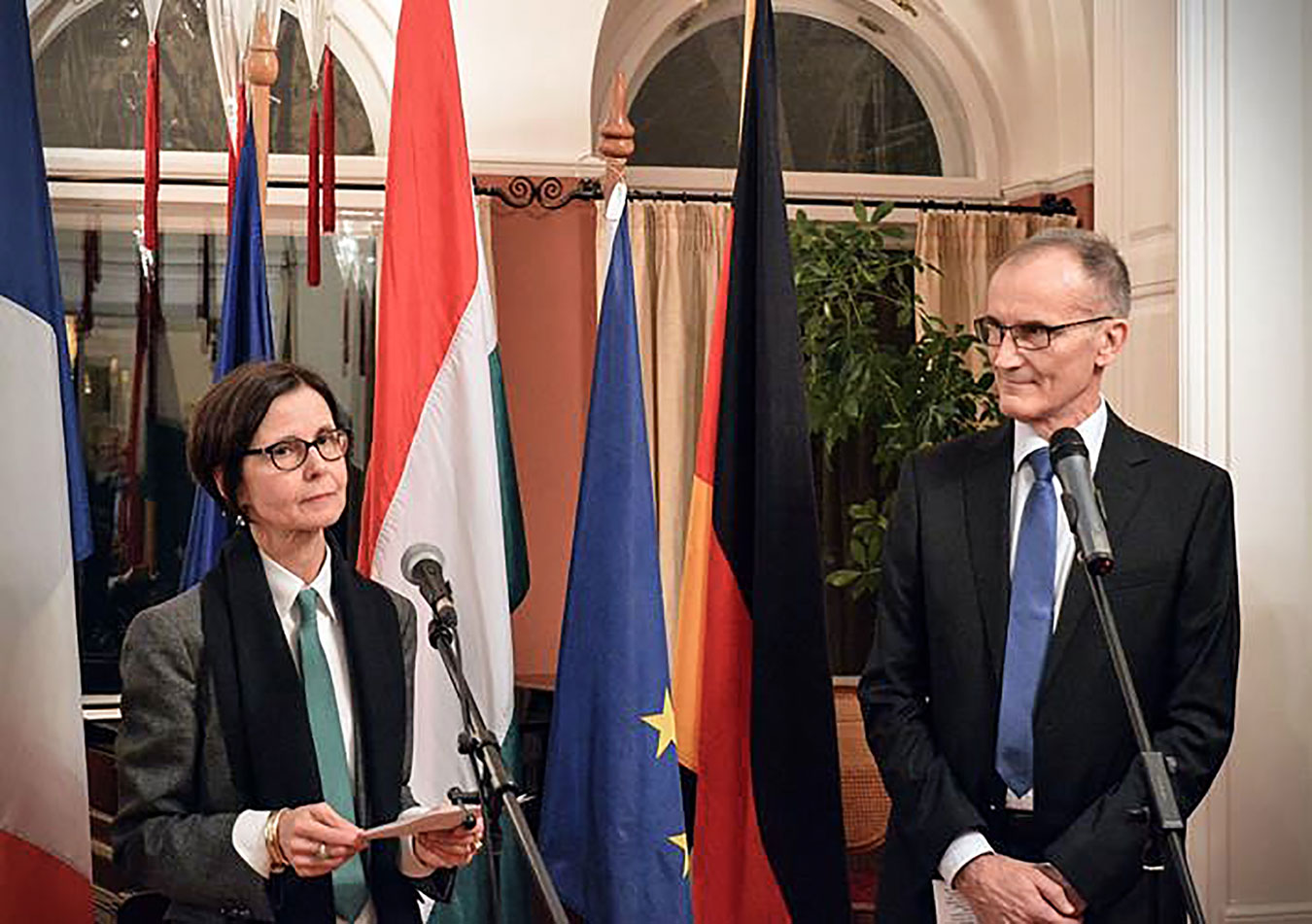 Avec l'ambassadeur allemand, Volkmar Wenzel (Photo: Ambassade de France en Hongrie)
Avec l'ambassadeur allemand, Volkmar Wenzel (Photo: Ambassade de France en Hongrie) 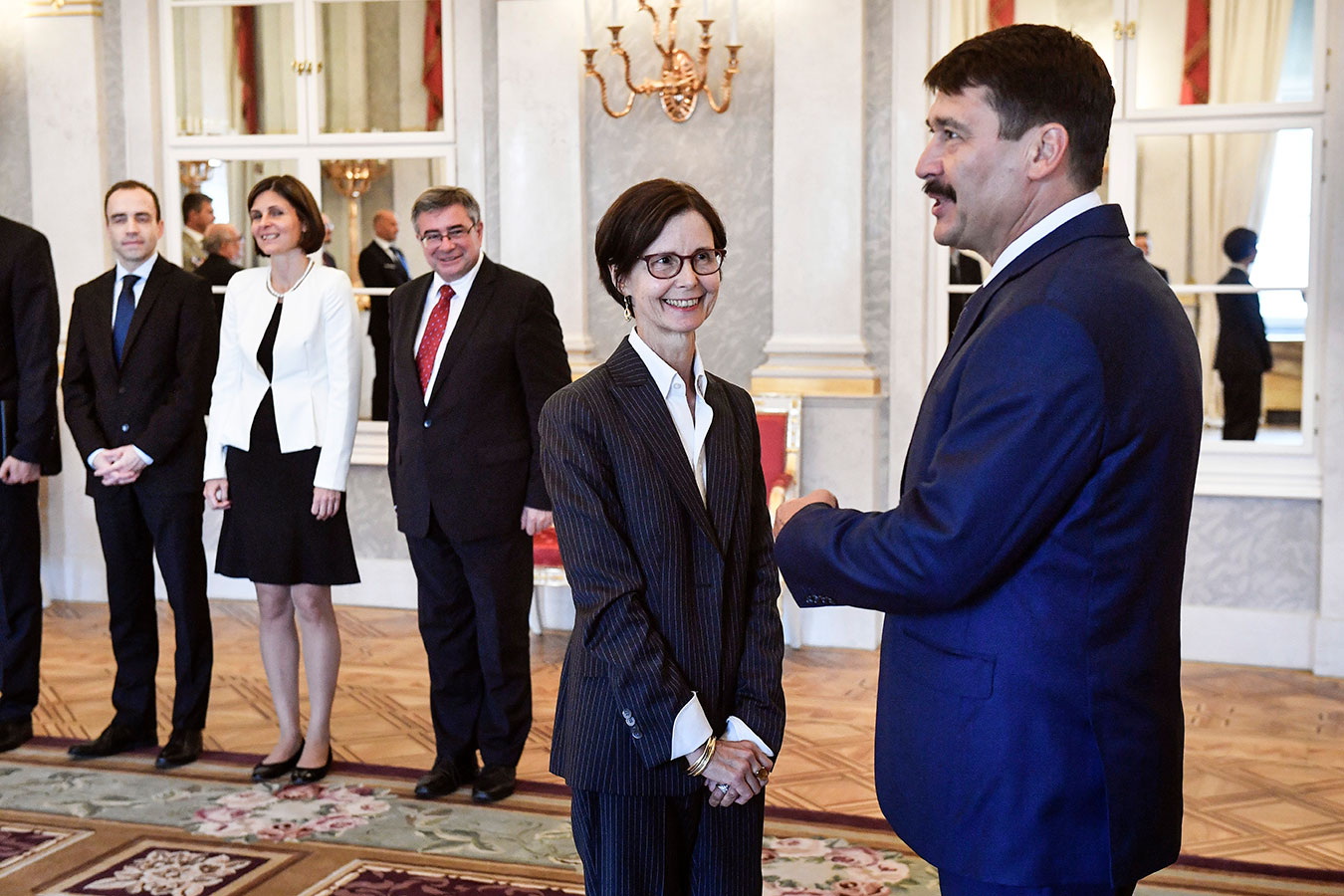 Présentation des lettres de créance au président János Áder (05-09-2018) (Photo : Zsolt Burger)
Présentation des lettres de créance au président János Áder (05-09-2018) (Photo : Zsolt Burger)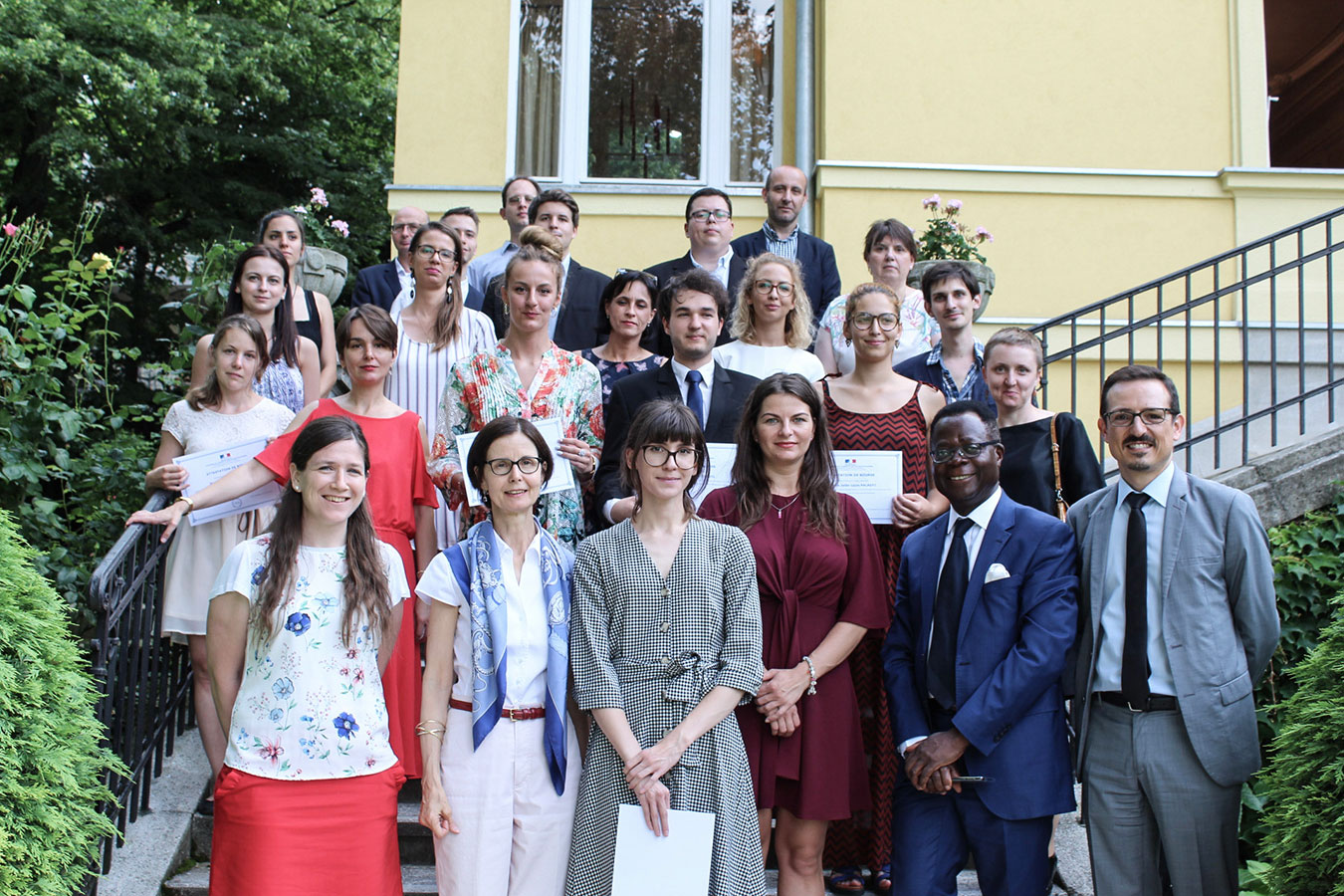 Reception des boursiers du gouvernement français à la Résidence de France (24-06-2019) (Photo: Ambassade de France en Hongrie)
Reception des boursiers du gouvernement français à la Résidence de France (24-06-2019) (Photo: Ambassade de France en Hongrie)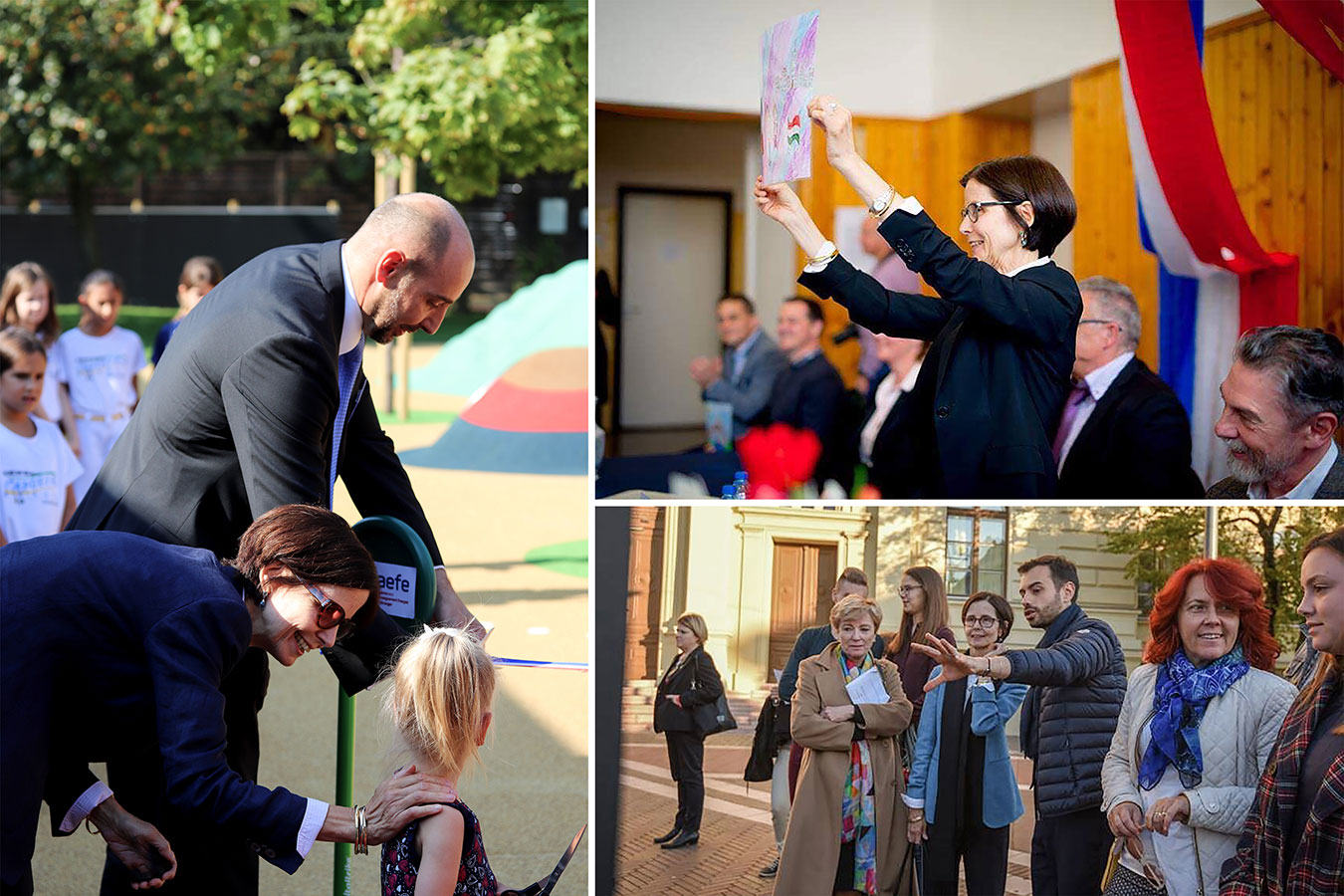 Ambassadeur au vernissage d'une exposition à Szeged, ainsi que dans une école à Budapest et à Nyíregyháza (Photo: Ambassade de France en Hongrie / szeged.hu)
Ambassadeur au vernissage d'une exposition à Szeged, ainsi que dans une école à Budapest et à Nyíregyháza (Photo: Ambassade de France en Hongrie / szeged.hu)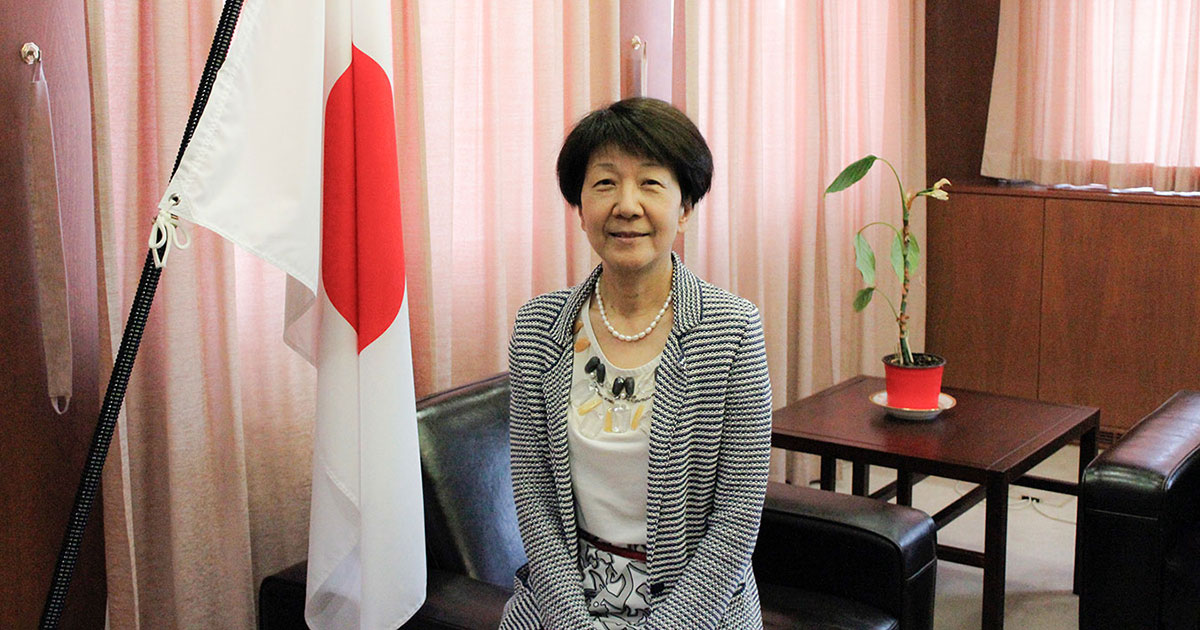 Her Excellency Ambassador Kuni Sato in her office (Photo: Private archive)
Her Excellency Ambassador Kuni Sato in her office (Photo: Private archive)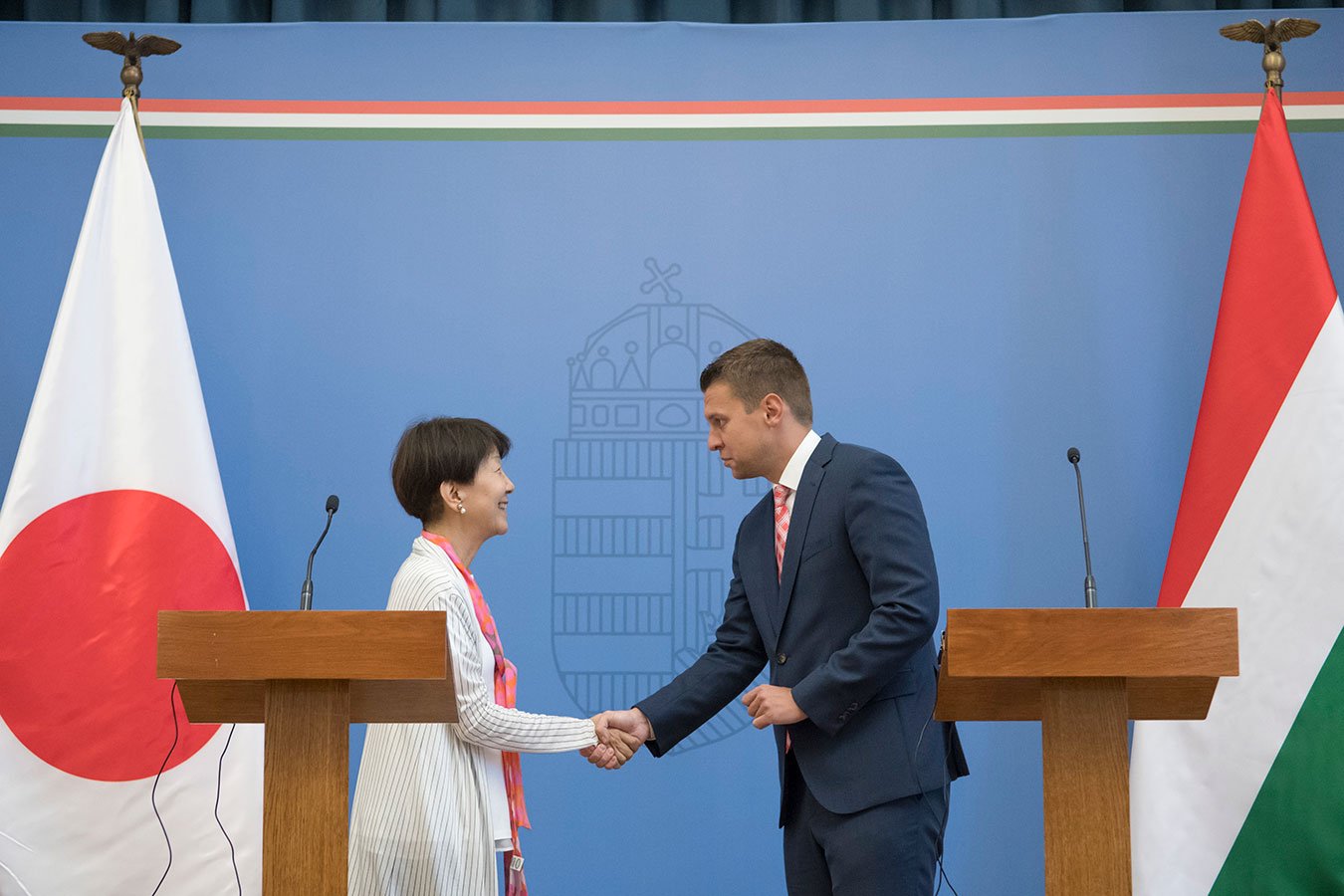
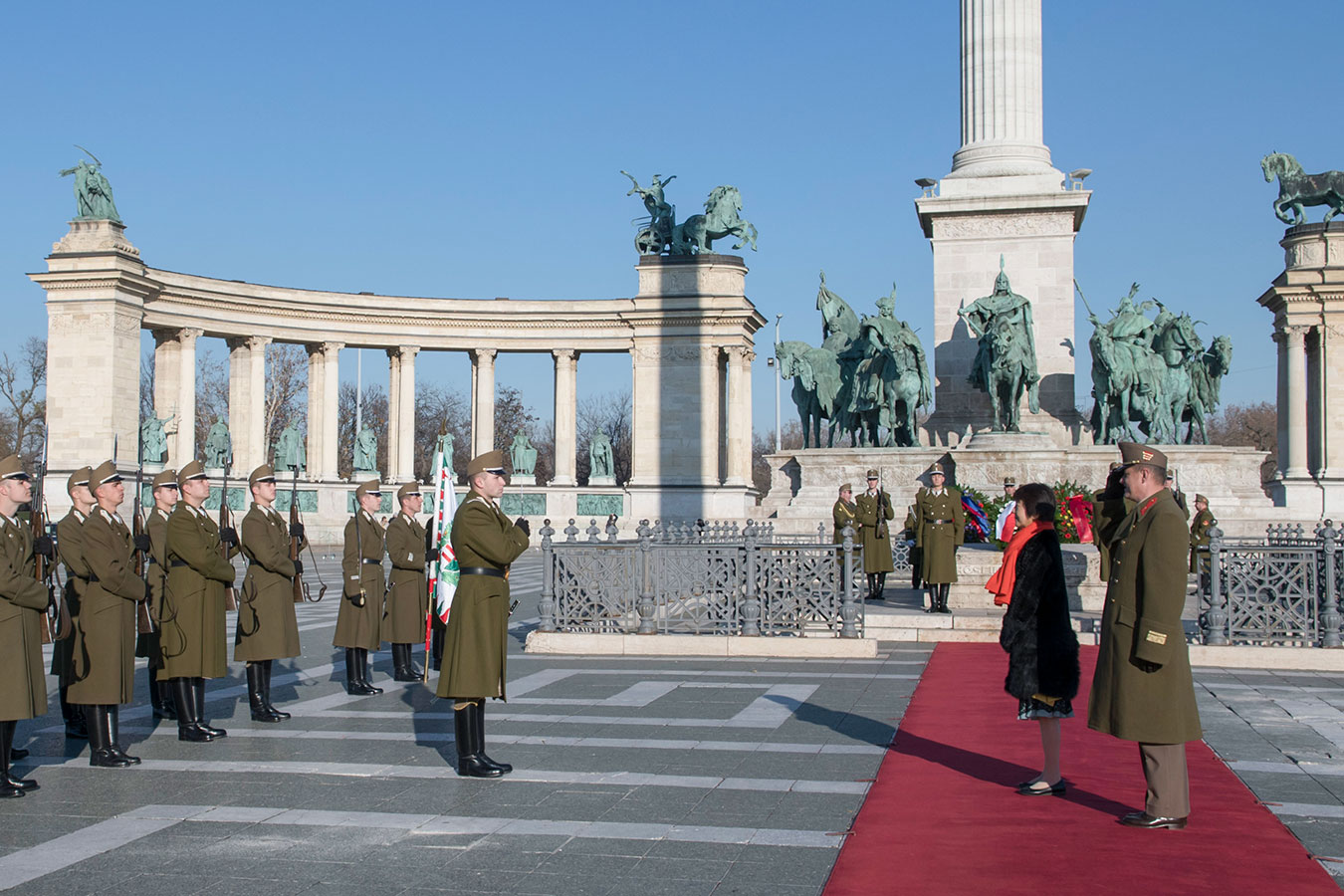

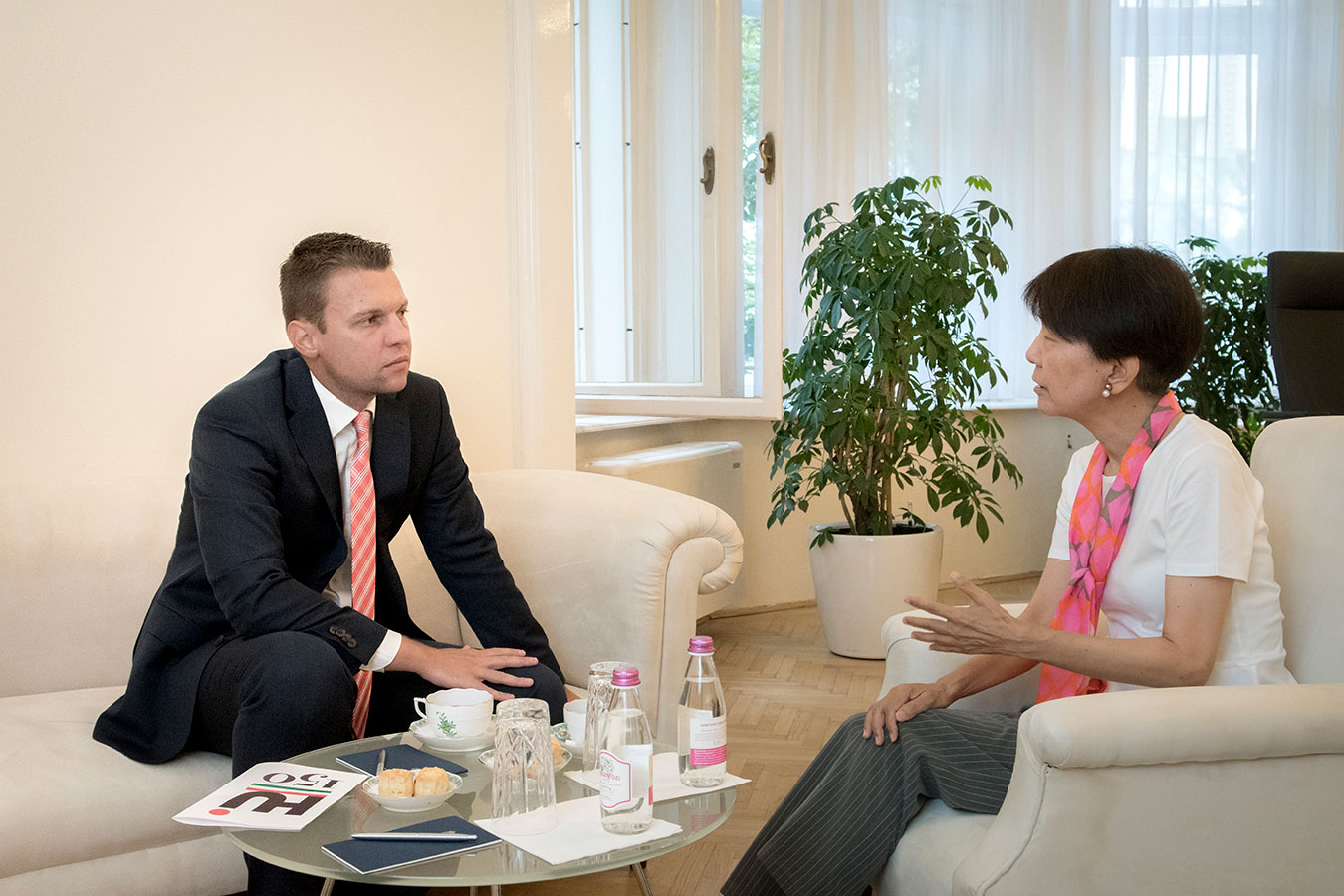
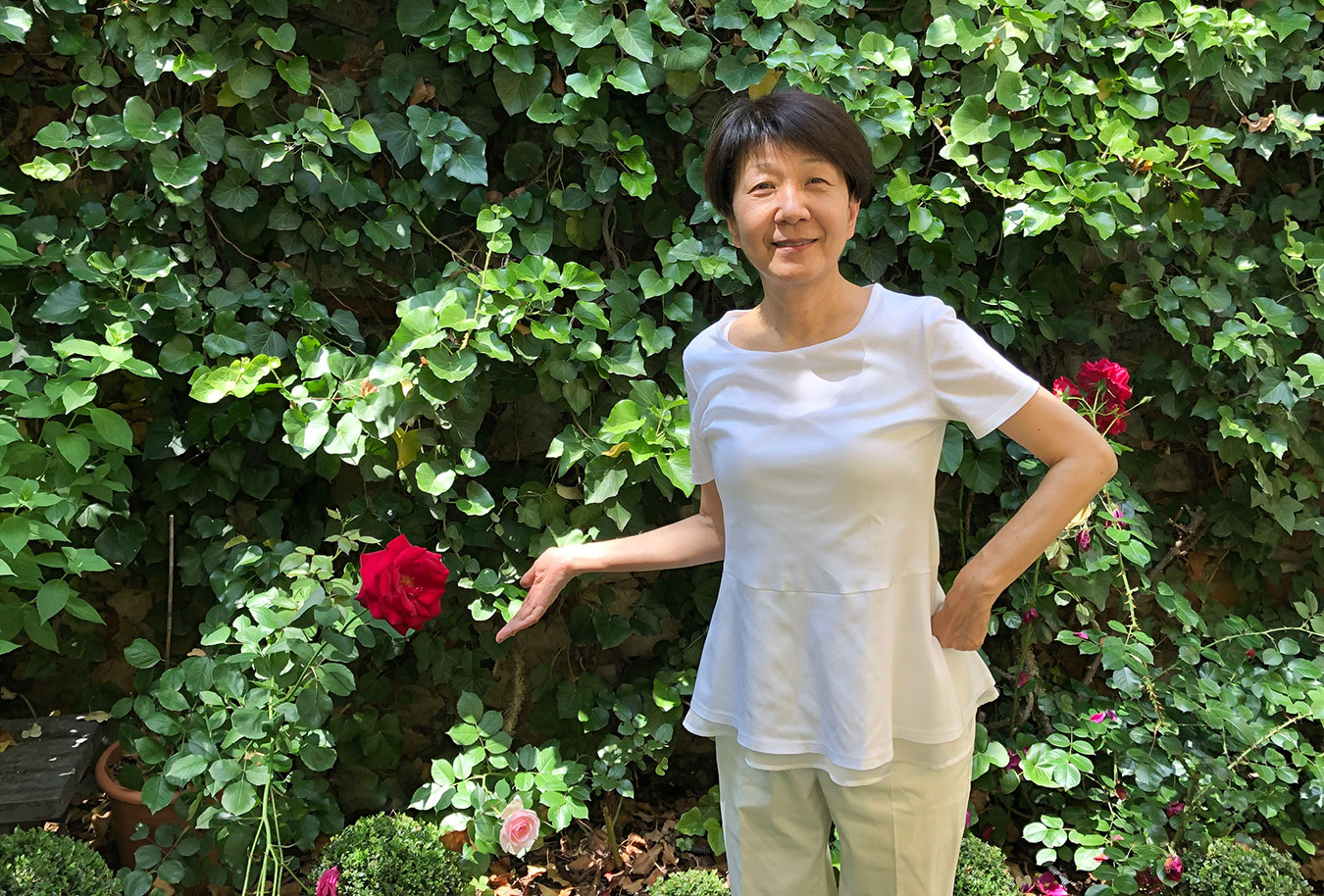 The nature-loving Ambassador surrounded by roses (Photo: Private archive)
The nature-loving Ambassador surrounded by roses (Photo: Private archive)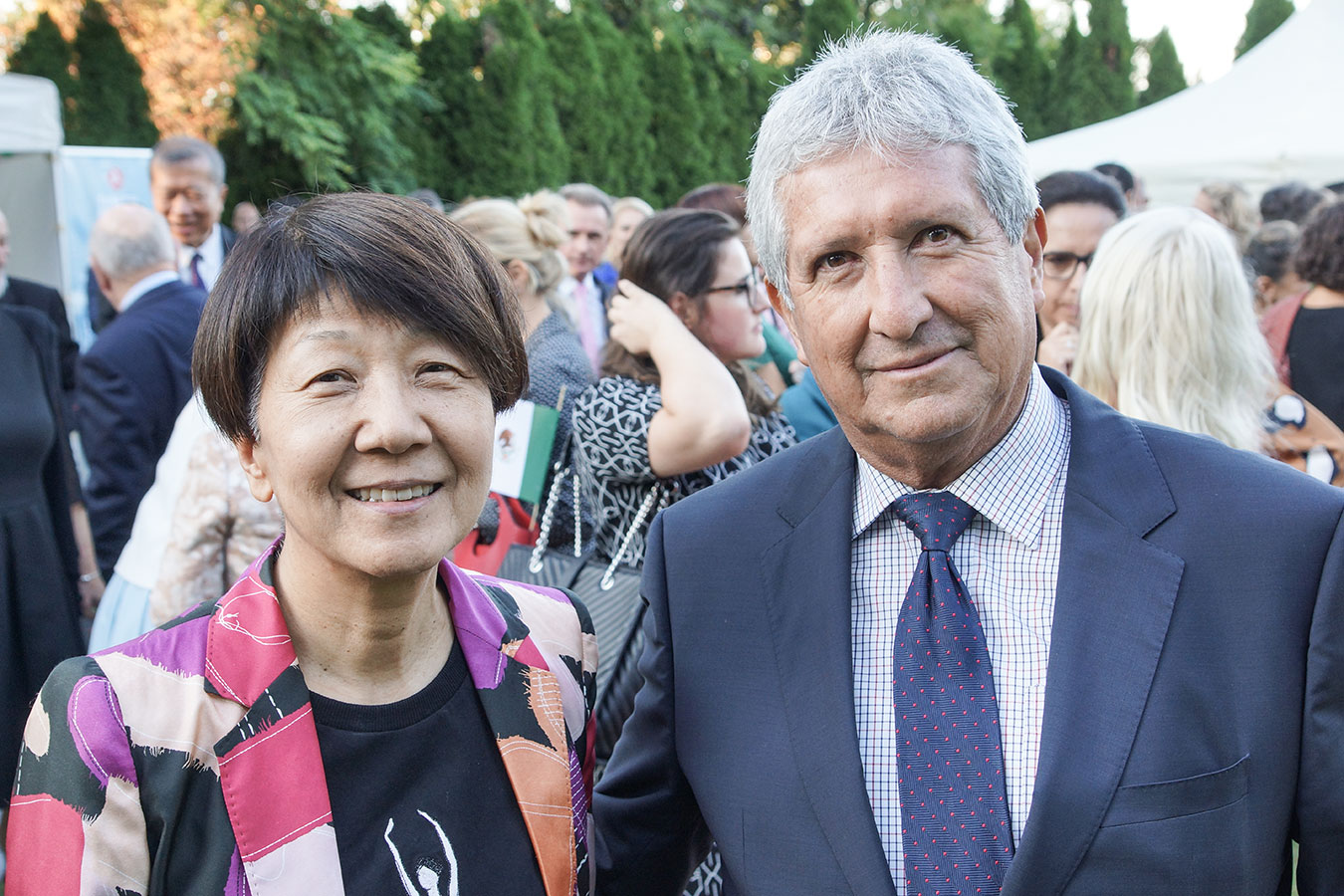 Ambassador Sato with her Peruvian colleague, H.E.
Ambassador Sato with her Peruvian colleague, H.E. 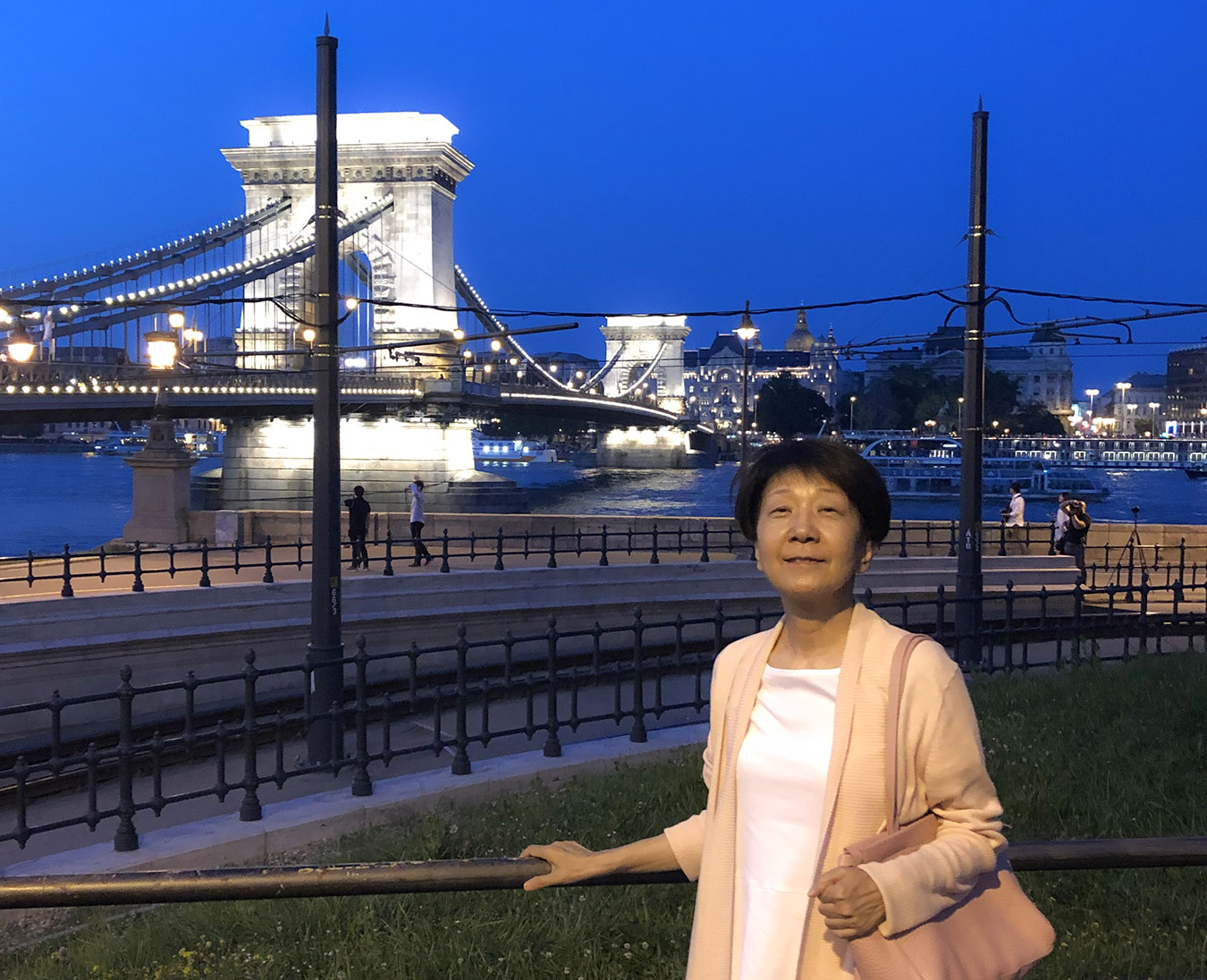 Ambassador Sato at Chain Bridge in Budapest (Photo: Private archive)
Ambassador Sato at Chain Bridge in Budapest (Photo: Private archive)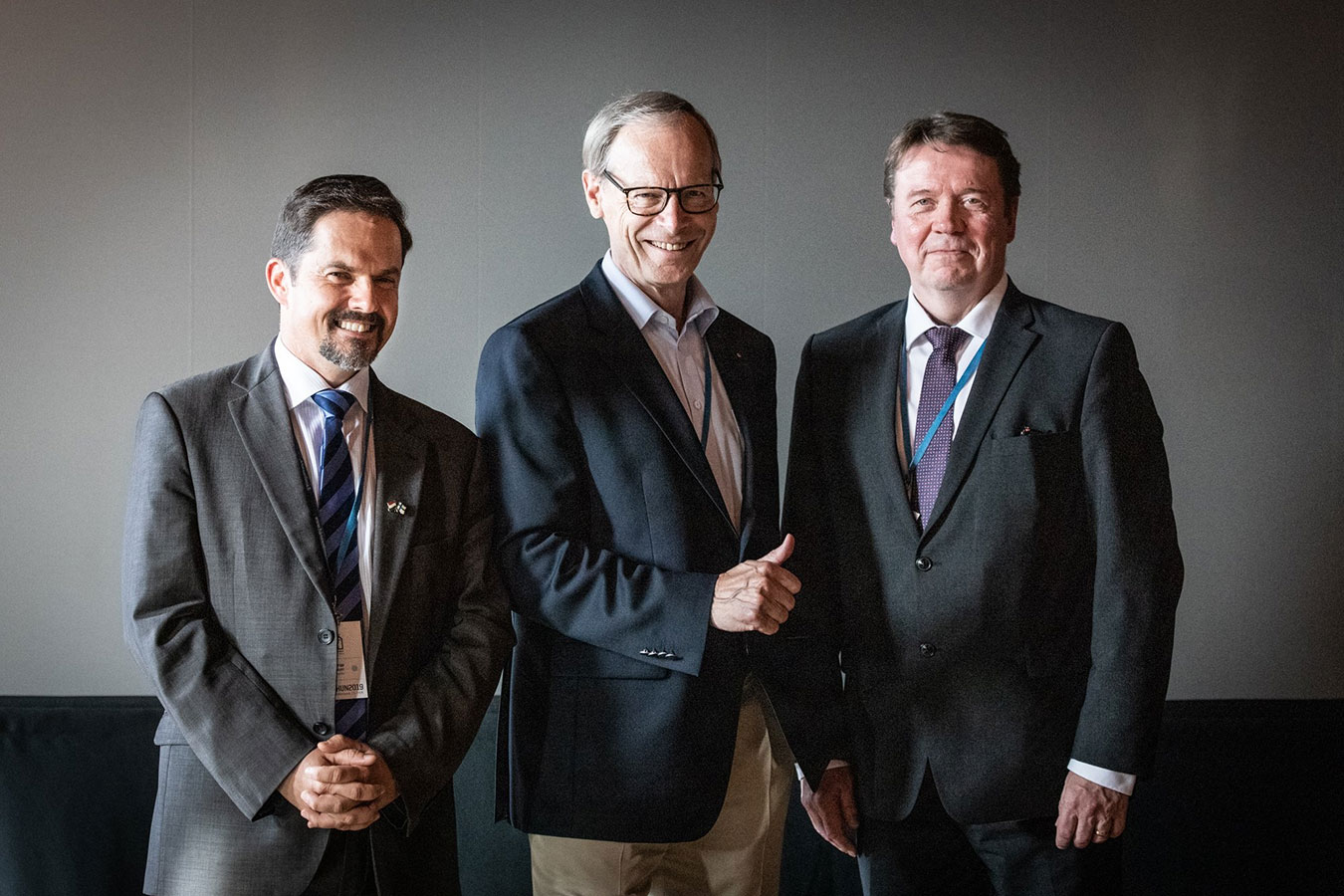 With György Urkuti, Ambassador of Hungary to Finland and Pertti Torstila, former Ambassador of Finland (June 2019) (Photo by Miika Kangasniemi)
With György Urkuti, Ambassador of Hungary to Finland and Pertti Torstila, former Ambassador of Finland (June 2019) (Photo by Miika Kangasniemi)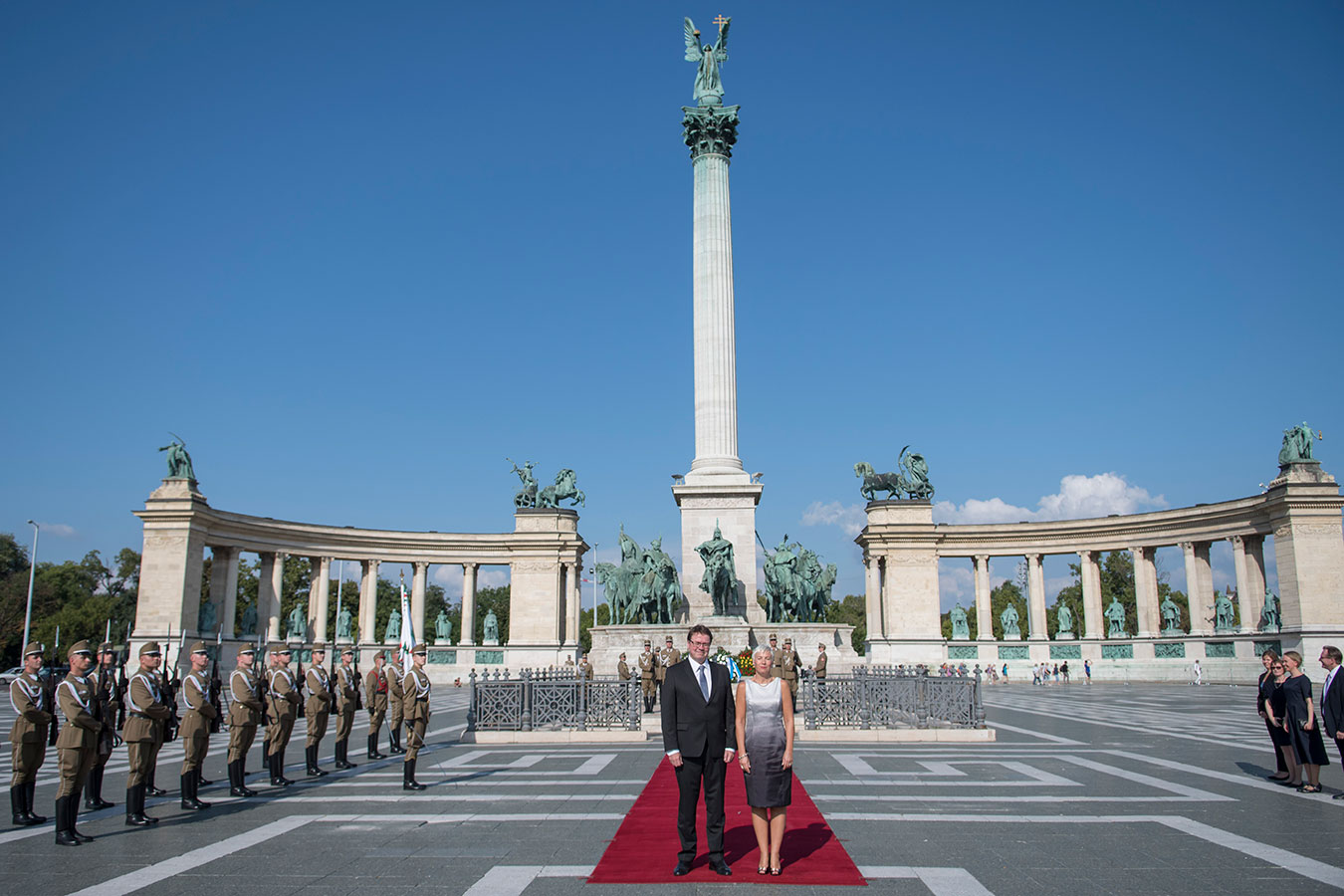 Ambassador Virri with his spouse at Heroes' Square in Budapest after the wreath ceremony (05-09-2018) (Photo by KEH/KKM Protokoll)
Ambassador Virri with his spouse at Heroes' Square in Budapest after the wreath ceremony (05-09-2018) (Photo by KEH/KKM Protokoll)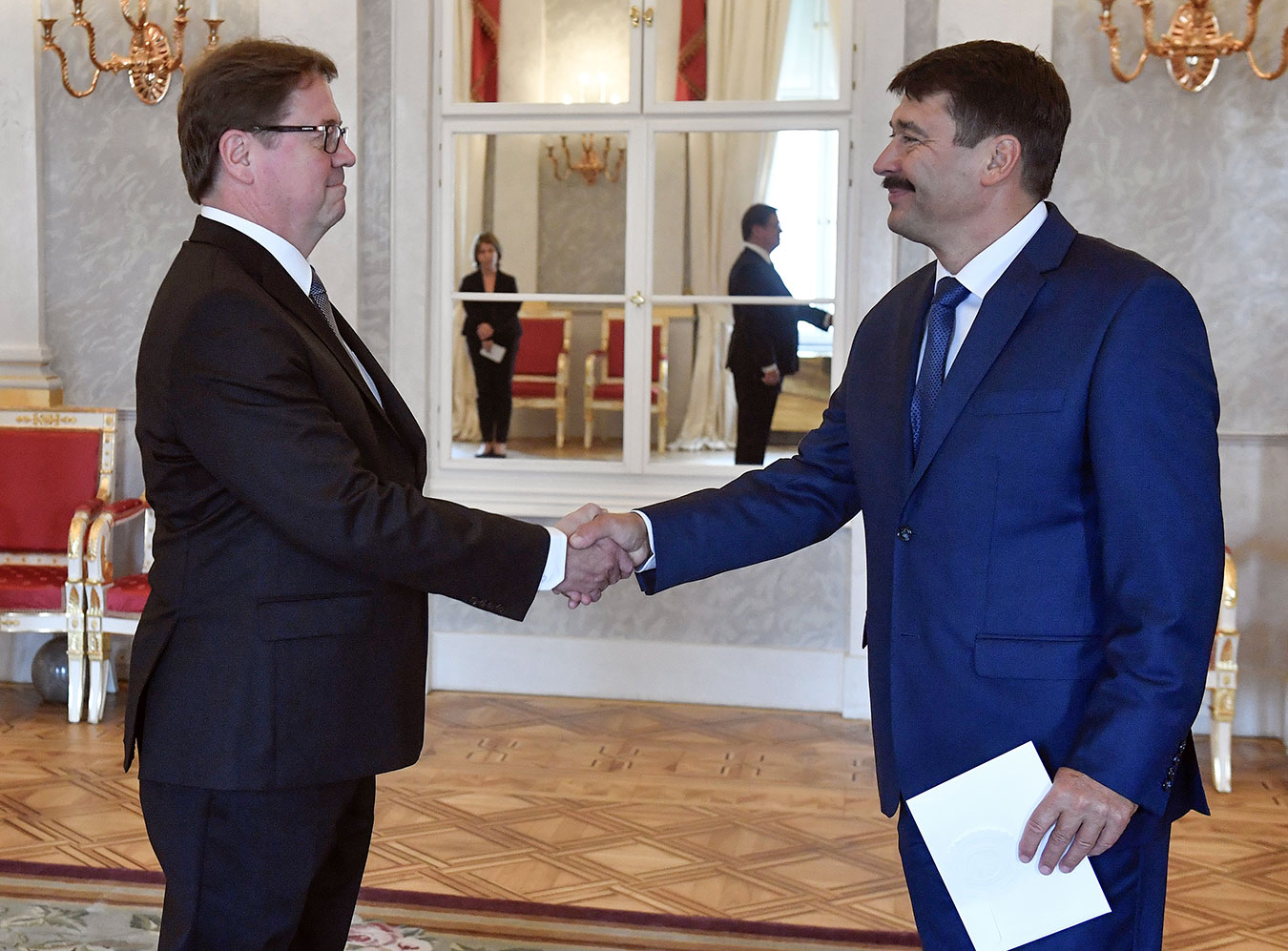 Presenting his credentials to Hungarian President János Áder (05-09-2018) (Photo by KEH/KKM Protokoll)
Presenting his credentials to Hungarian President János Áder (05-09-2018) (Photo by KEH/KKM Protokoll)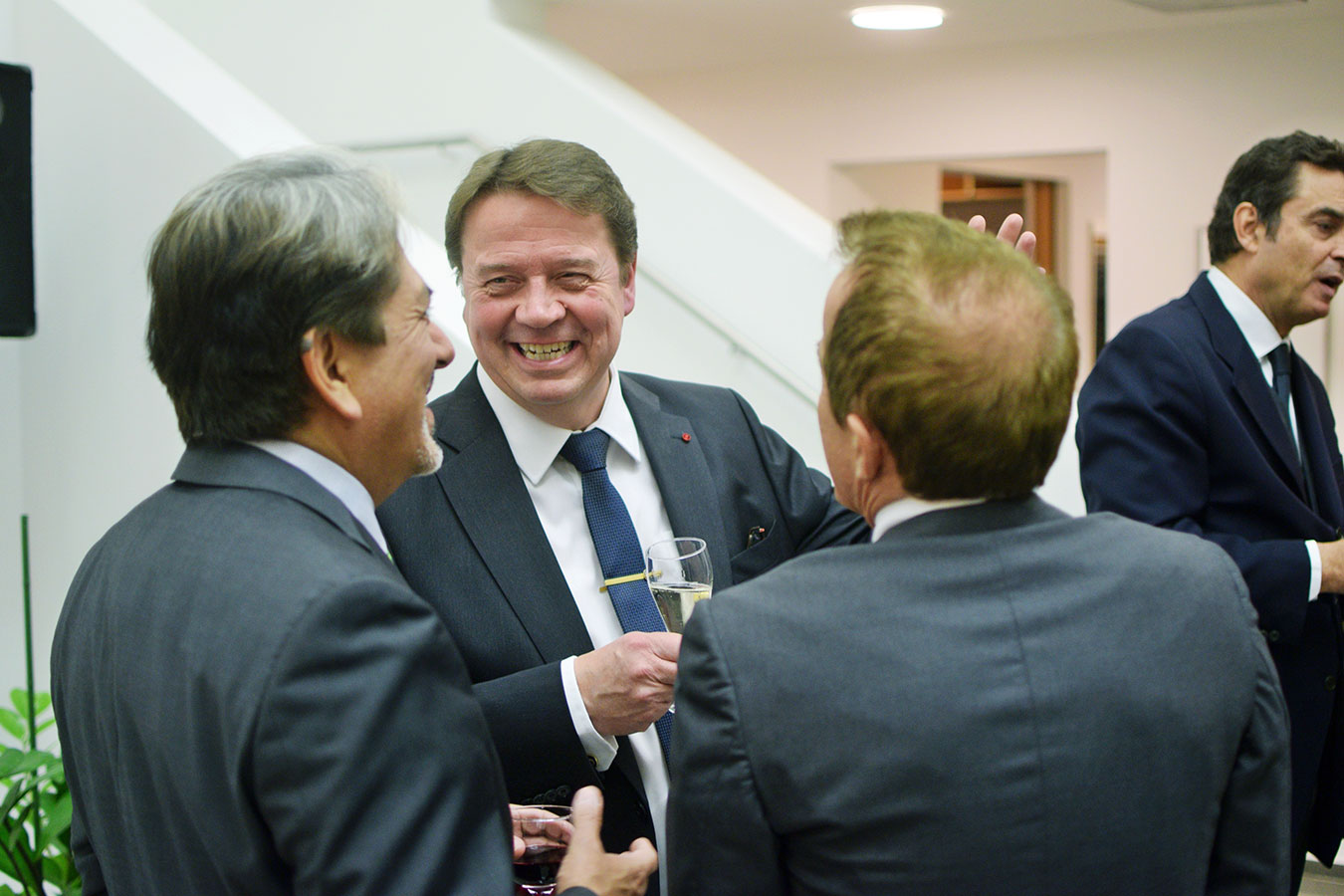 Cordial conversation with his Mexican and Swiss colleagues (06-12-2018) (Photo by Enikő Bianka Dancs)
Cordial conversation with his Mexican and Swiss colleagues (06-12-2018) (Photo by Enikő Bianka Dancs)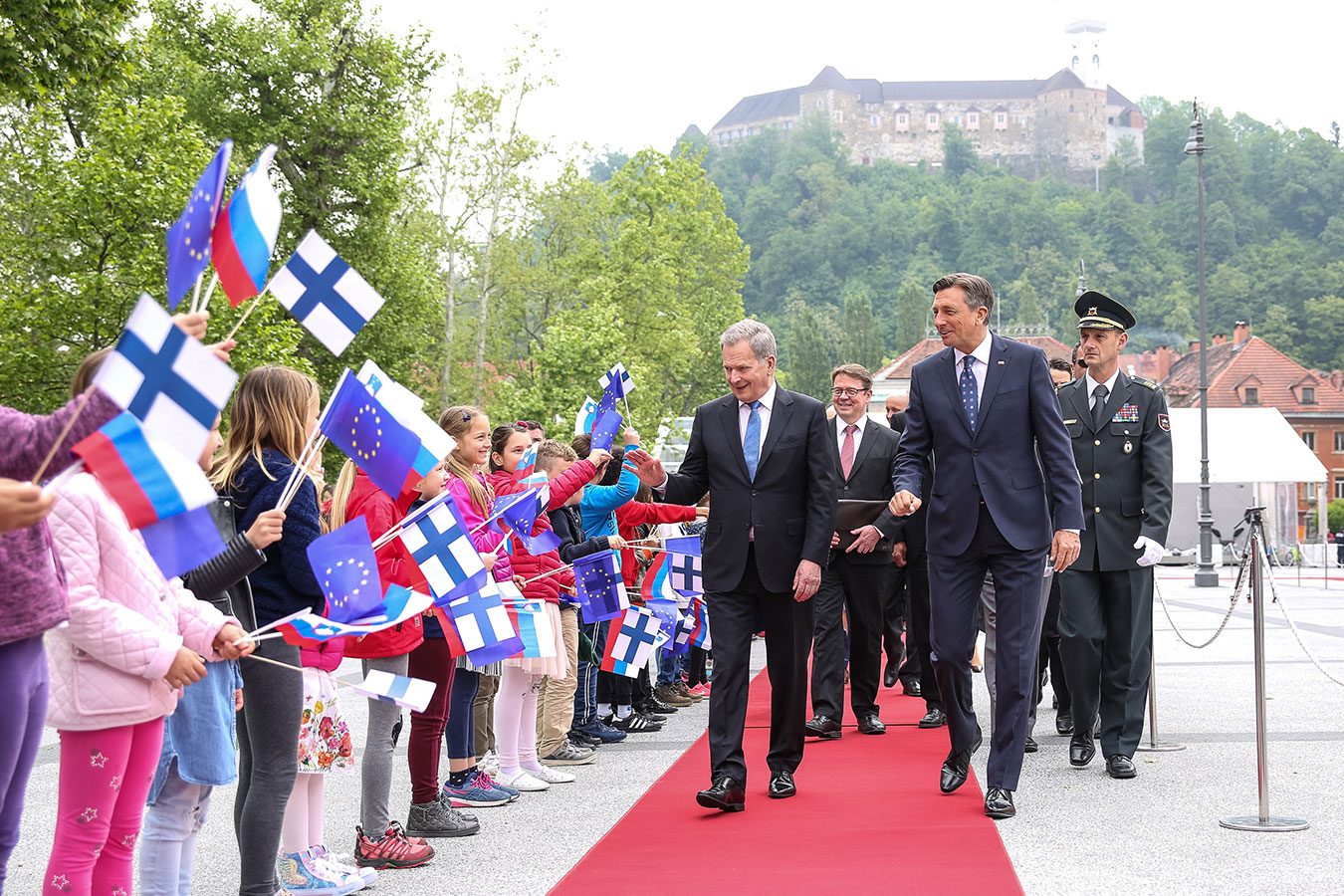 With Finnish President Sauli Niinistö and Slovenian President Borut Pahor (23-05-2019) (Photo by Matti Porre / Office of the President of the Republic of Finland)
With Finnish President Sauli Niinistö and Slovenian President Borut Pahor (23-05-2019) (Photo by Matti Porre / Office of the President of the Republic of Finland)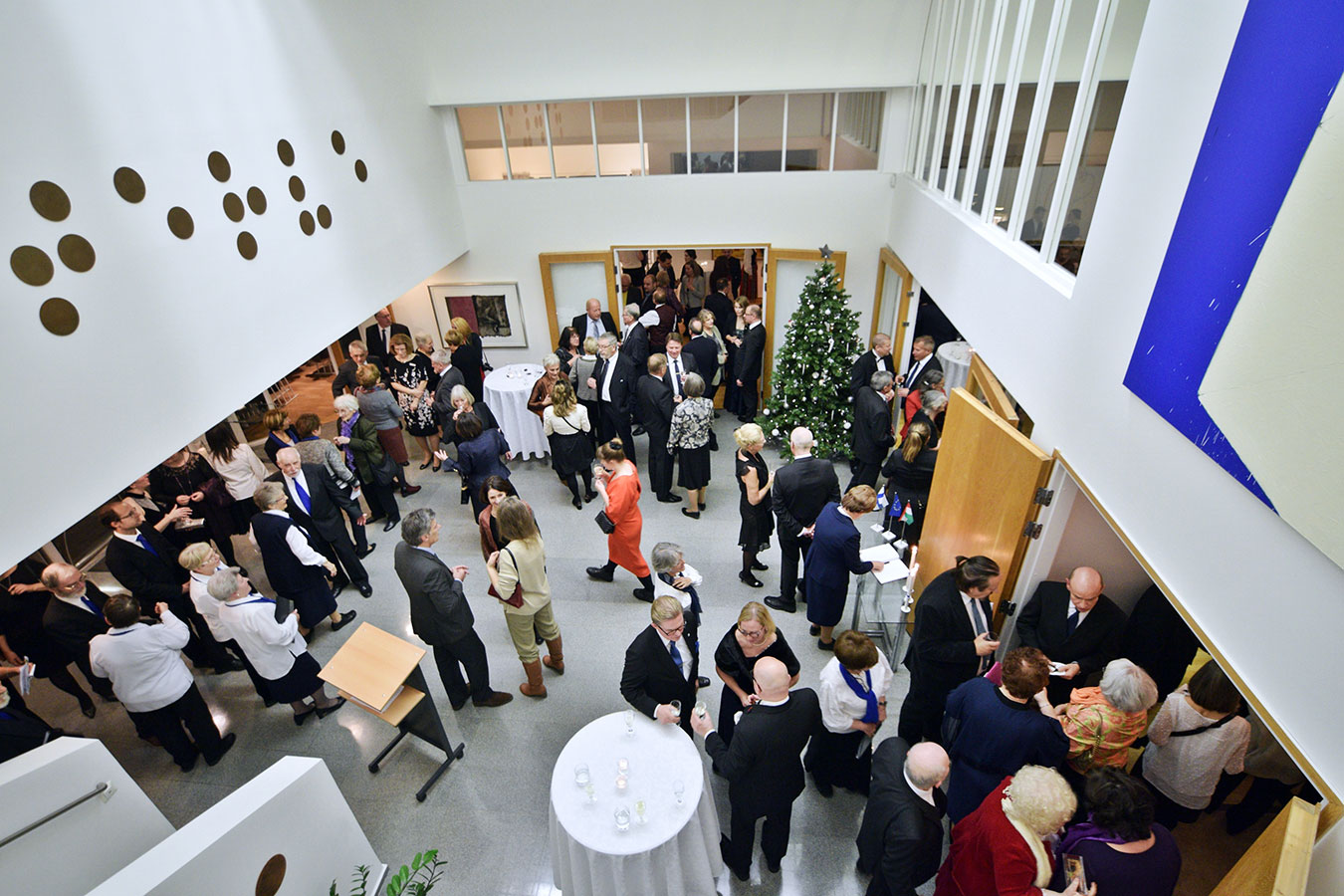 Reception at the Finnish Embassy (06-12-2018) (Photo by Enikő Bianka Dancs)
Reception at the Finnish Embassy (06-12-2018) (Photo by Enikő Bianka Dancs)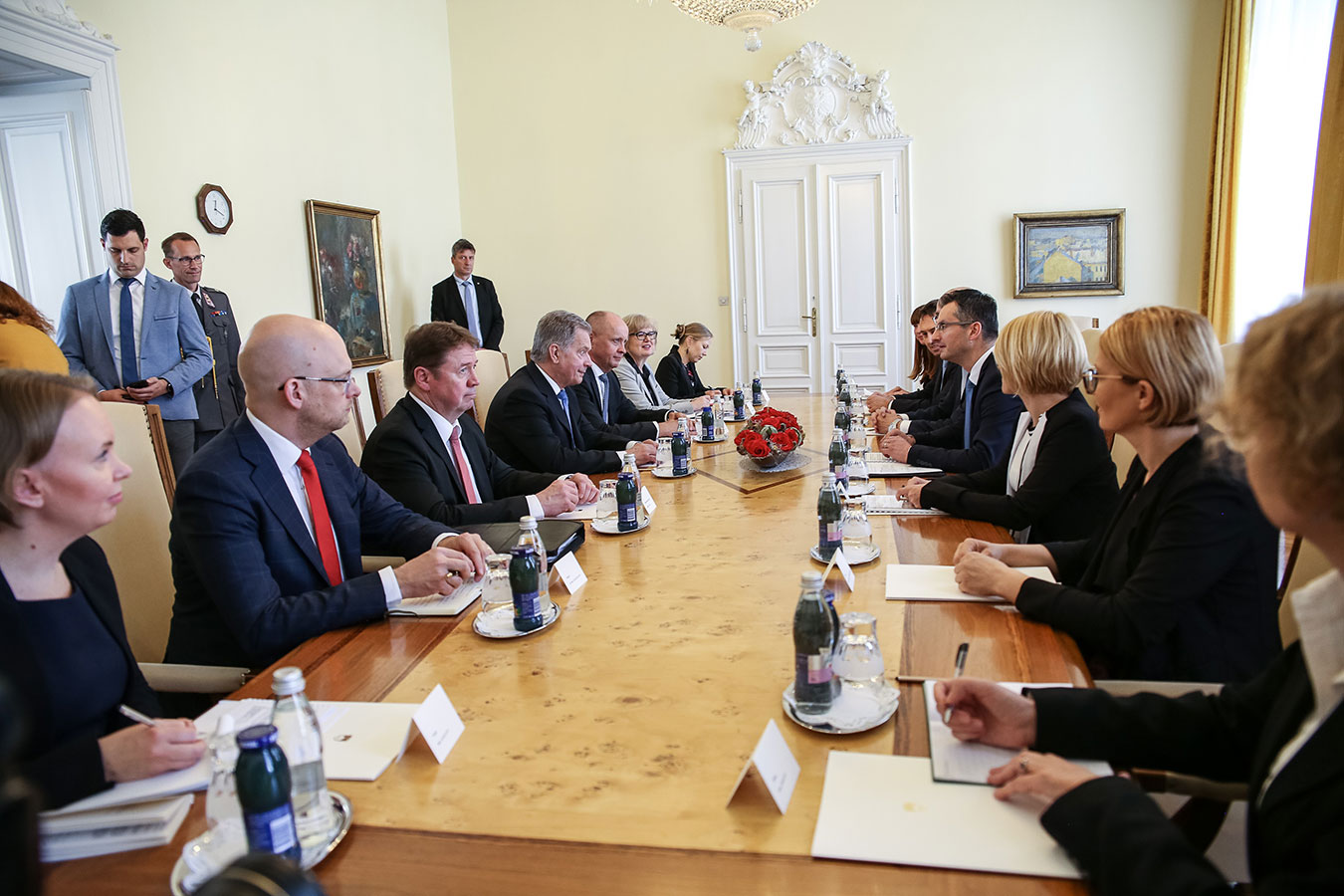 Negotiation in Slovenia (Photo by Matti Porre / Office of the President of the Republic of Finland)
Negotiation in Slovenia (Photo by Matti Porre / Office of the President of the Republic of Finland)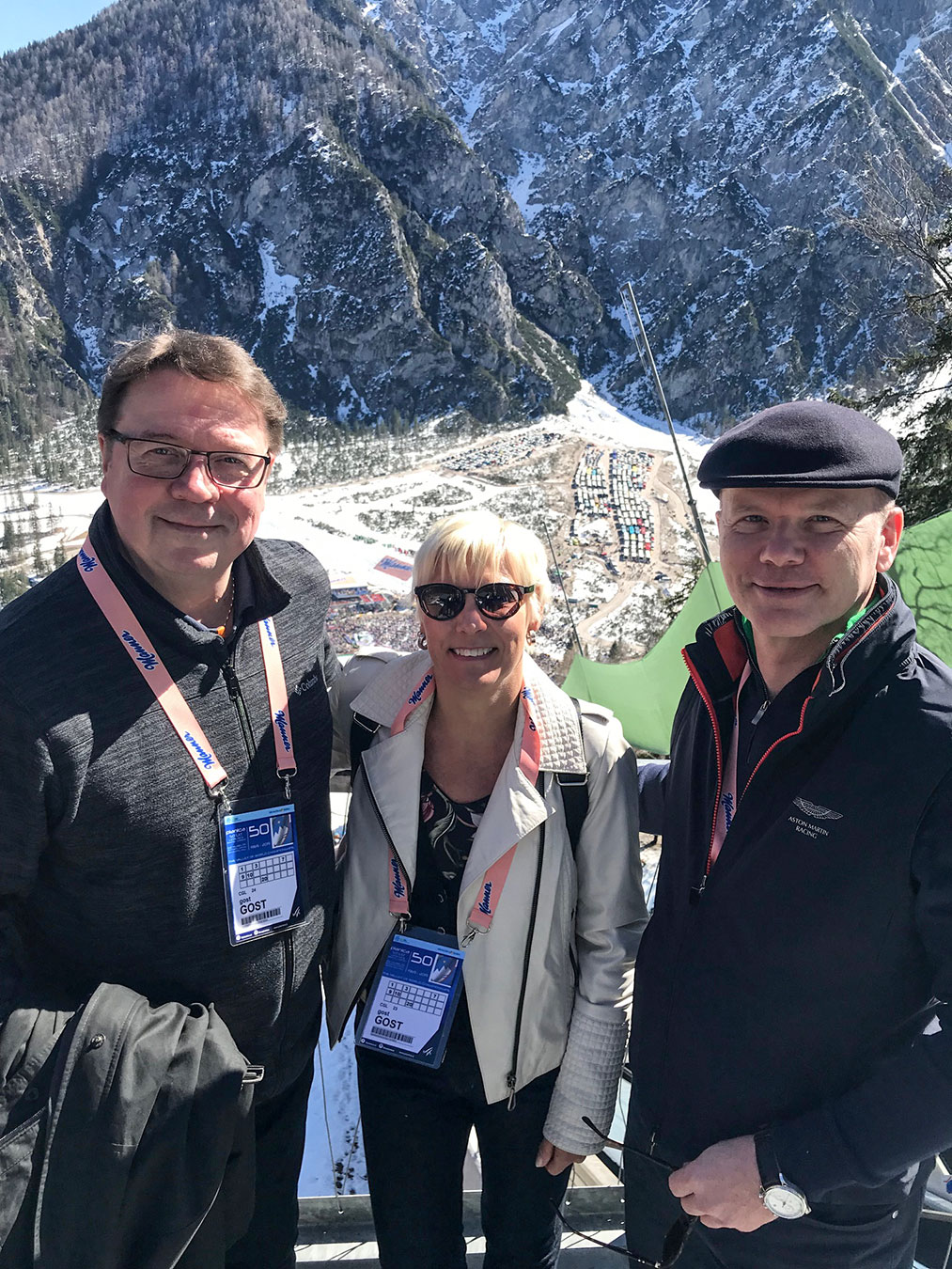 Mr. Ambassador with his wife in the mountains (Photo: Private archive)
Mr. Ambassador with his wife in the mountains (Photo: Private archive)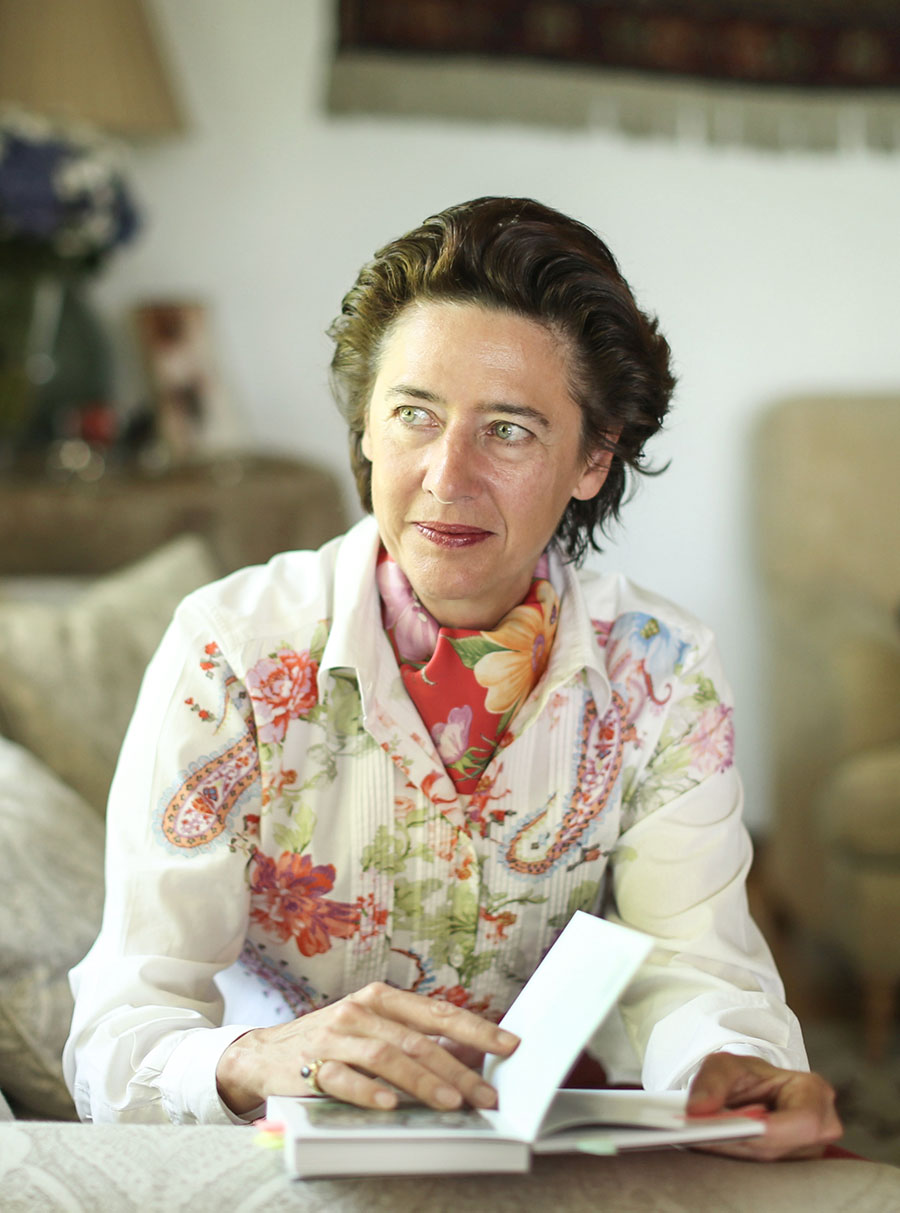 The Ambassador's other passion: Writing (Photo: Private archive)
The Ambassador's other passion: Writing (Photo: Private archive)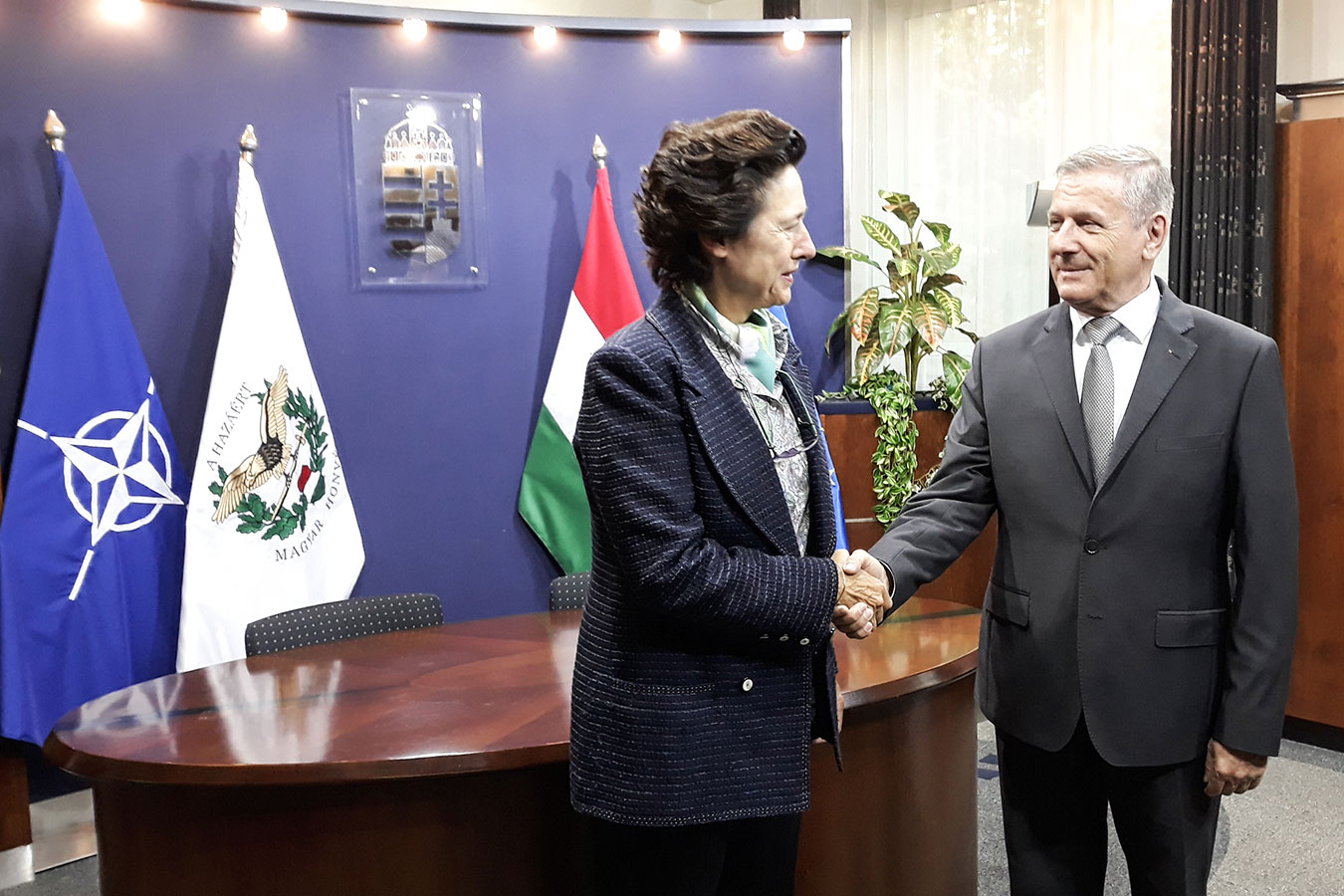 In the company of Hungarian Minister of Defense Dr. Tibor Benkő (16.10.2018) (Photo: Private archive)
In the company of Hungarian Minister of Defense Dr. Tibor Benkő (16.10.2018) (Photo: Private archive)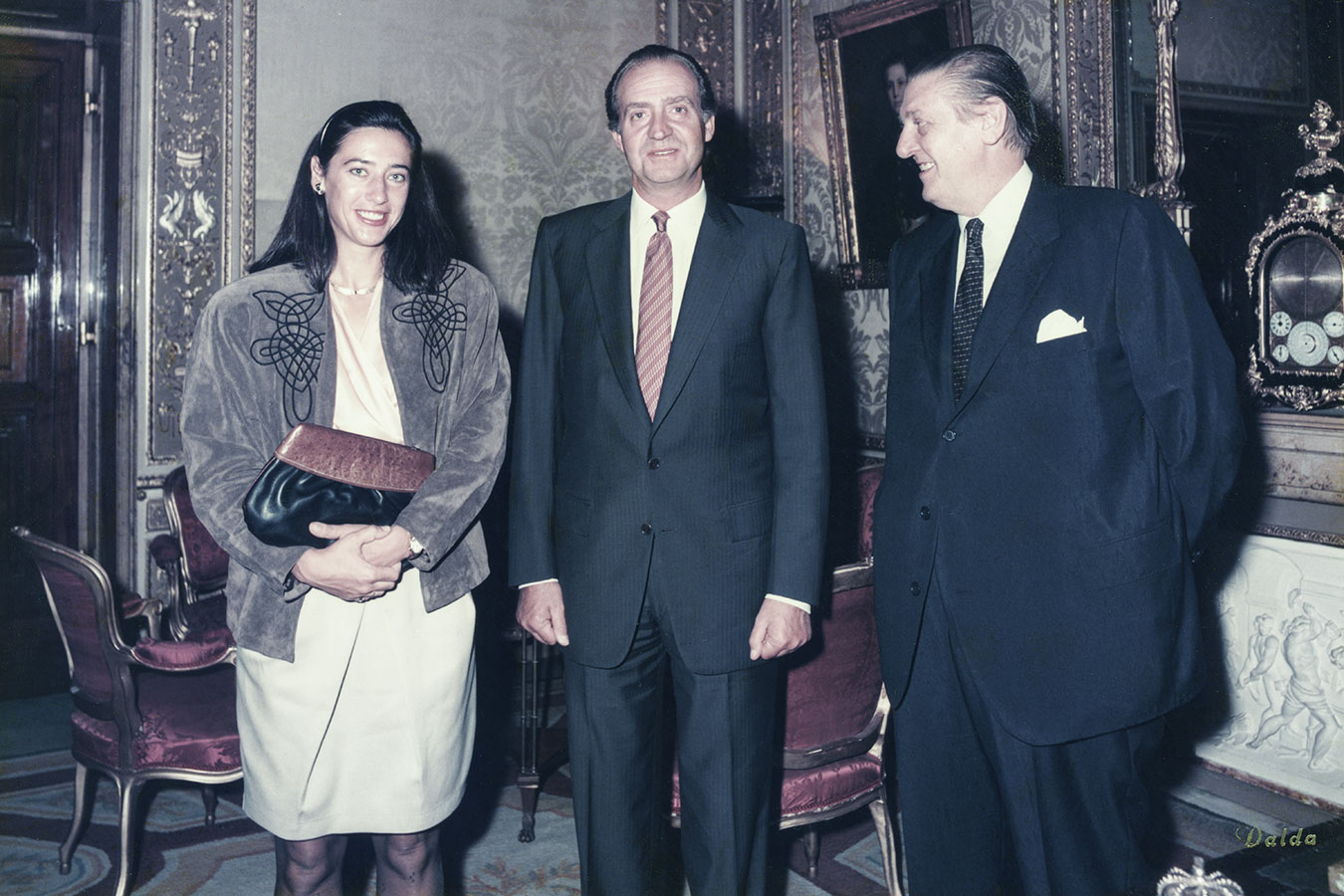 With former King of Spain Juan Carlos I and her beloved father (1994) (Photo by Dalda)
With former King of Spain Juan Carlos I and her beloved father (1994) (Photo by Dalda)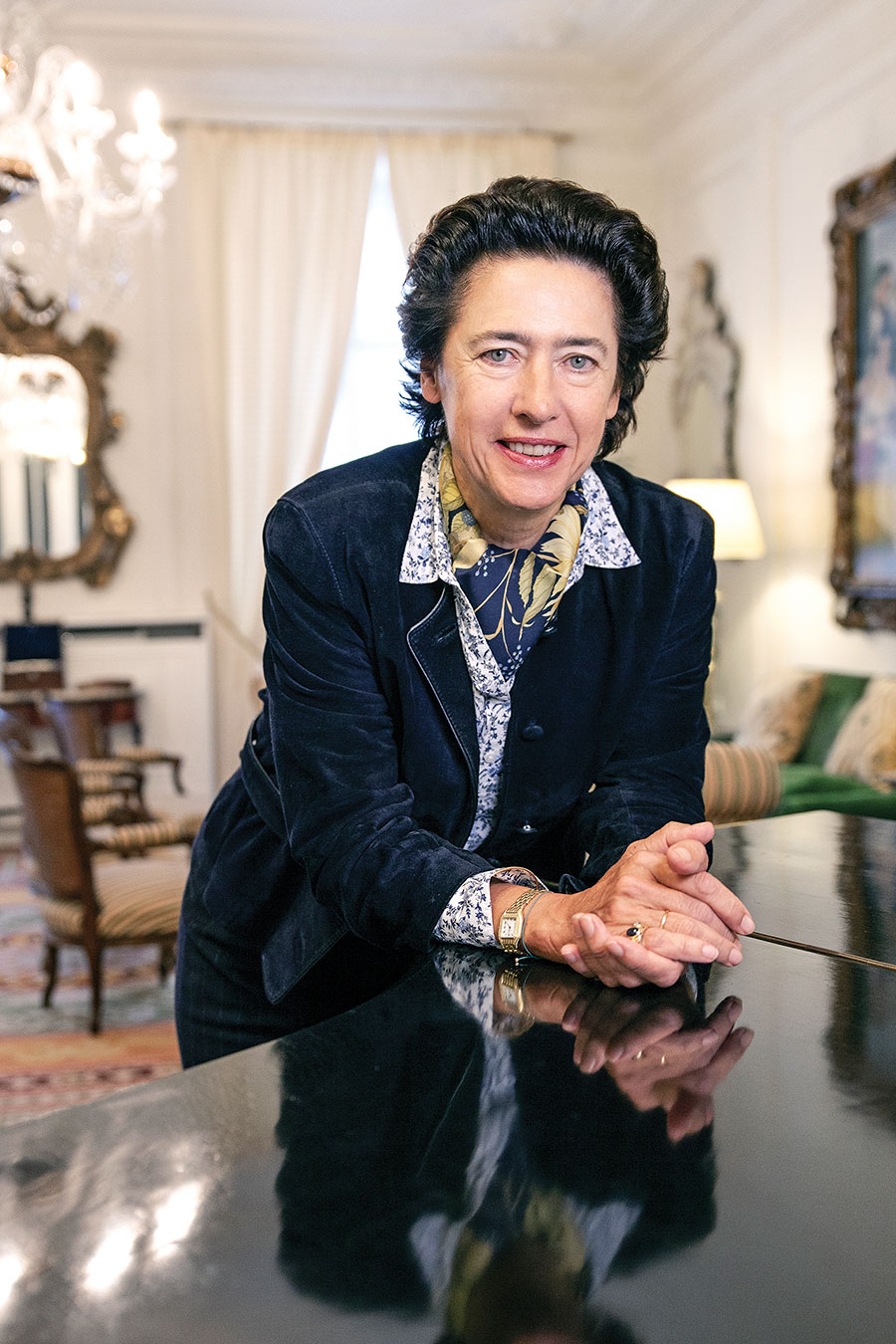 Portrait at the residence (29.10.2018) (Photo by Turizmusonline.hu)
Portrait at the residence (29.10.2018) (Photo by Turizmusonline.hu)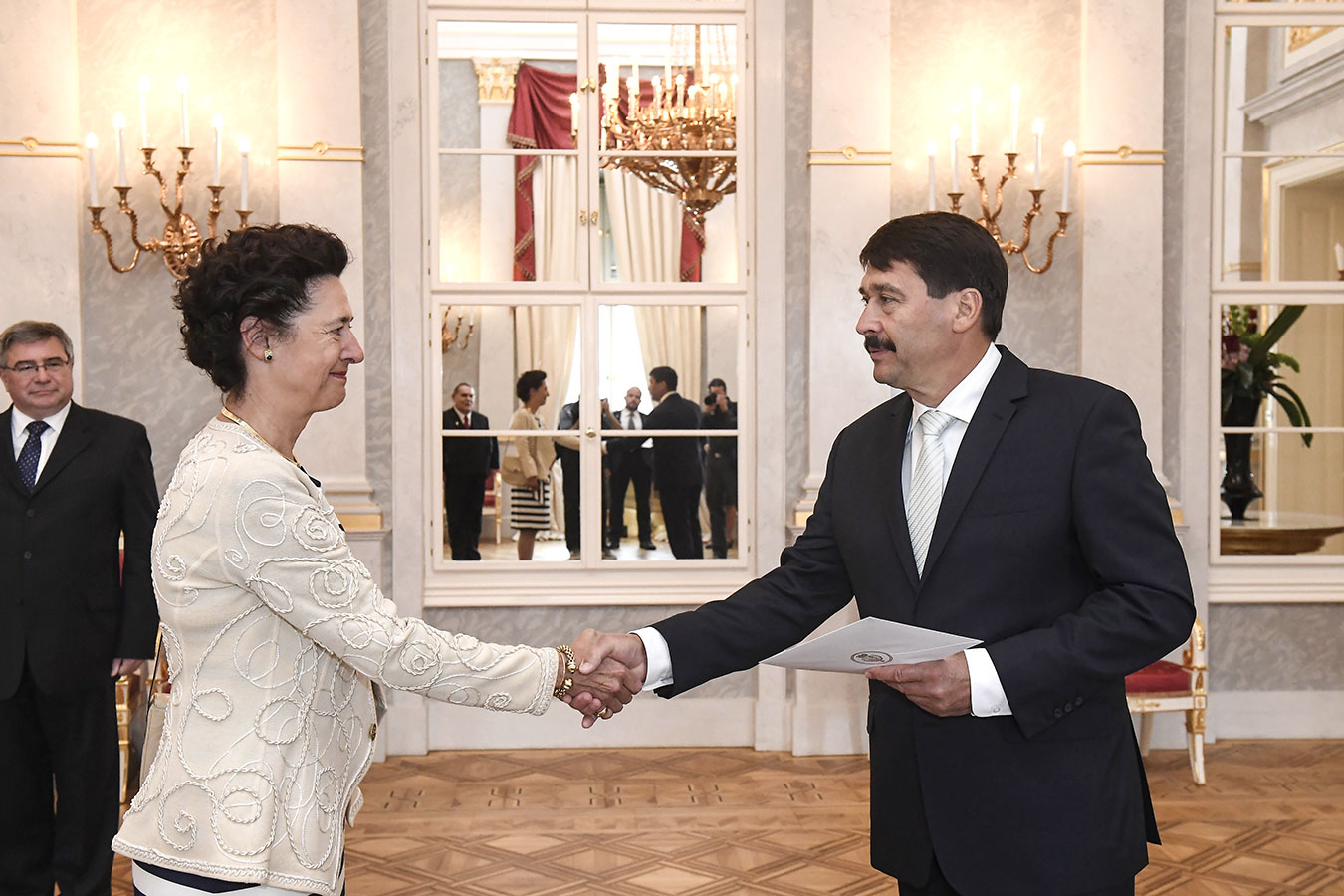 Presenting her credentials to Hungarian President János Áder (25.06.2018) (Photo by KEH | KKM Protokoll)
Presenting her credentials to Hungarian President János Áder (25.06.2018) (Photo by KEH | KKM Protokoll)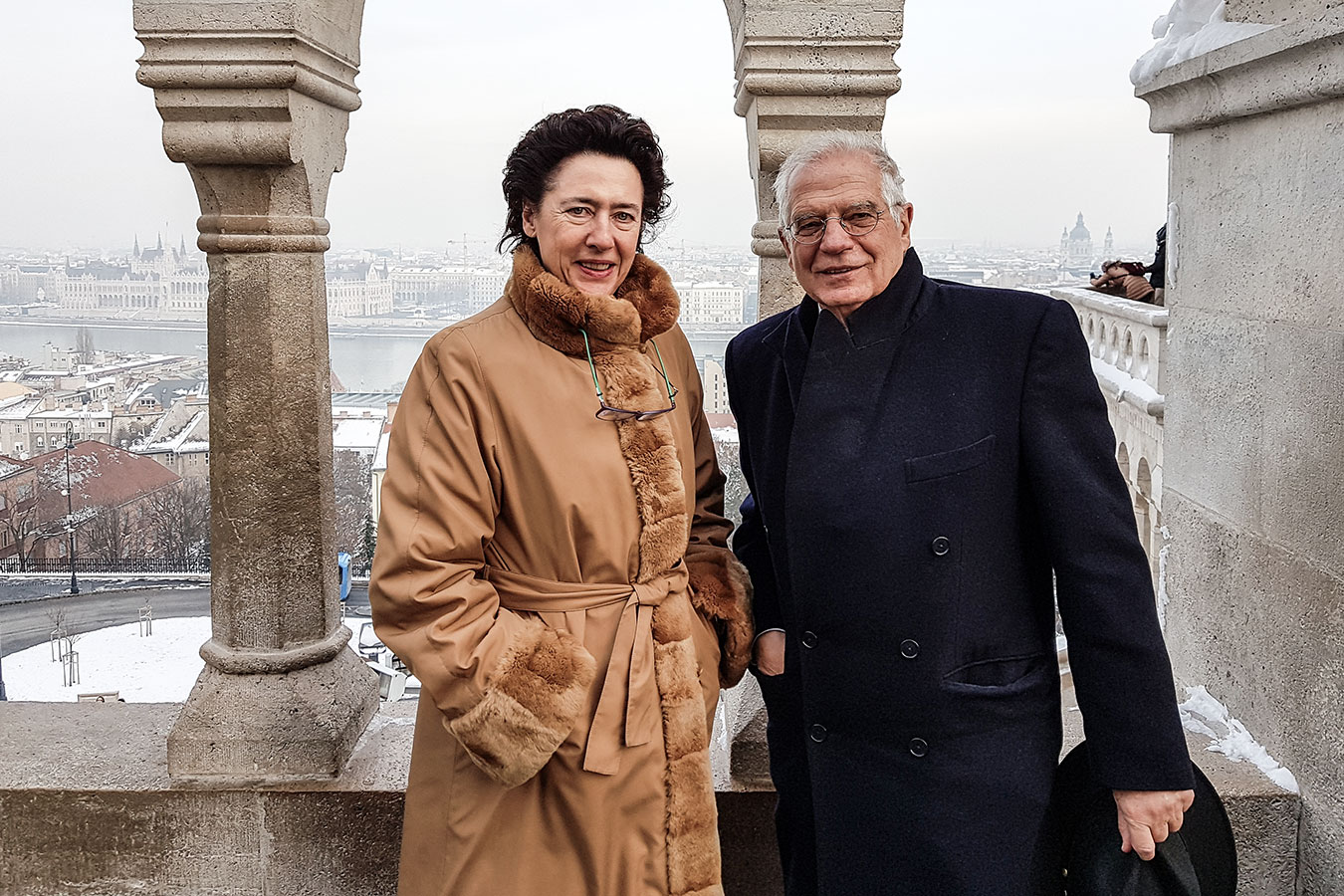 With Spanish Foreign Minister Josep Borrell at the Fisherman's Bastion in Budapest (17.12.2018) (Photo: Private archive)
With Spanish Foreign Minister Josep Borrell at the Fisherman's Bastion in Budapest (17.12.2018) (Photo: Private archive)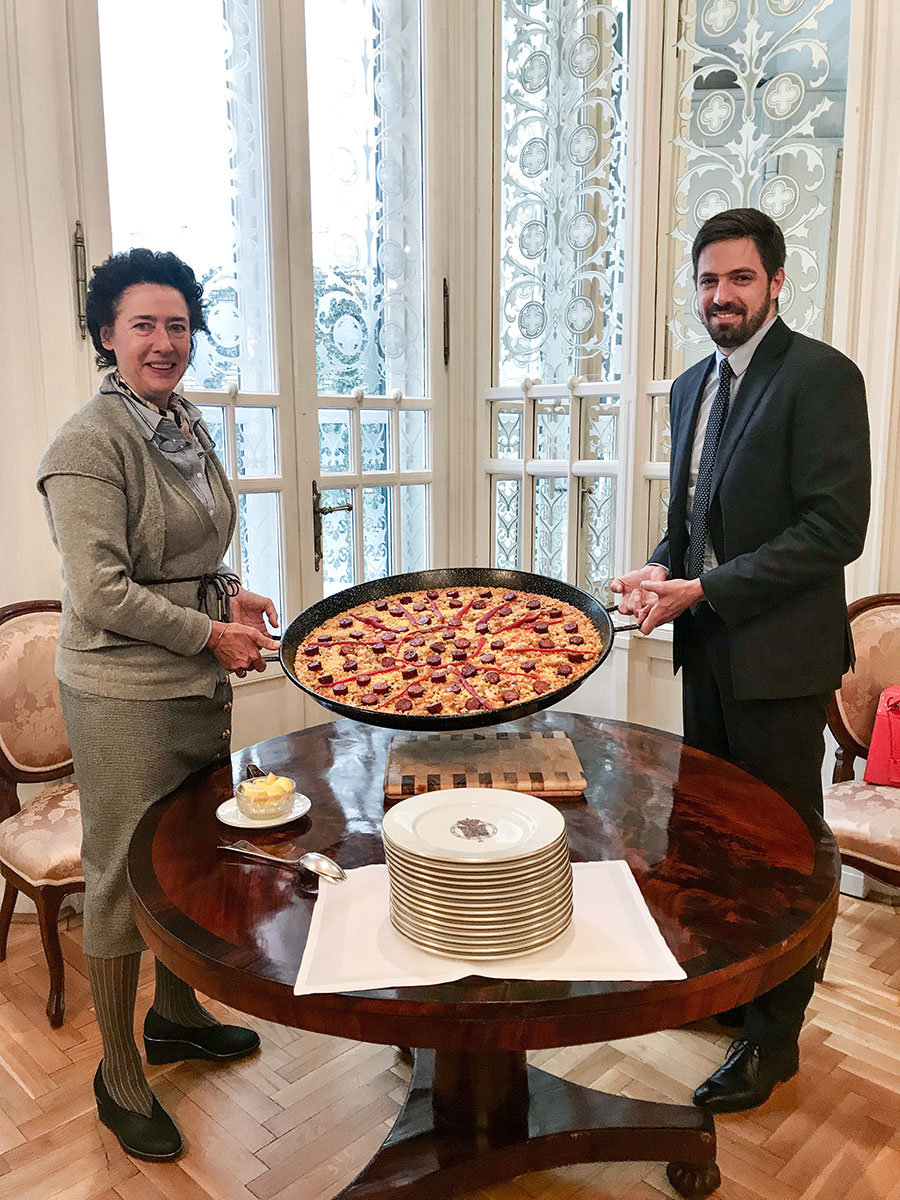 Holding a giant paella with Levente Magyar, Minister of State for Parliamentary Affairs, Ministry of Foreign Affairs and Trade of Hungary (08.01.2019) (Photo: Private archive)
Holding a giant paella with Levente Magyar, Minister of State for Parliamentary Affairs, Ministry of Foreign Affairs and Trade of Hungary (08.01.2019) (Photo: Private archive)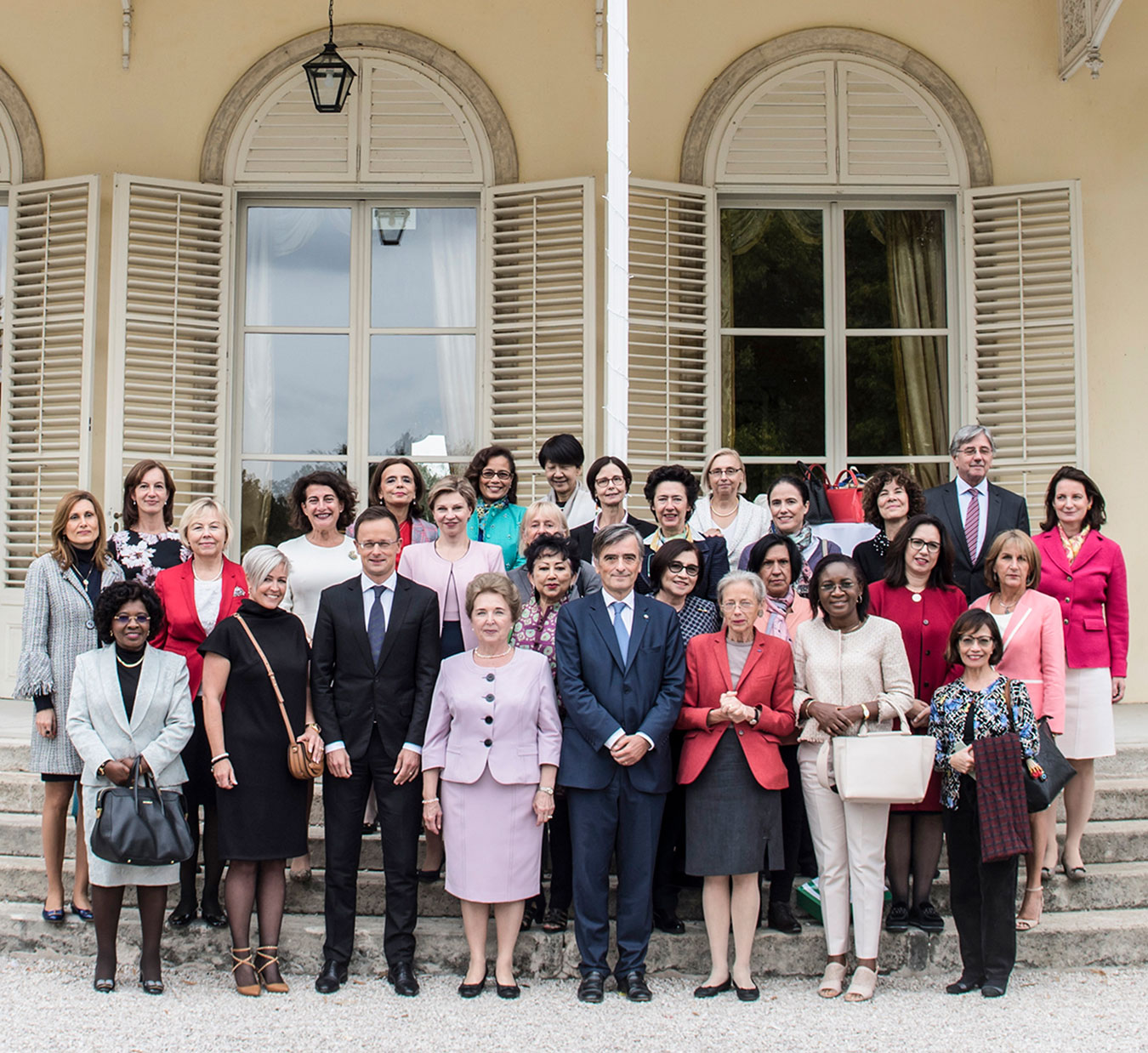
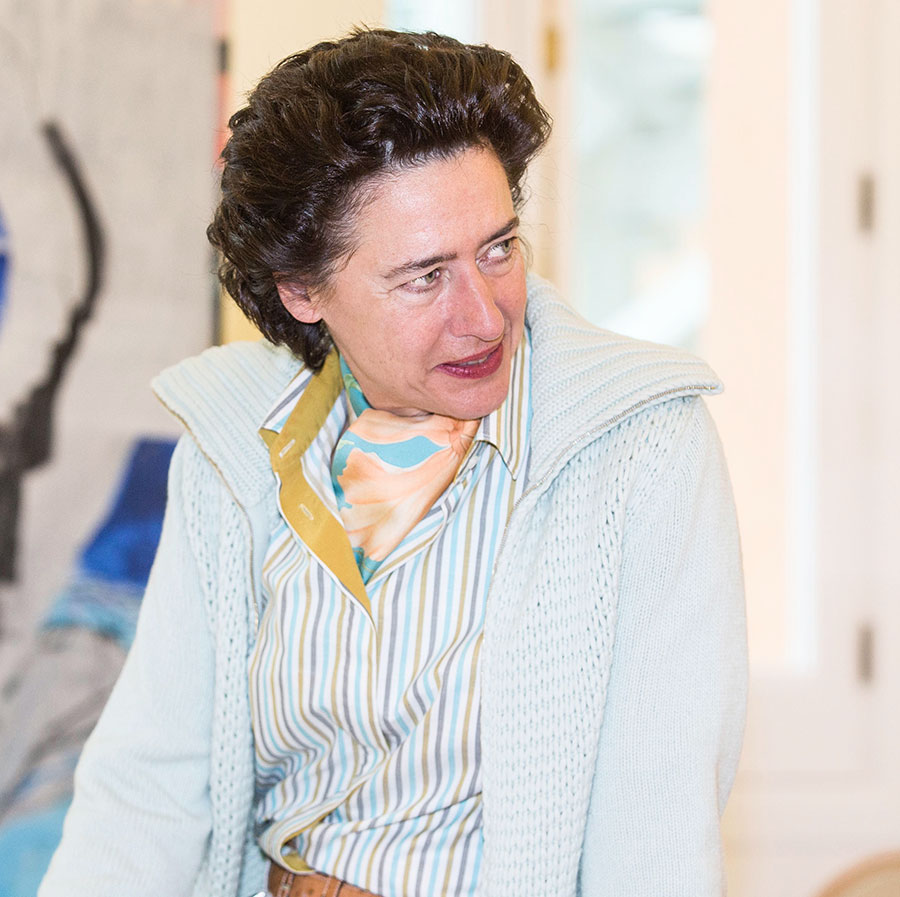 The author at a public reading in Getafe, Spain (06.06.2016) (Photo by Pedro González | Fundación José Hierro)
The author at a public reading in Getafe, Spain (06.06.2016) (Photo by Pedro González | Fundación José Hierro)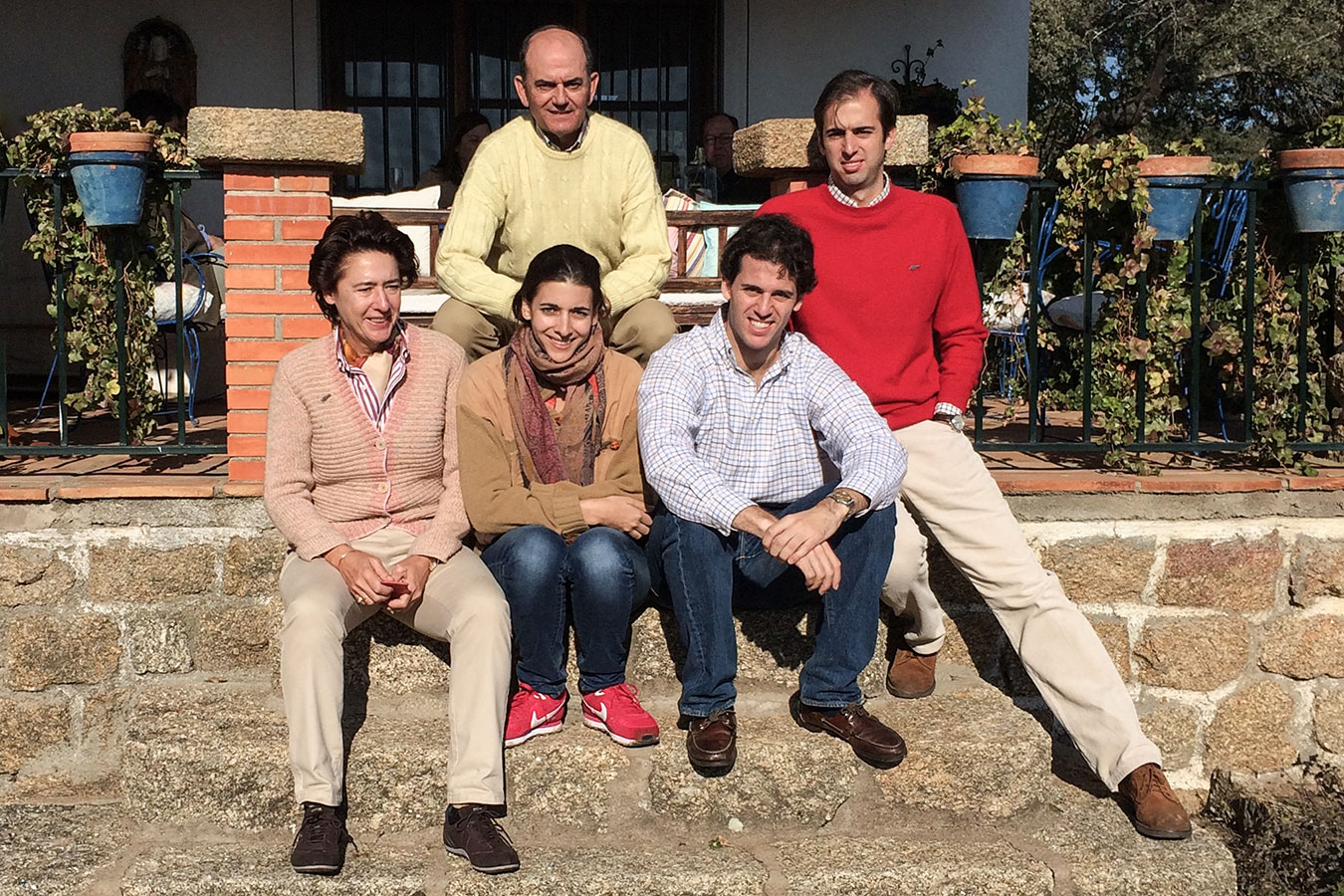 The Ambassador surrounded by her loving family (Photo: Private archive)
The Ambassador surrounded by her loving family (Photo: Private archive)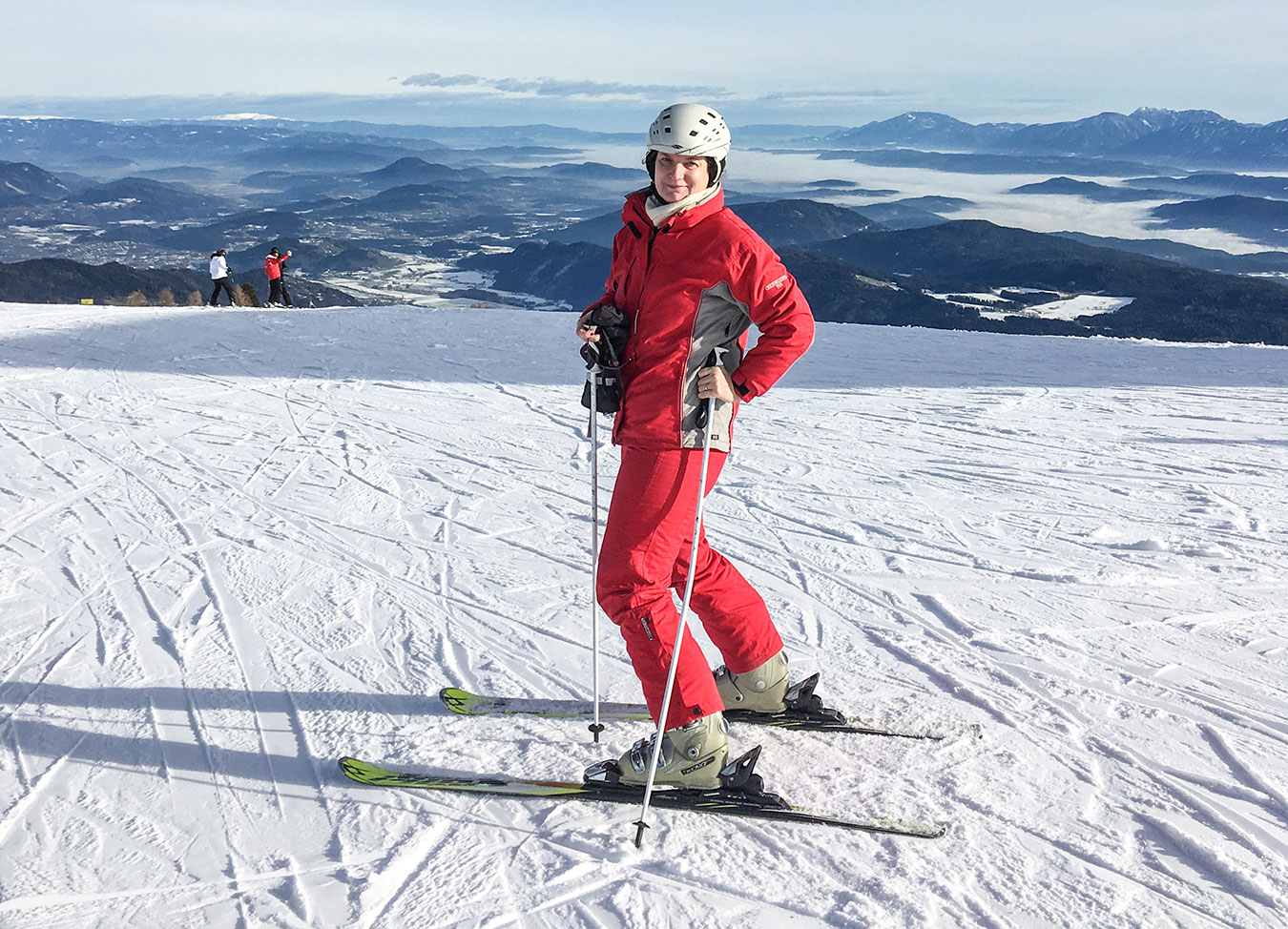 Skiing in the Austrian Alps (Photo by August Ellison)
Skiing in the Austrian Alps (Photo by August Ellison)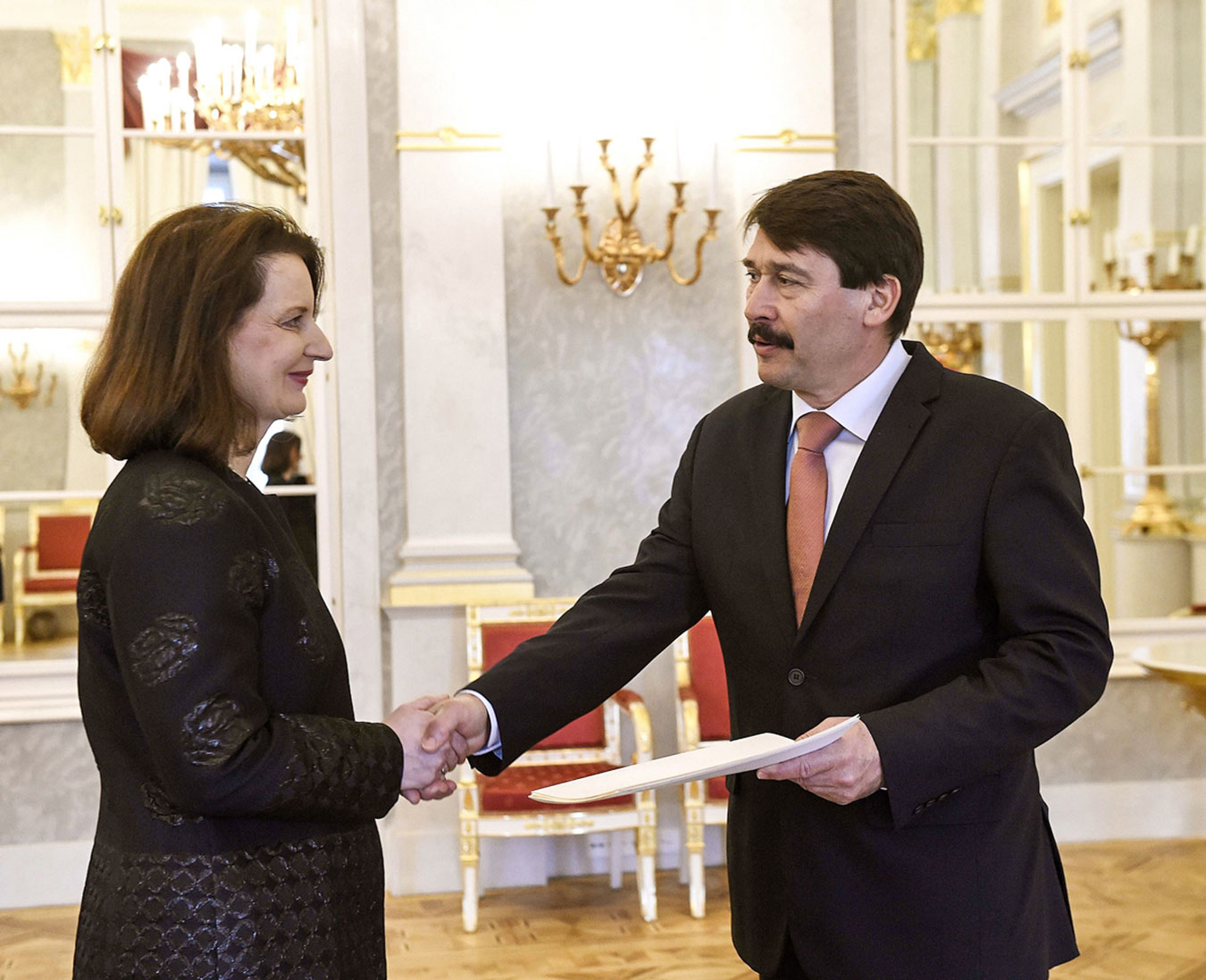 Presenting her credentials to Hungarian President János Áder (06.02.2017) (Photo by KEH)
Presenting her credentials to Hungarian President János Áder (06.02.2017) (Photo by KEH)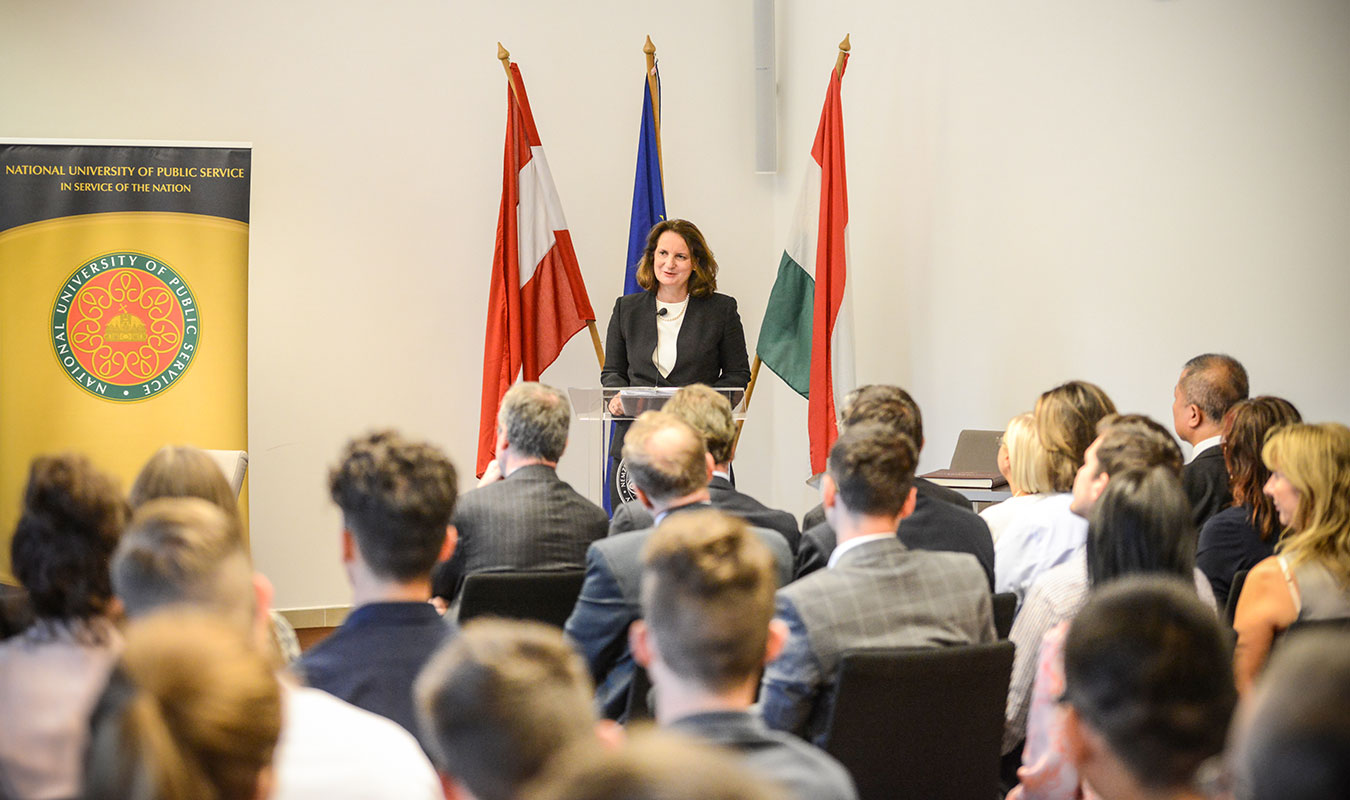
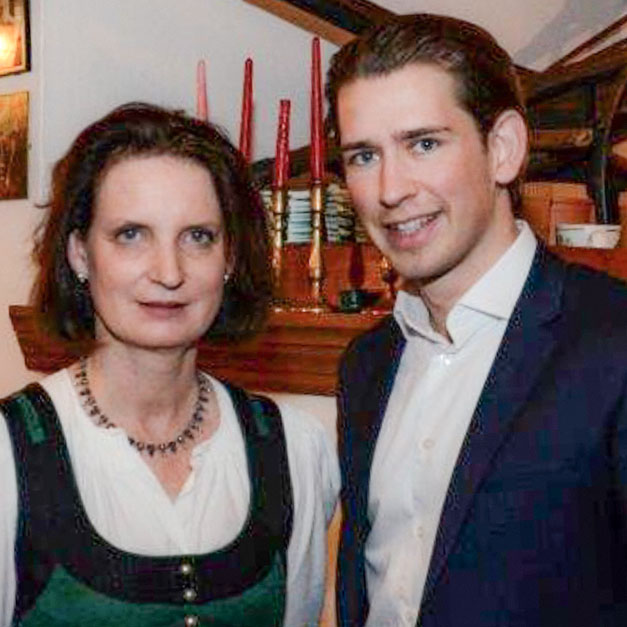
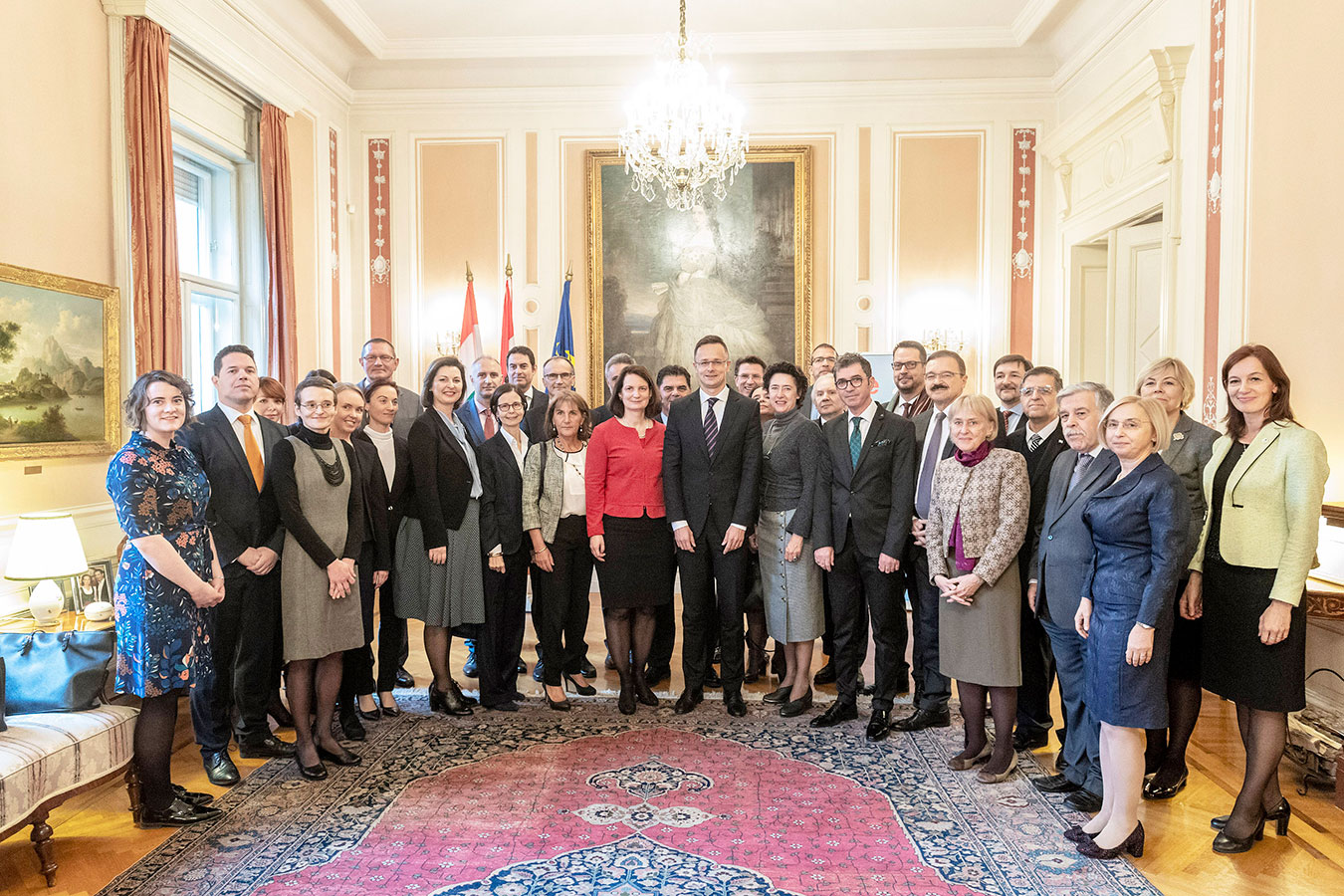
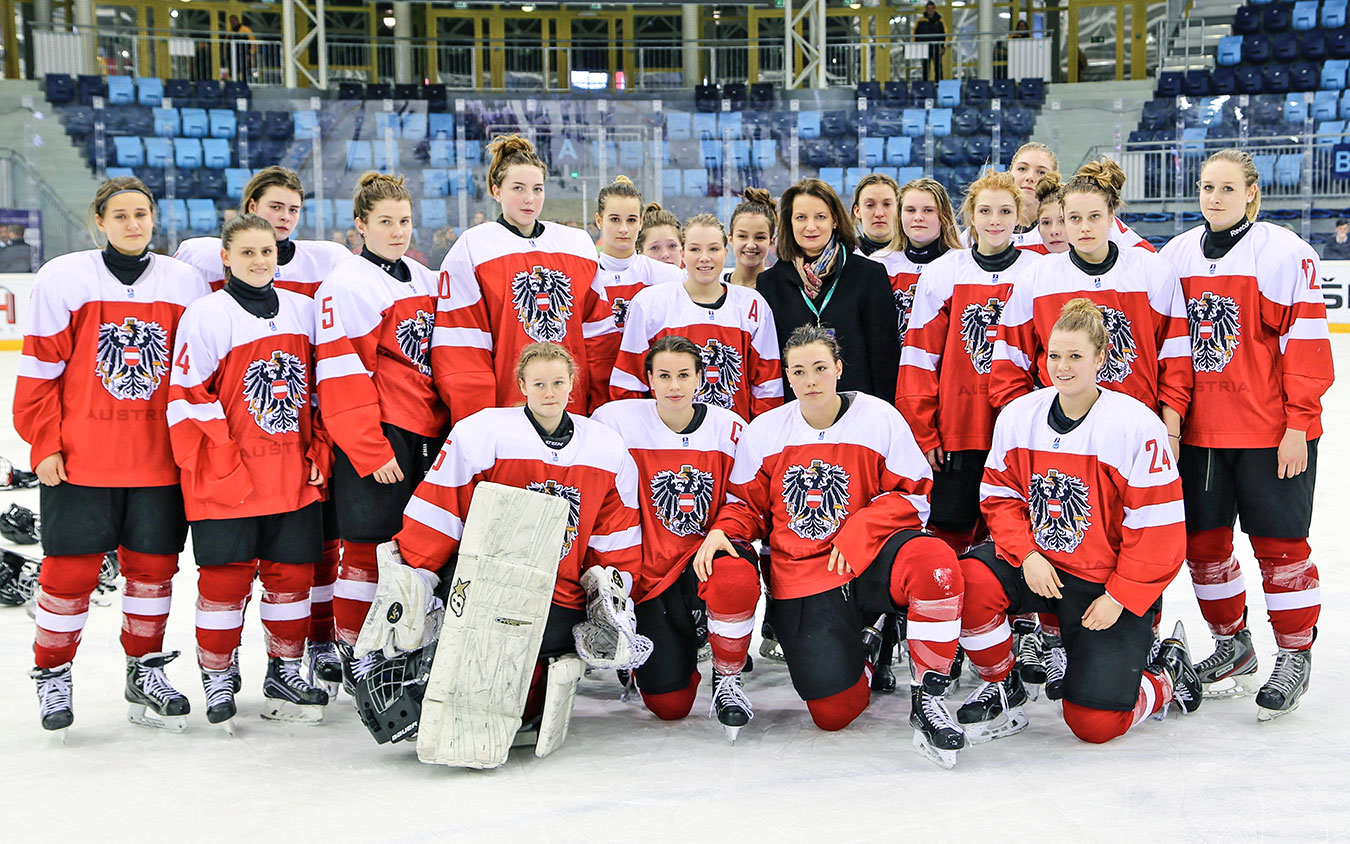
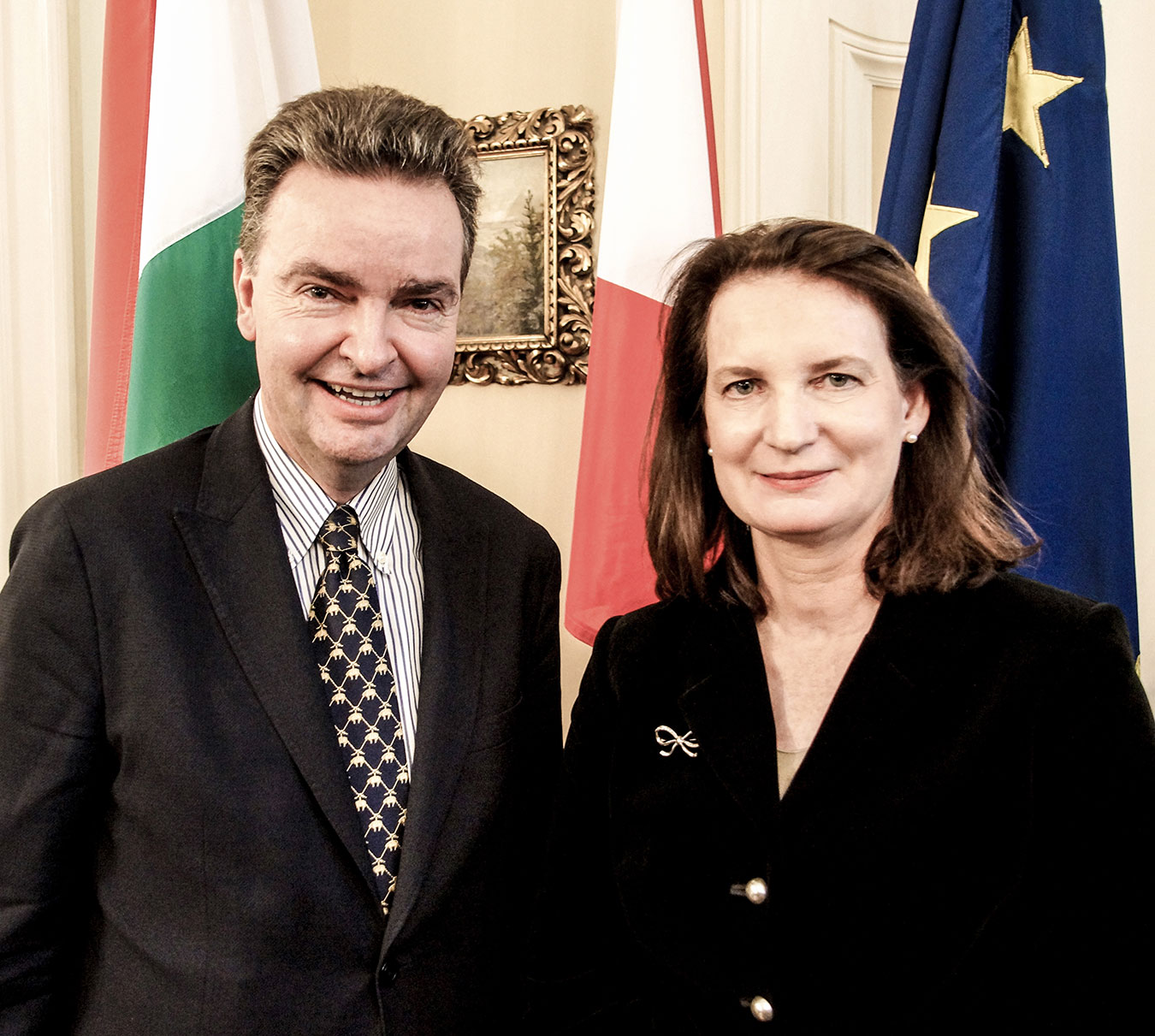 George Habsburg and H. E. Elisabeth Ellison-Kramer, Ambassador of Austria to Hungary (Photo by Ivan Aigner)
George Habsburg and H. E. Elisabeth Ellison-Kramer, Ambassador of Austria to Hungary (Photo by Ivan Aigner)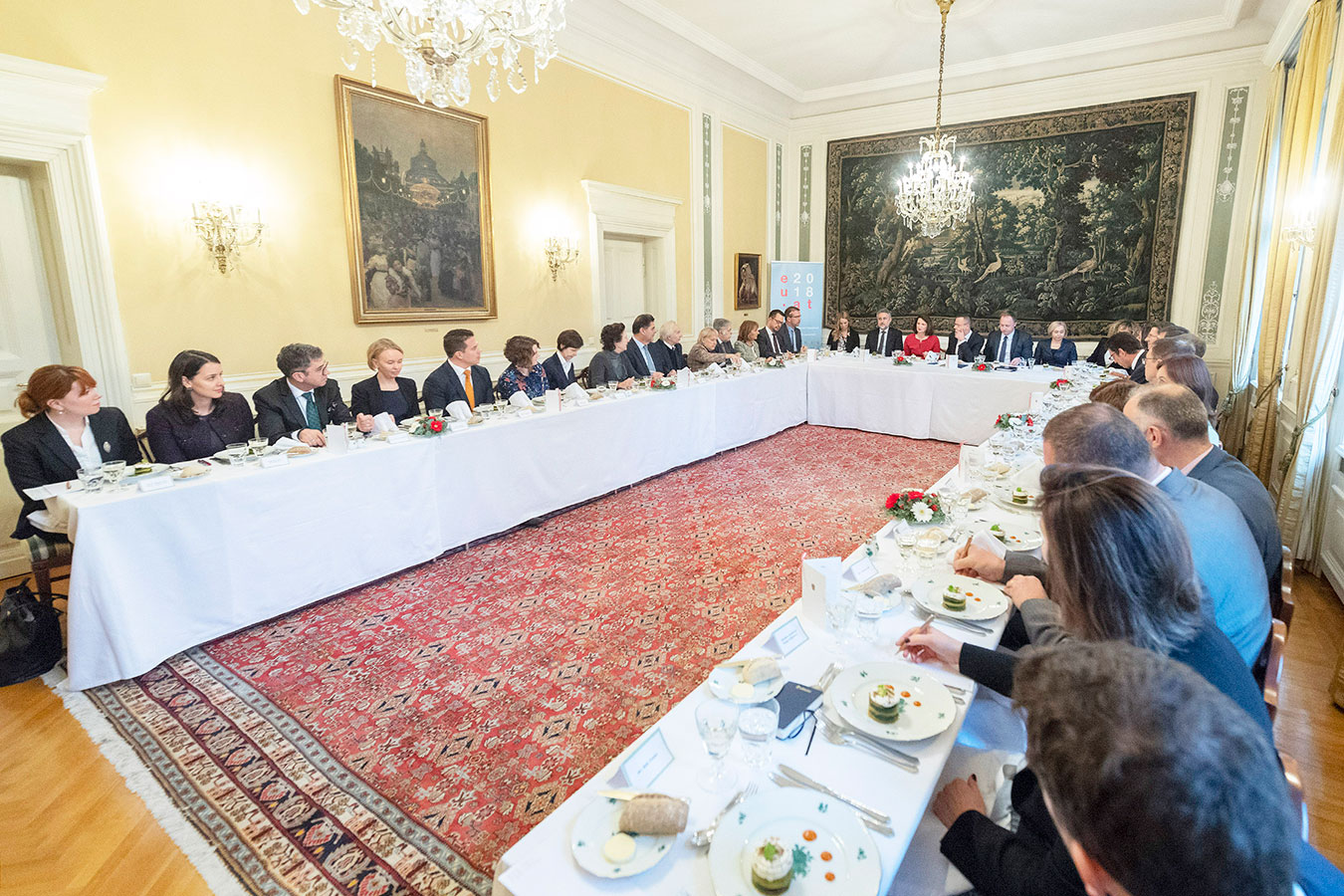 Working luncheon in the framework of the Austrian EU Presidency, at the Ambassador's residence (21.11.2018) (Photo by Márton Kovács / KKM)
Working luncheon in the framework of the Austrian EU Presidency, at the Ambassador's residence (21.11.2018) (Photo by Márton Kovács / KKM) 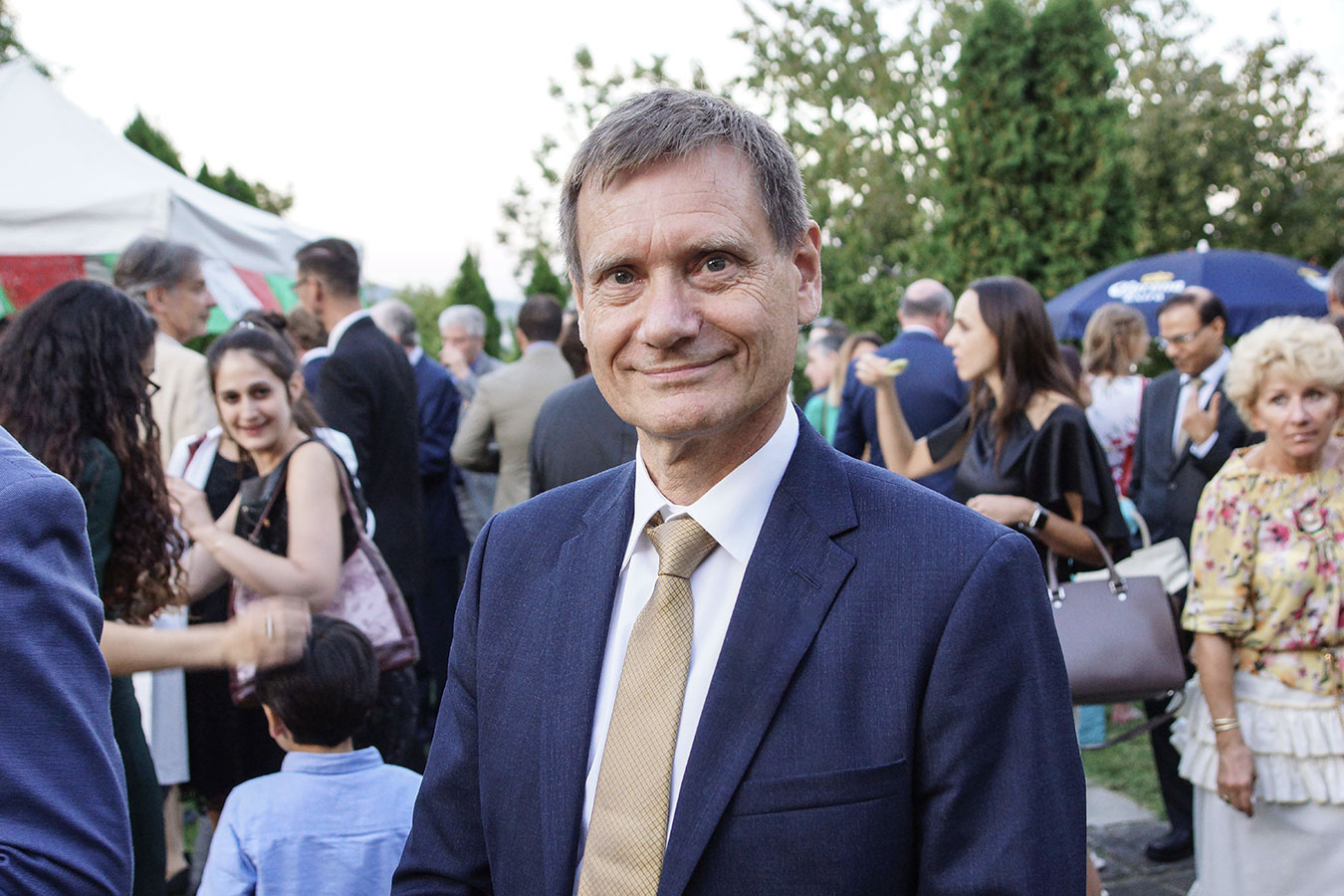 >> Diplomat and Father at the Service of the King of Norway <<
>> Diplomat and Father at the Service of the King of Norway <<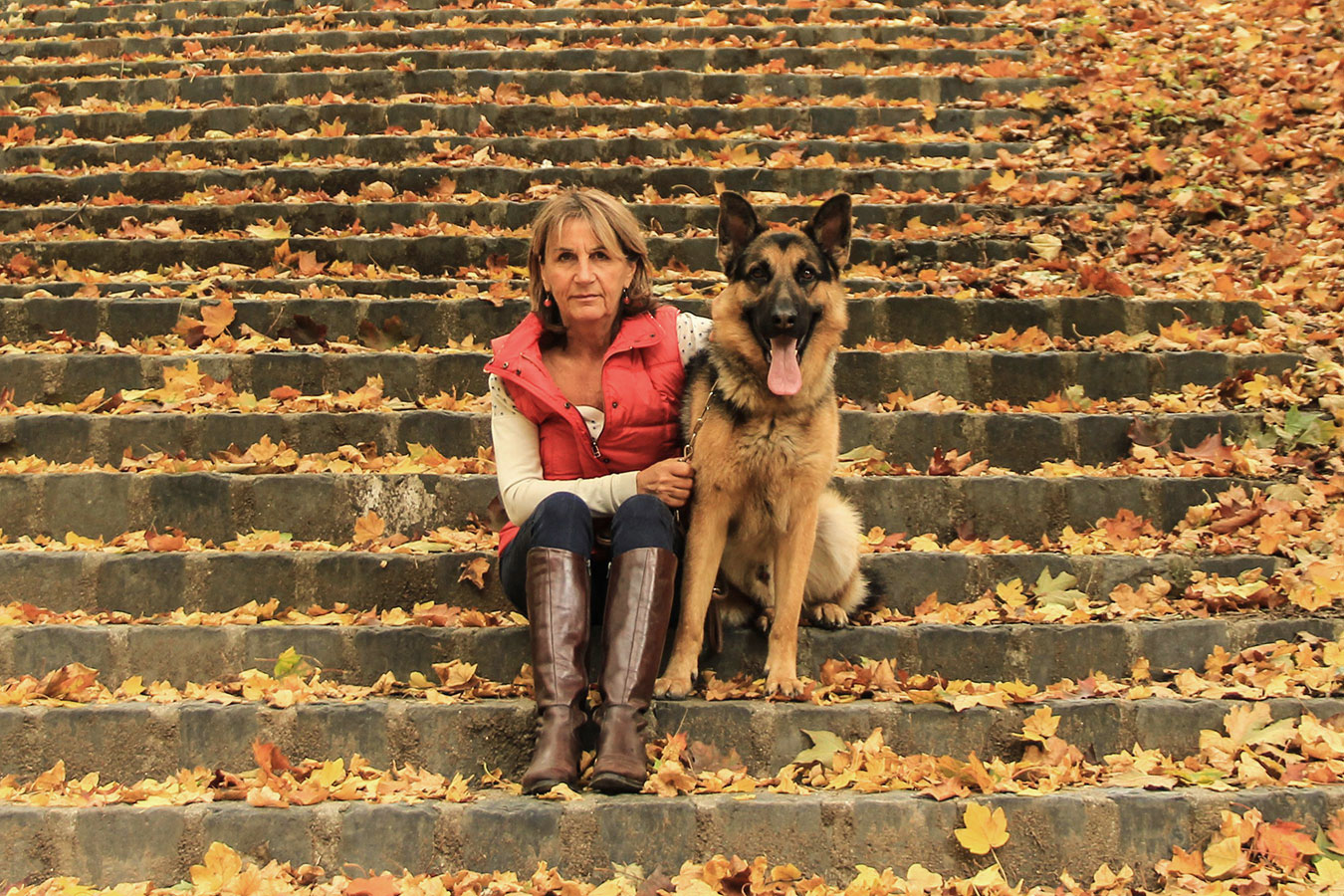 >> Belgian Ambassador Reveals the Trump Cards of Diplomacy <<
>> Belgian Ambassador Reveals the Trump Cards of Diplomacy << Photo by Jeshoots.com
Photo by Jeshoots.com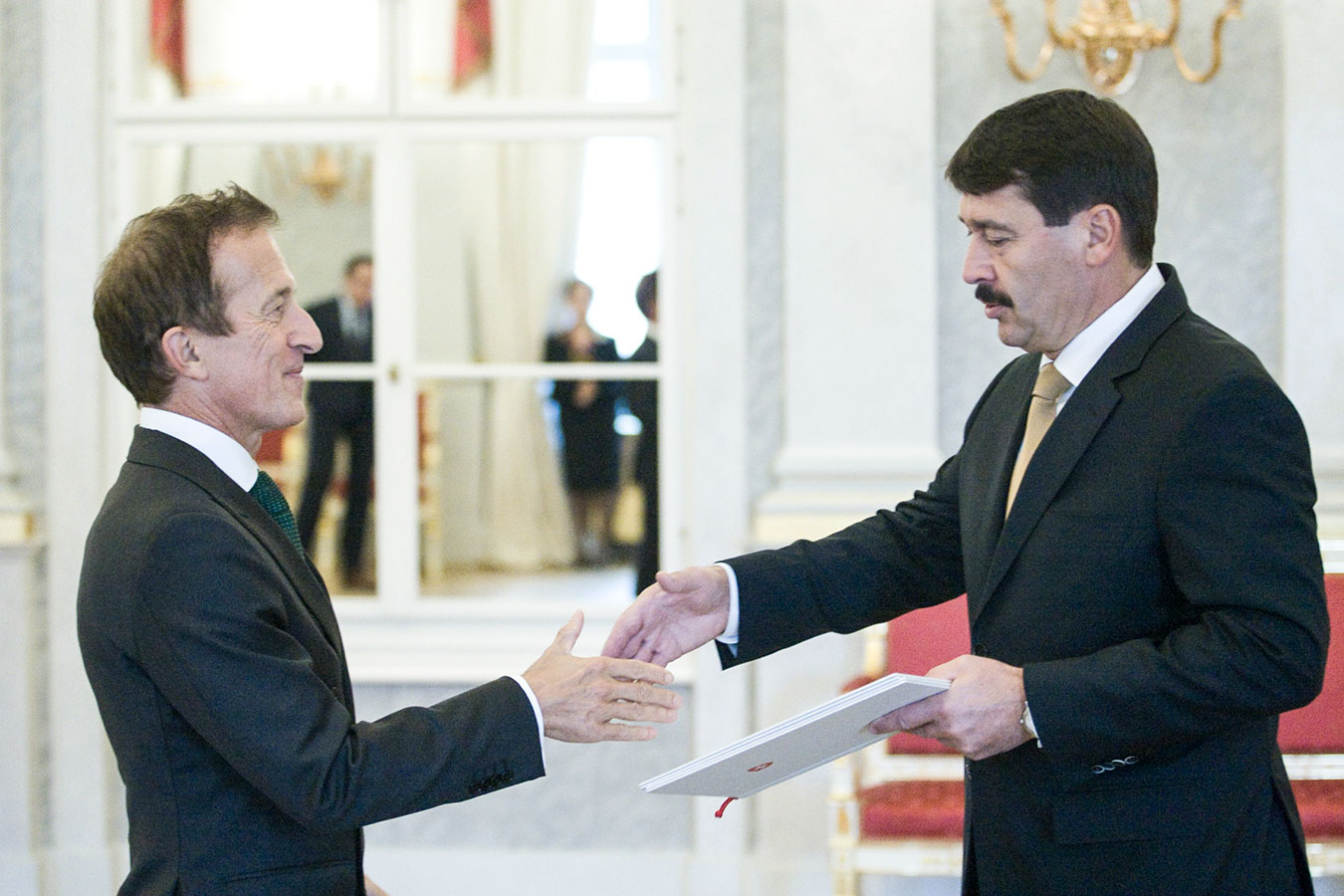 Presenting his credentials to Hungarian President János Áder (19.10.2016) (Photo by Dávid Harangozó)
Presenting his credentials to Hungarian President János Áder (19.10.2016) (Photo by Dávid Harangozó)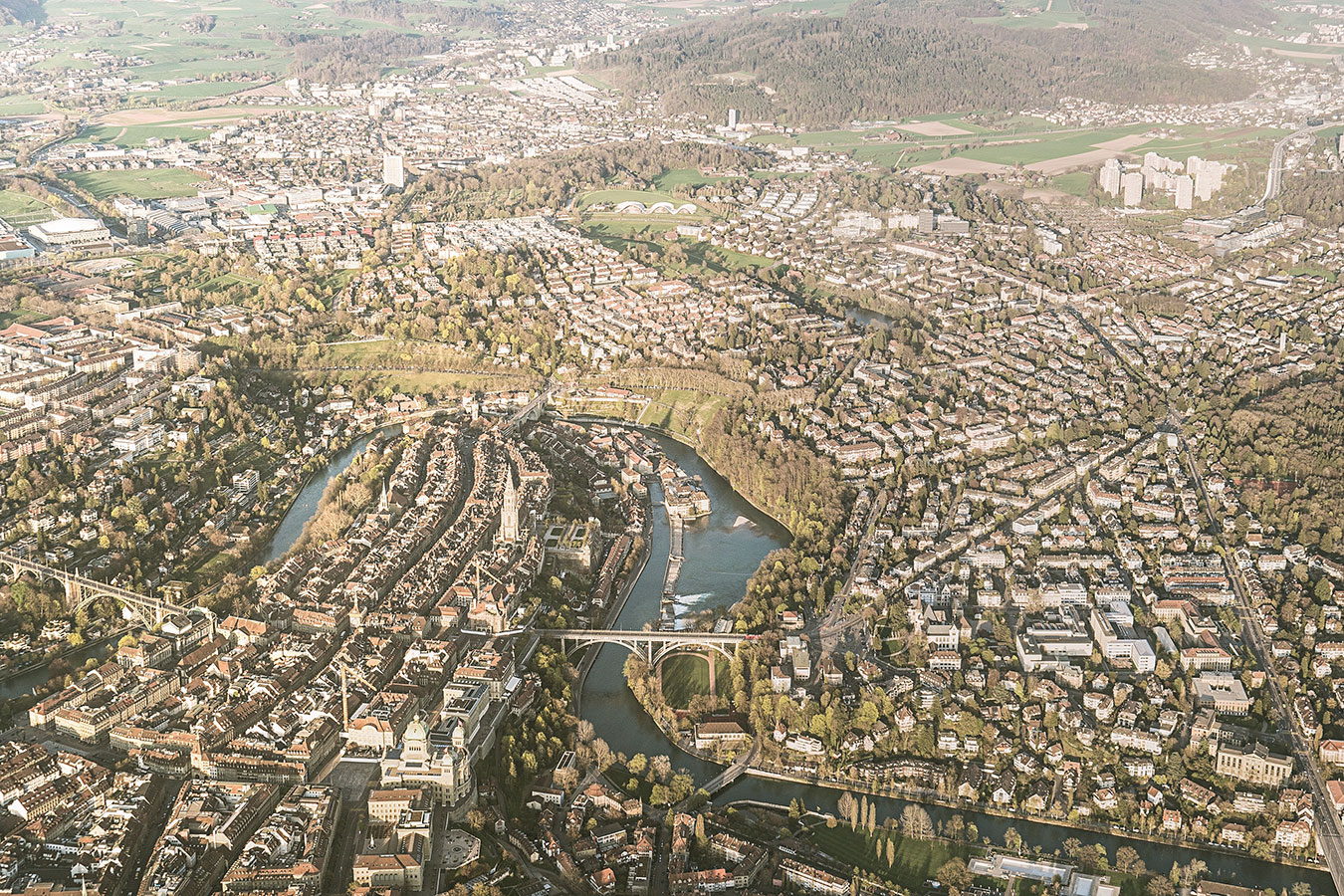 Aerial view of Bern, the capital of Switzerland
Aerial view of Bern, the capital of Switzerland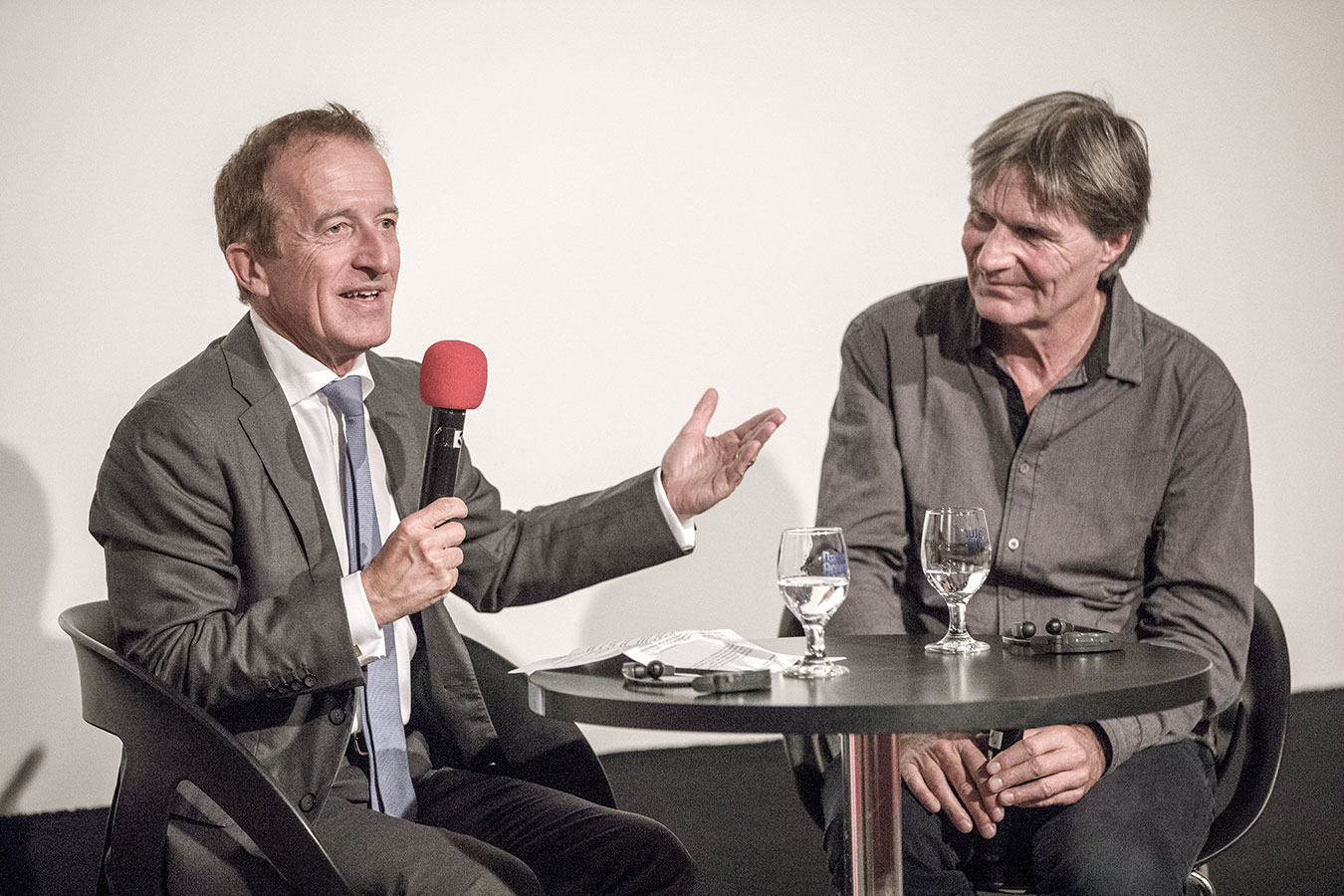 The ambassador interviewing director
The ambassador interviewing director 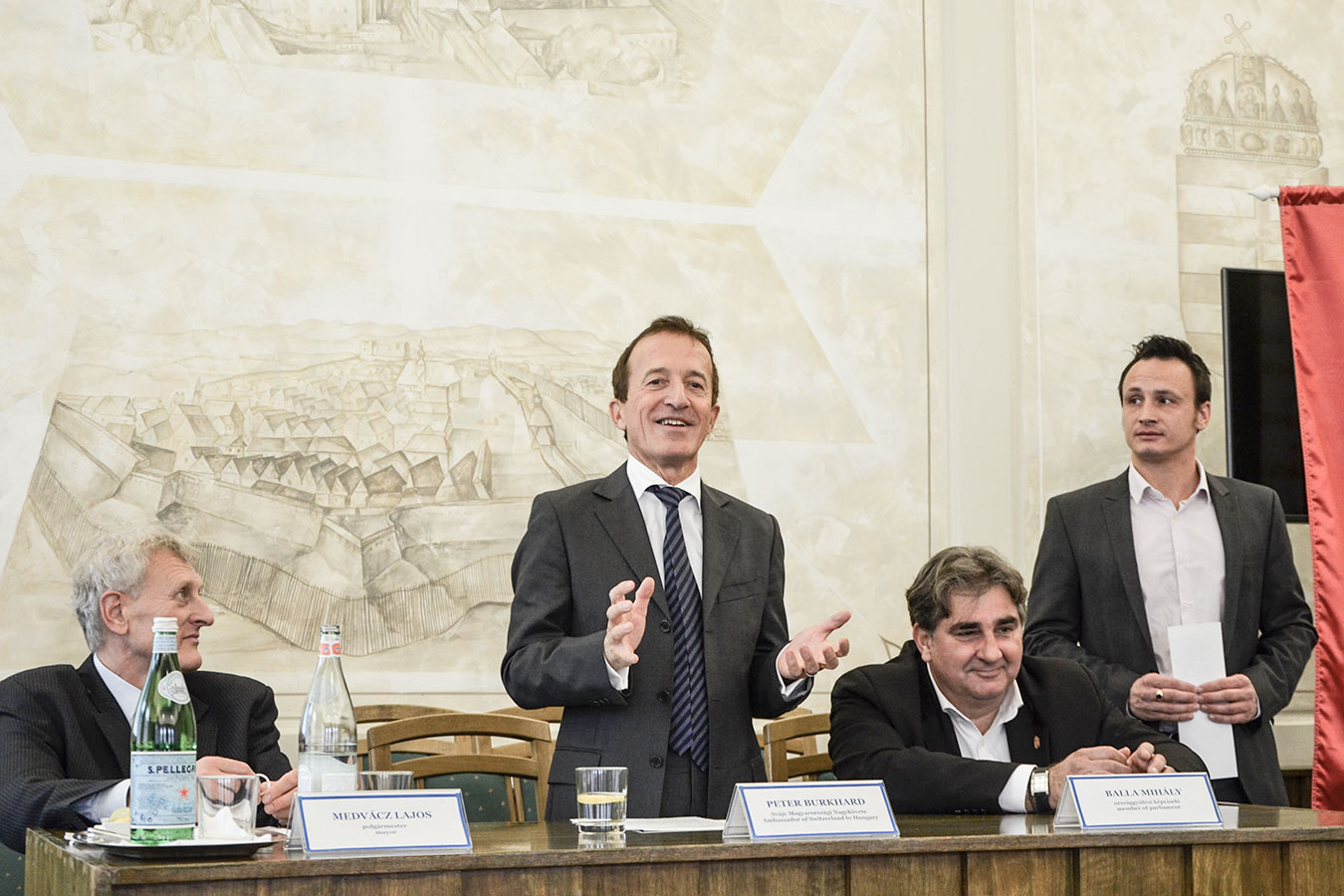 At the closing ceremony for the project 'Rehabilitation of the Drinking Water Supply of the City and Region of Balassagyarmat' (07.11.2016)
At the closing ceremony for the project 'Rehabilitation of the Drinking Water Supply of the City and Region of Balassagyarmat' (07.11.2016)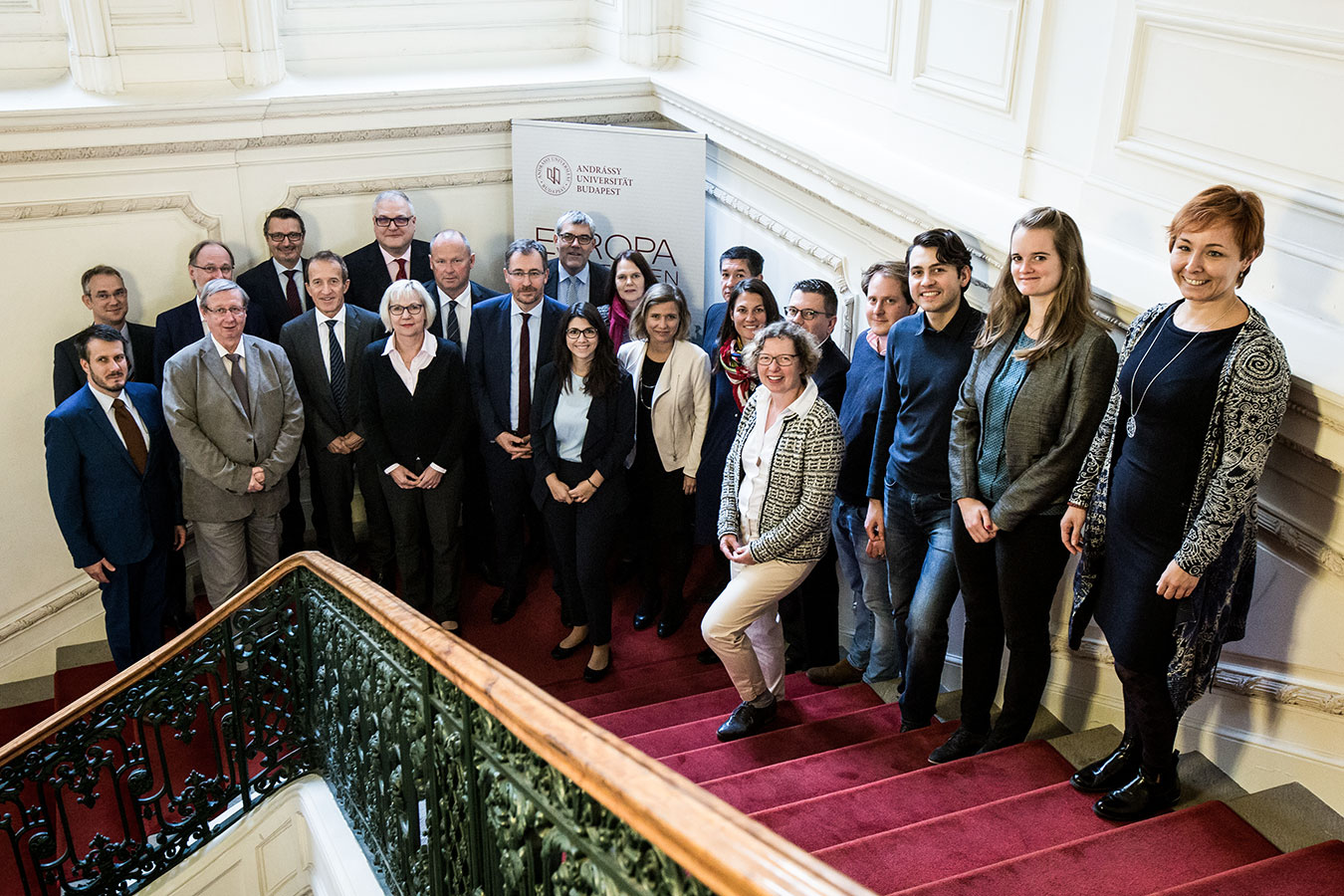 Official visit of a Swiss parliamentary delegation (Foreign Policy Commission of the National Council) in Budapest (Andrássy University, 26.10.2017)
Official visit of a Swiss parliamentary delegation (Foreign Policy Commission of the National Council) in Budapest (Andrássy University, 26.10.2017)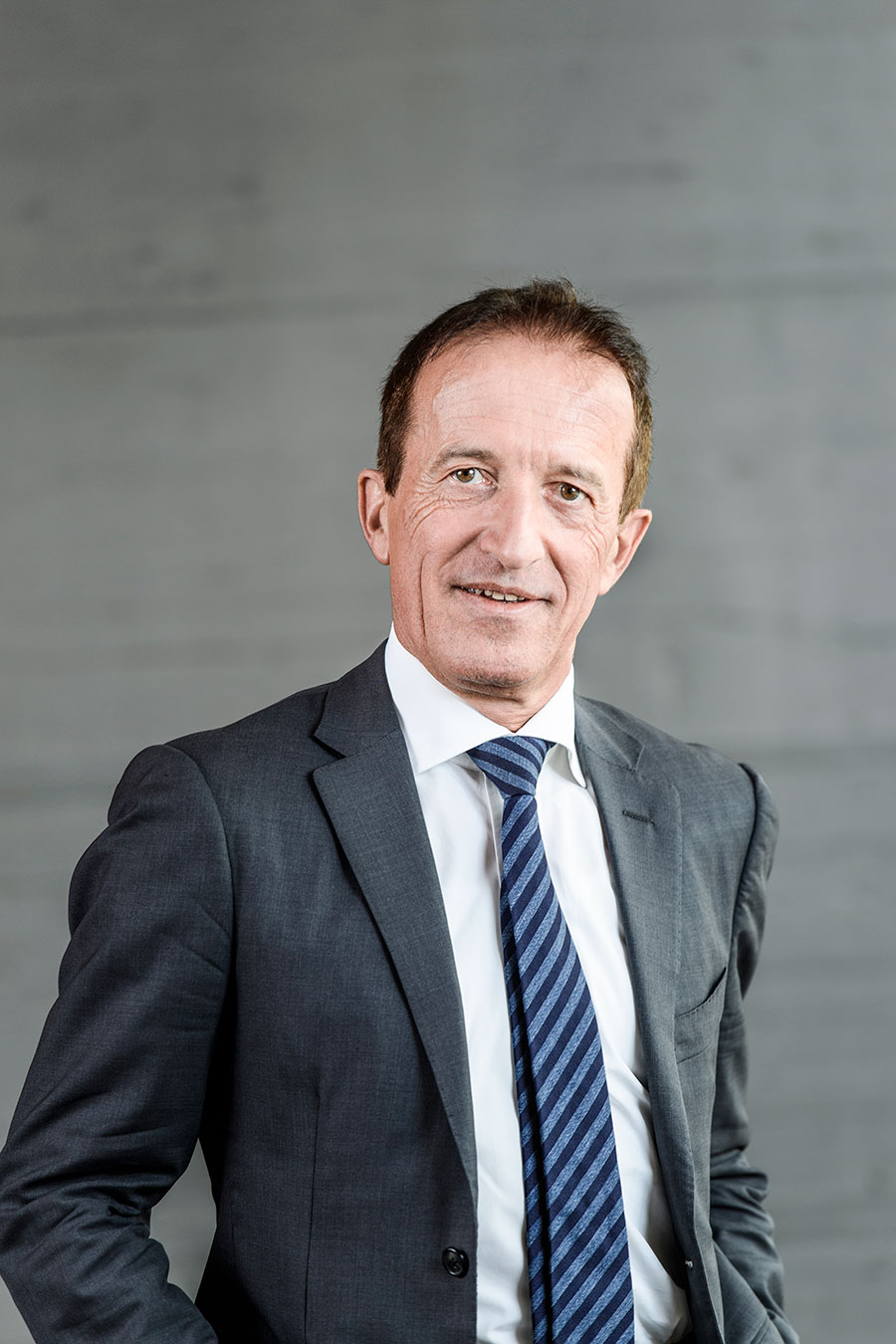 Photo by the Swiss Federal Department of Foreign Affairs
Photo by the Swiss Federal Department of Foreign Affairs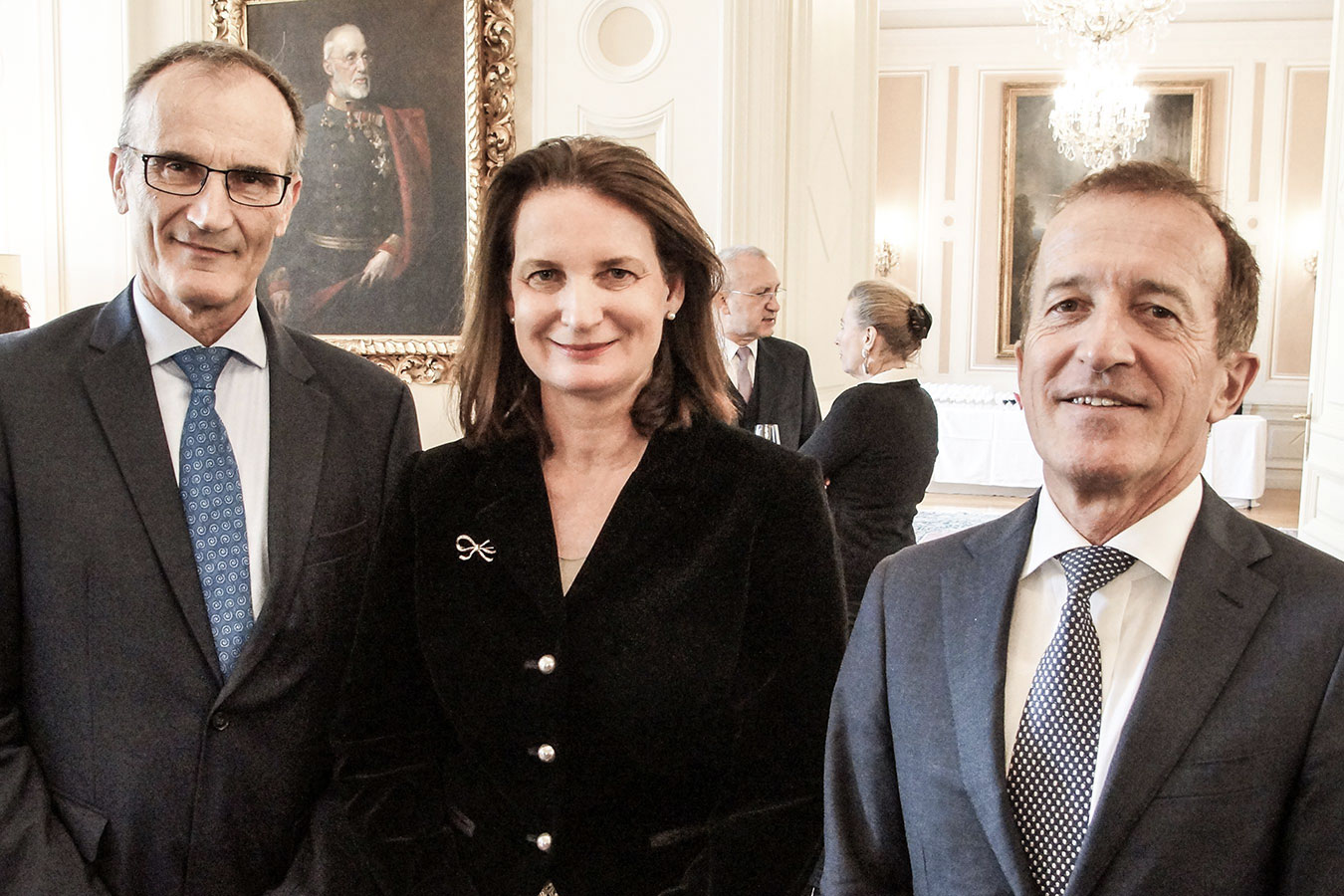 With German Ambassador
With German Ambassador  Photo by
Photo by 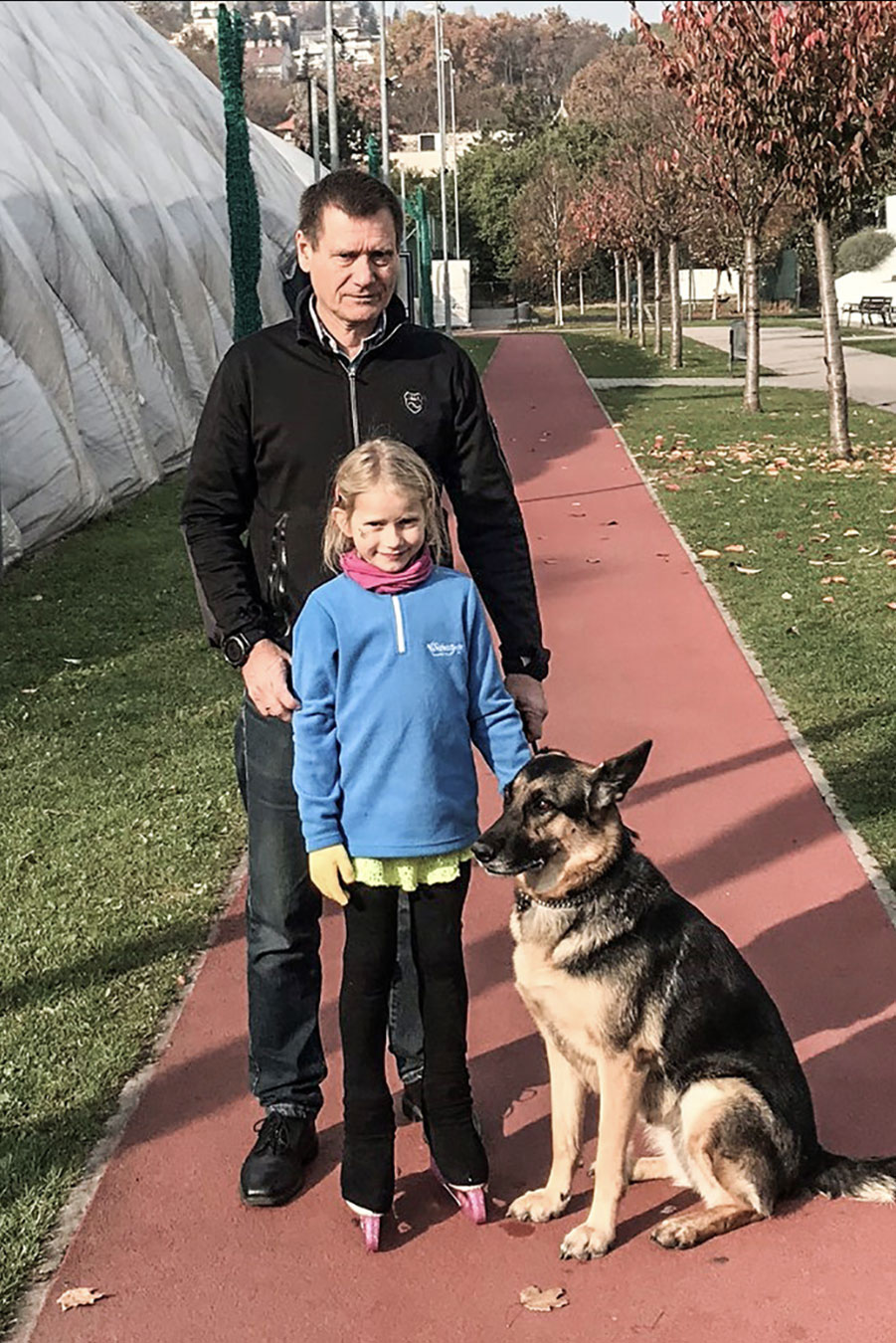 The ambassador with his youngest child, Katrine, and the youngest member of the family, Lajka (Private archive)
The ambassador with his youngest child, Katrine, and the youngest member of the family, Lajka (Private archive)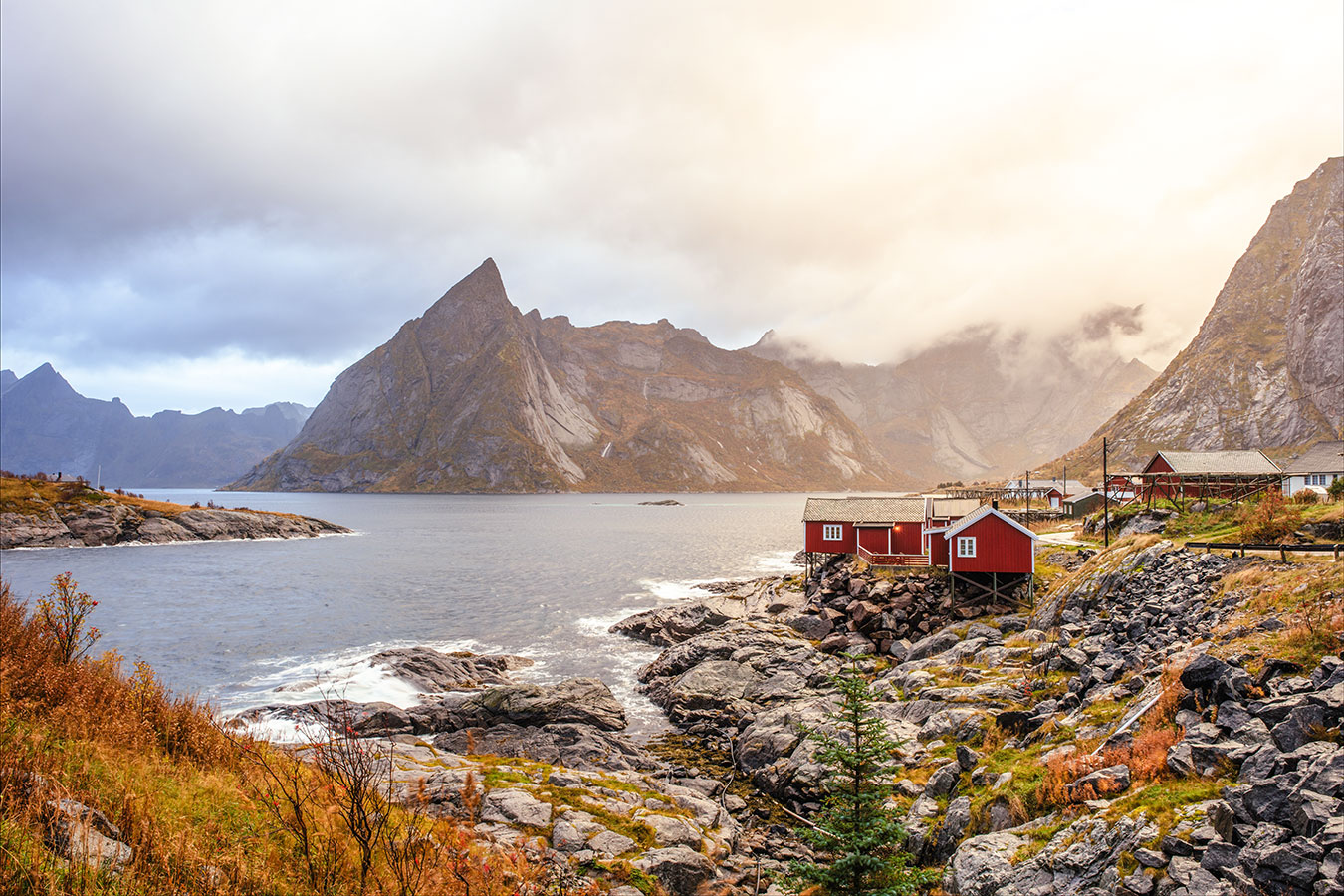 Photo by
Photo by 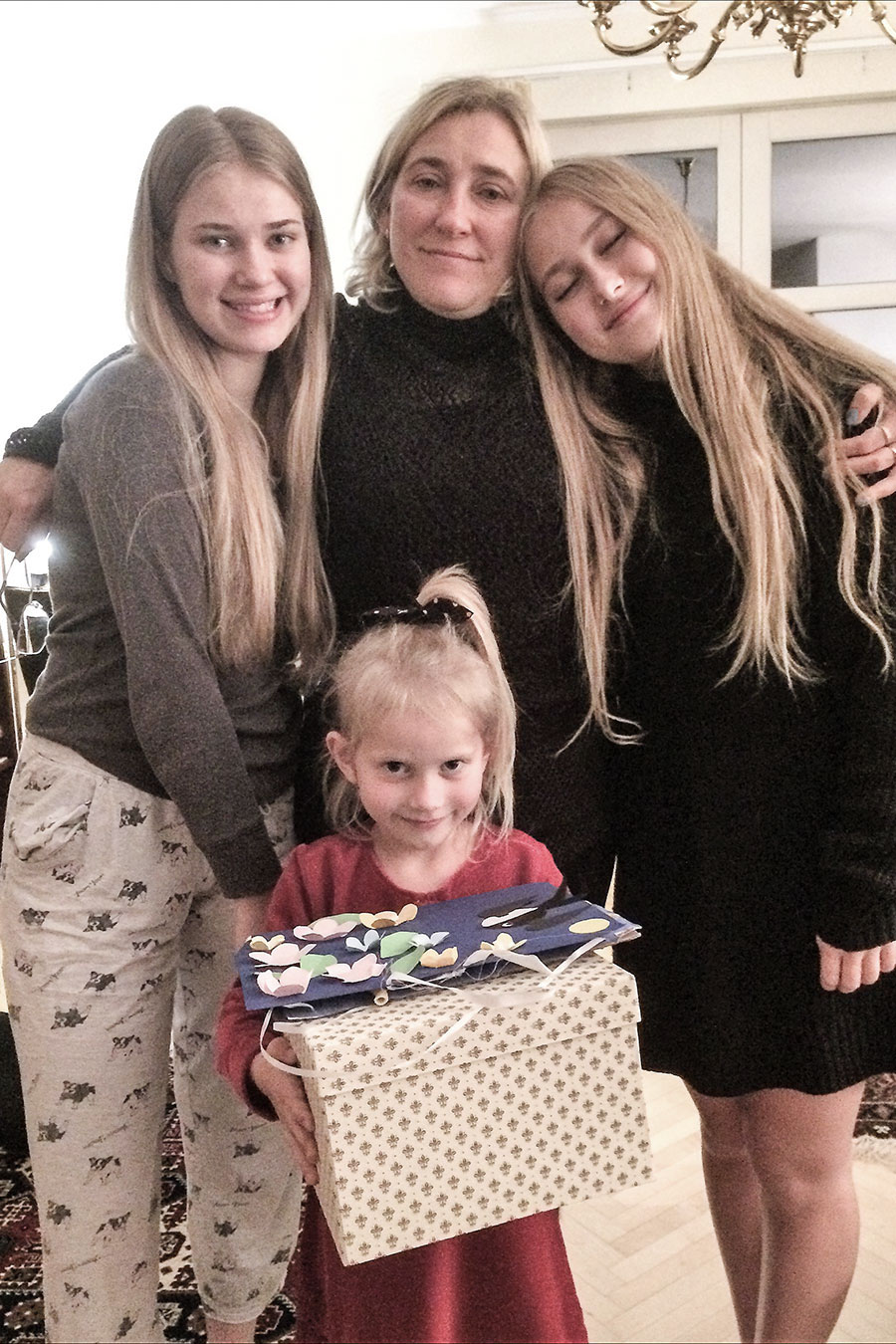
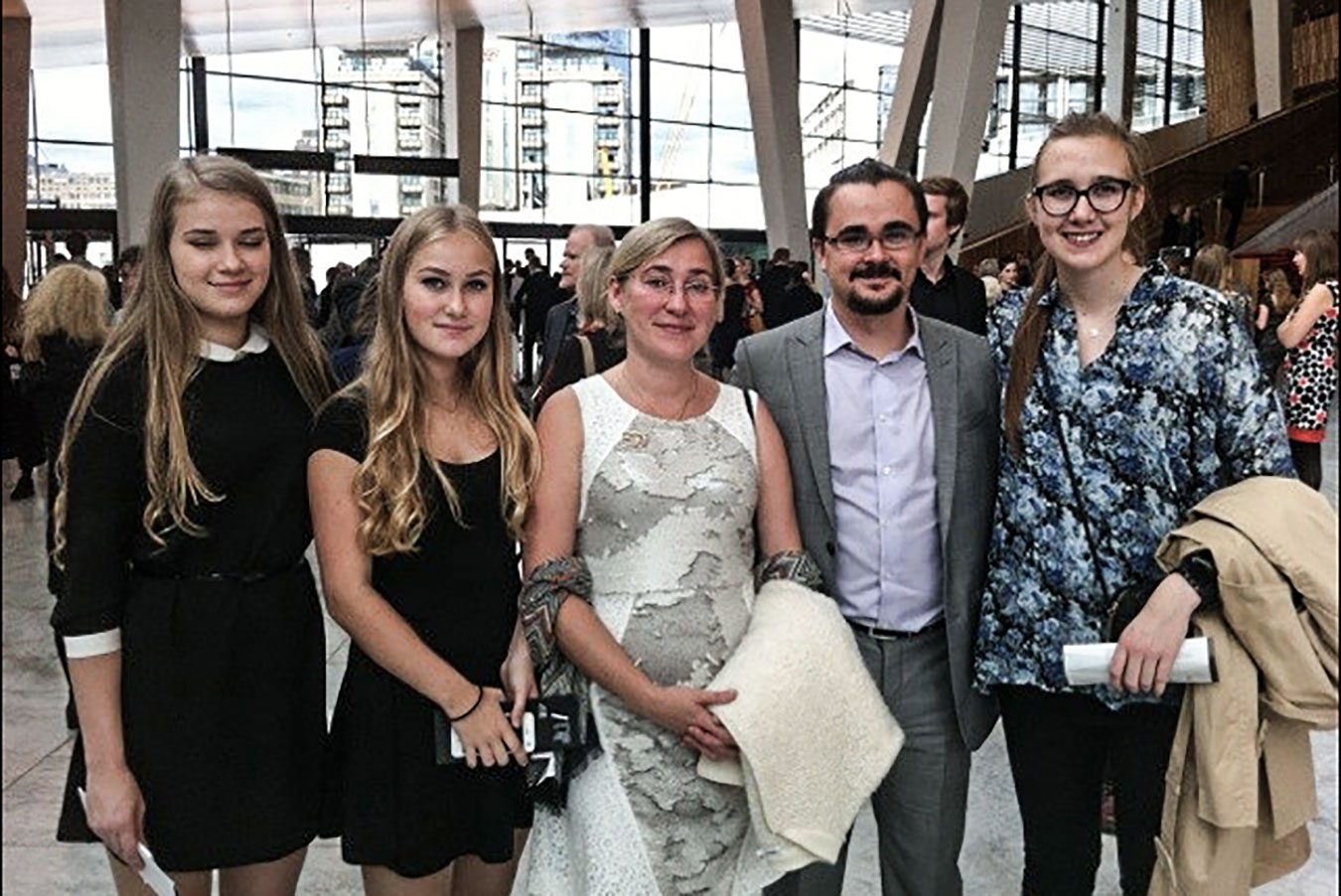
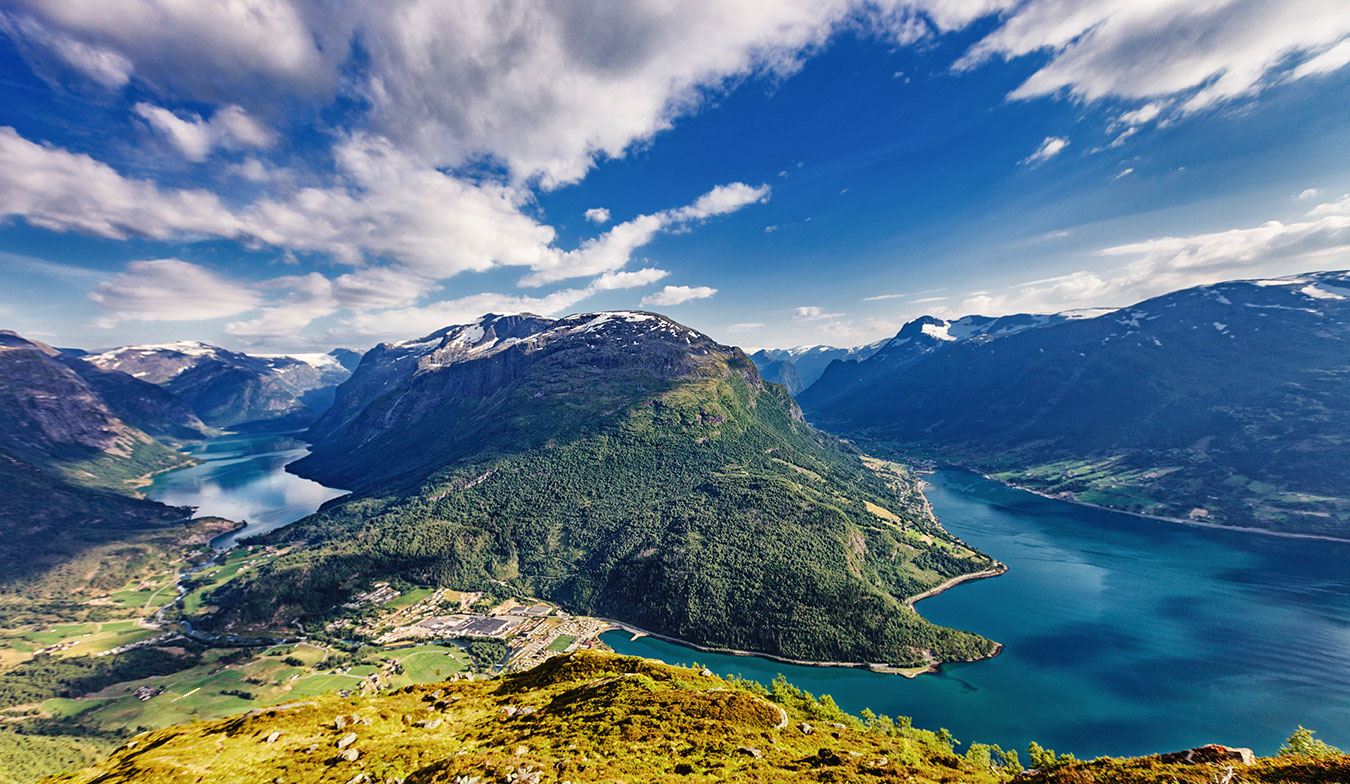
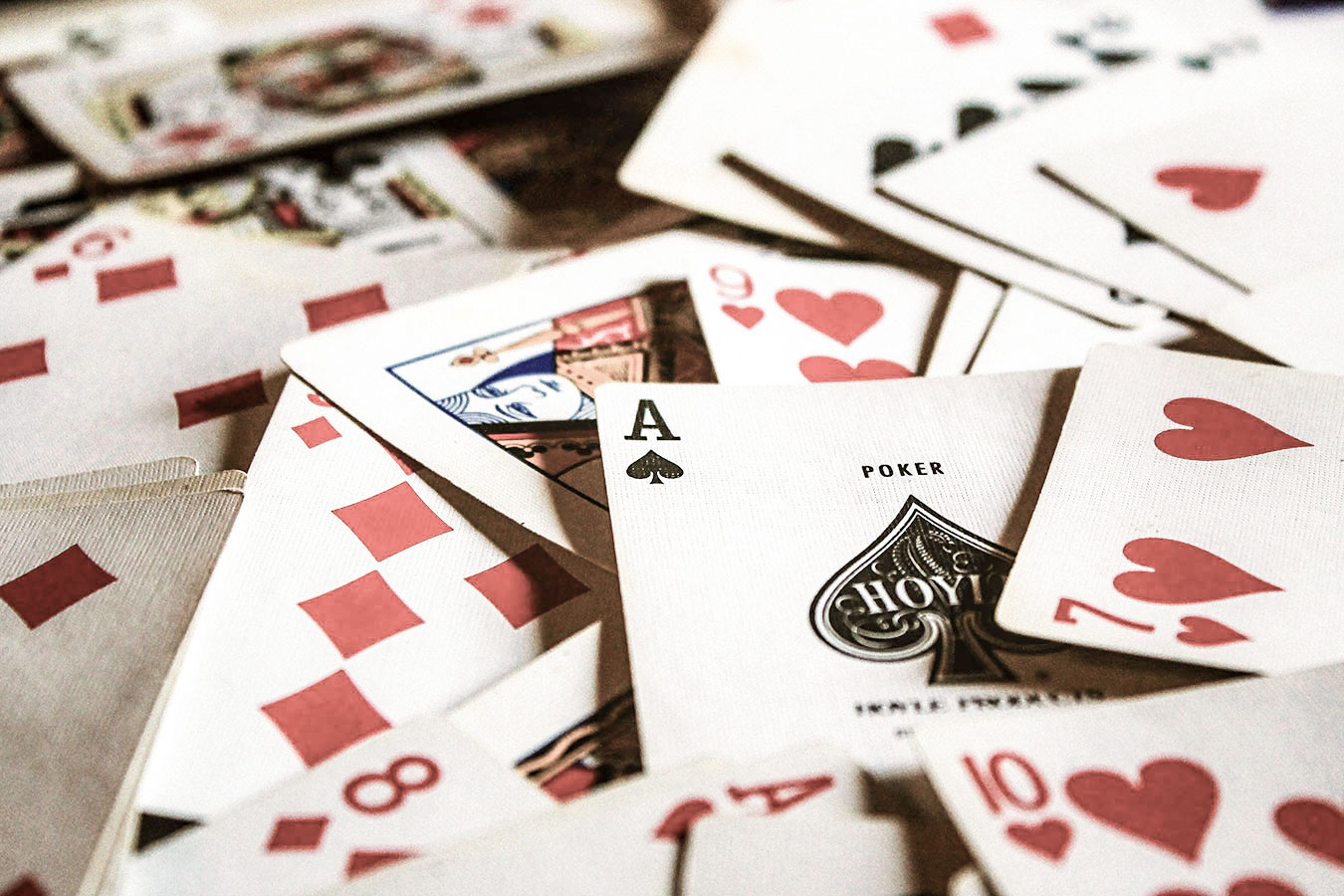 >> Belgian Ambassador Reveals the Trump Cards of Diplomacy <<
>> Belgian Ambassador Reveals the Trump Cards of Diplomacy <<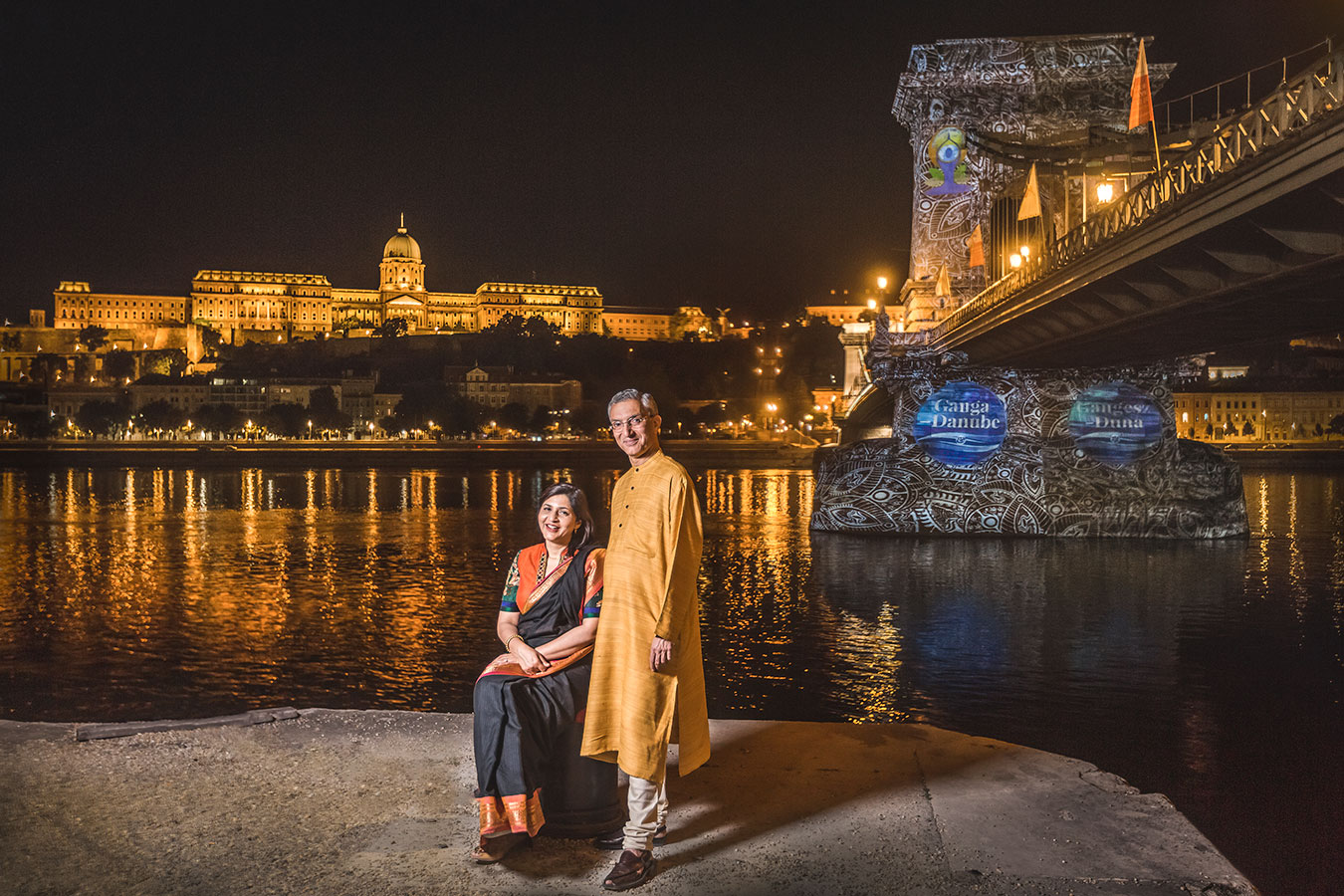 >> Confession of an Ambassador in the Shadow of Terror <<
>> Confession of an Ambassador in the Shadow of Terror <<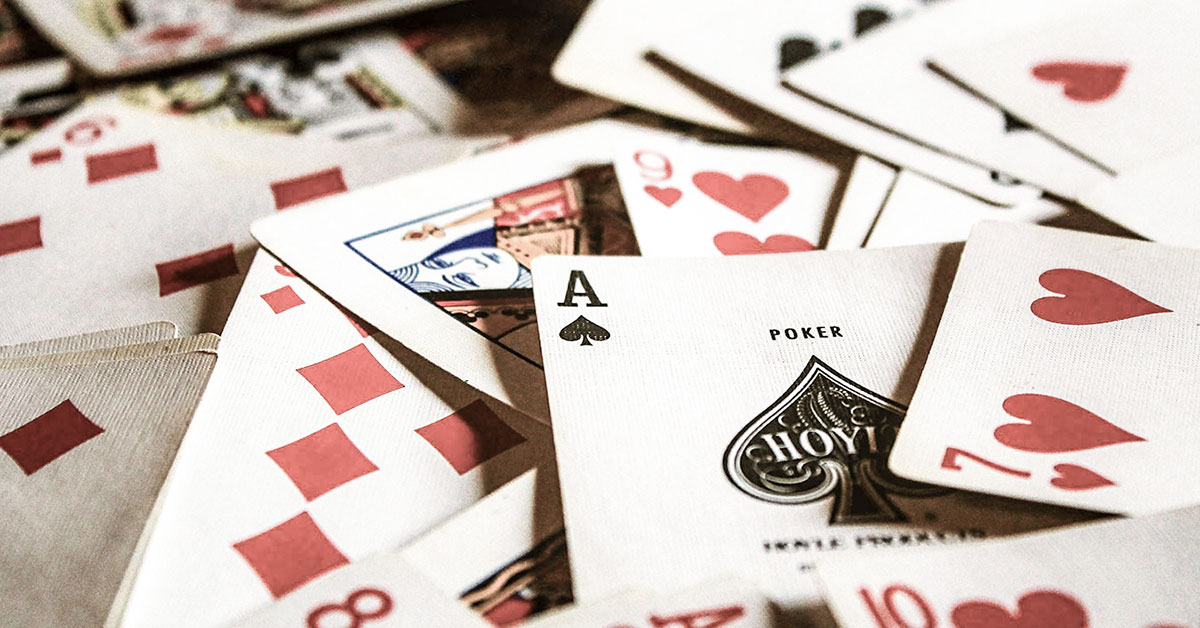 Photo by Jack Hamilton
Photo by Jack Hamilton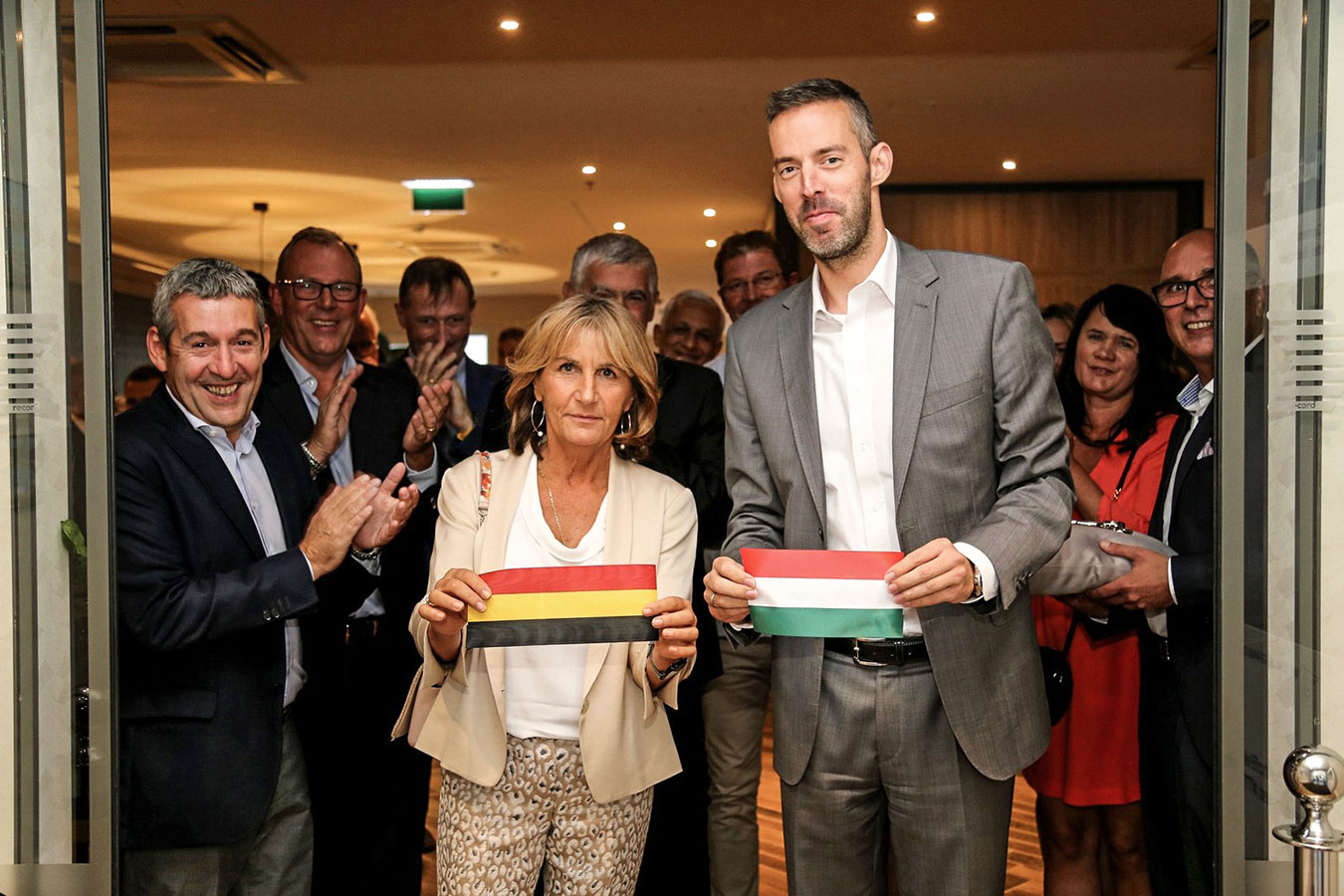 Inauguration of a Belgian hotel in Budapest
Inauguration of a Belgian hotel in Budapest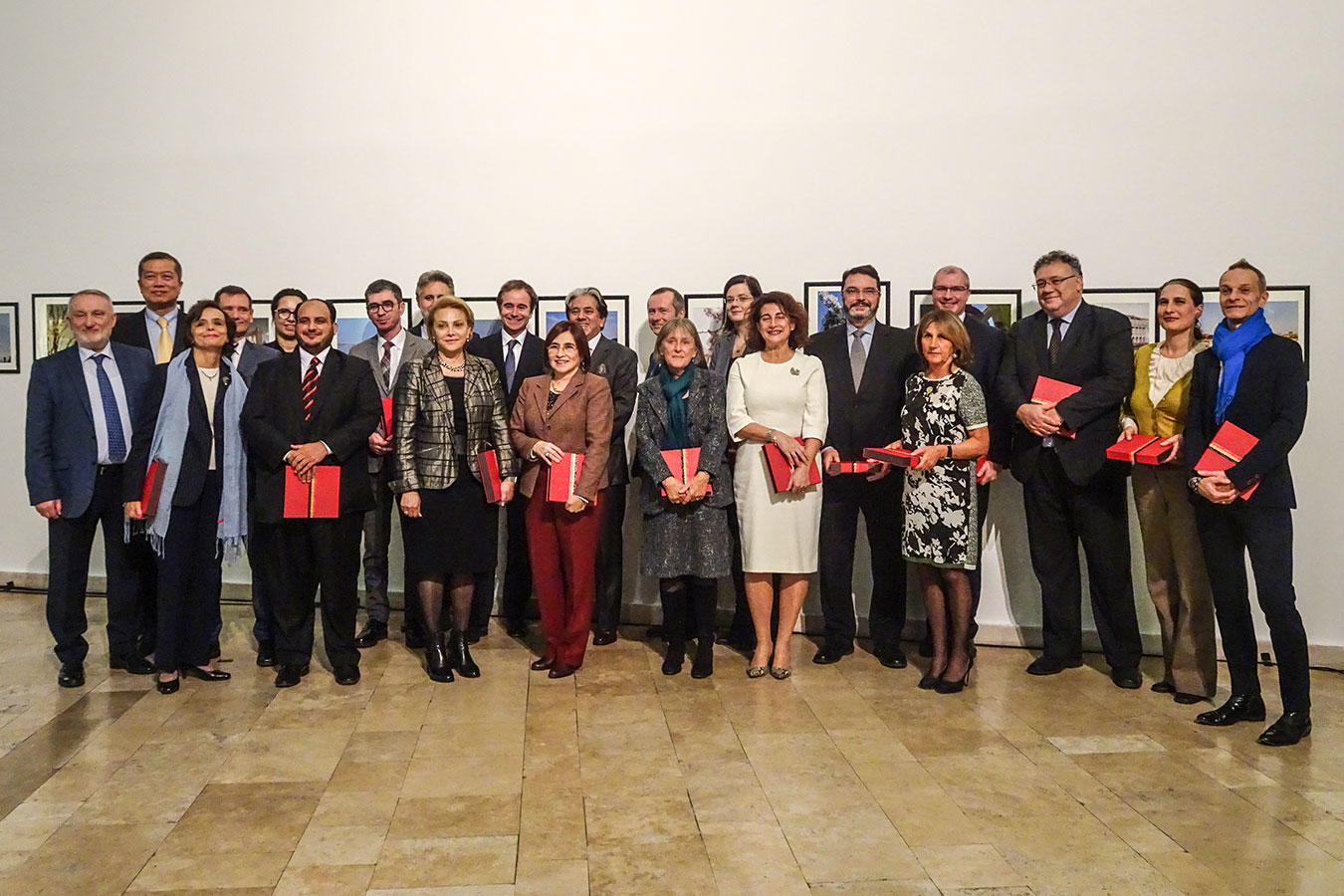 At the award ceremony of the photo contest 'Budapest atmosphère', organized by Madam Ambassador for her fellow ambassadors
At the award ceremony of the photo contest 'Budapest atmosphère', organized by Madam Ambassador for her fellow ambassadors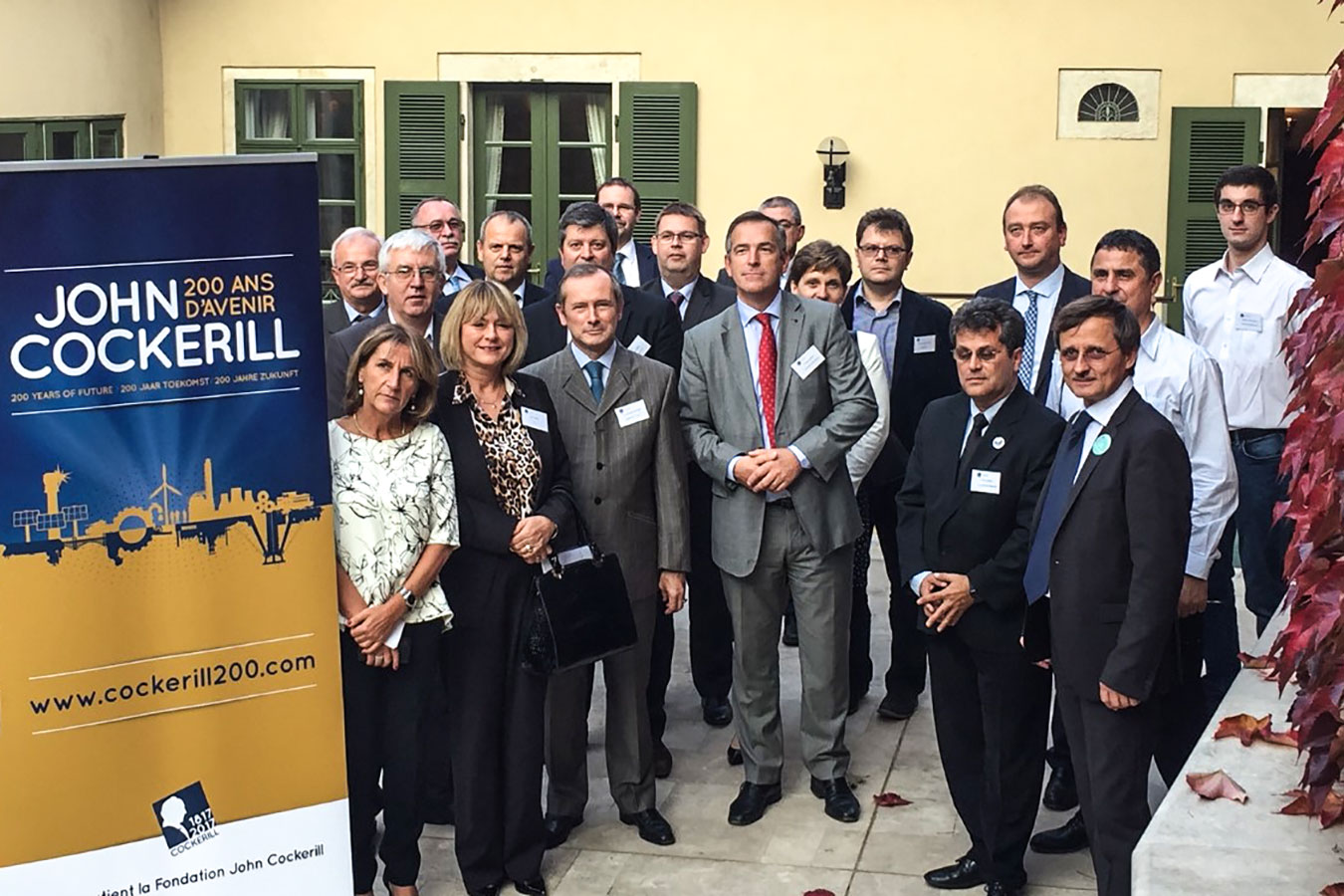 Reception at the Ambassador's Residence
Reception at the Ambassador's Residence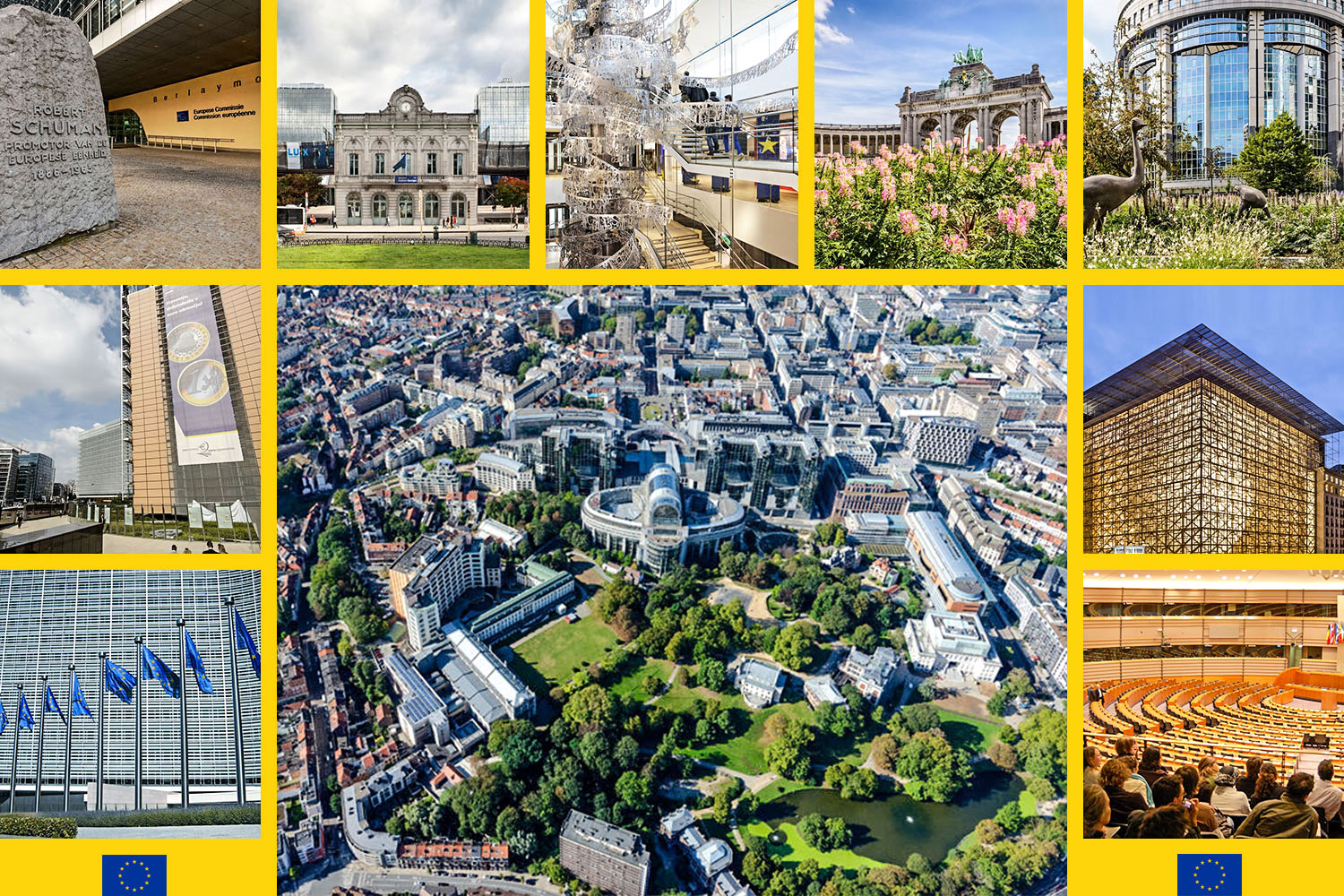 Photo by
Photo by 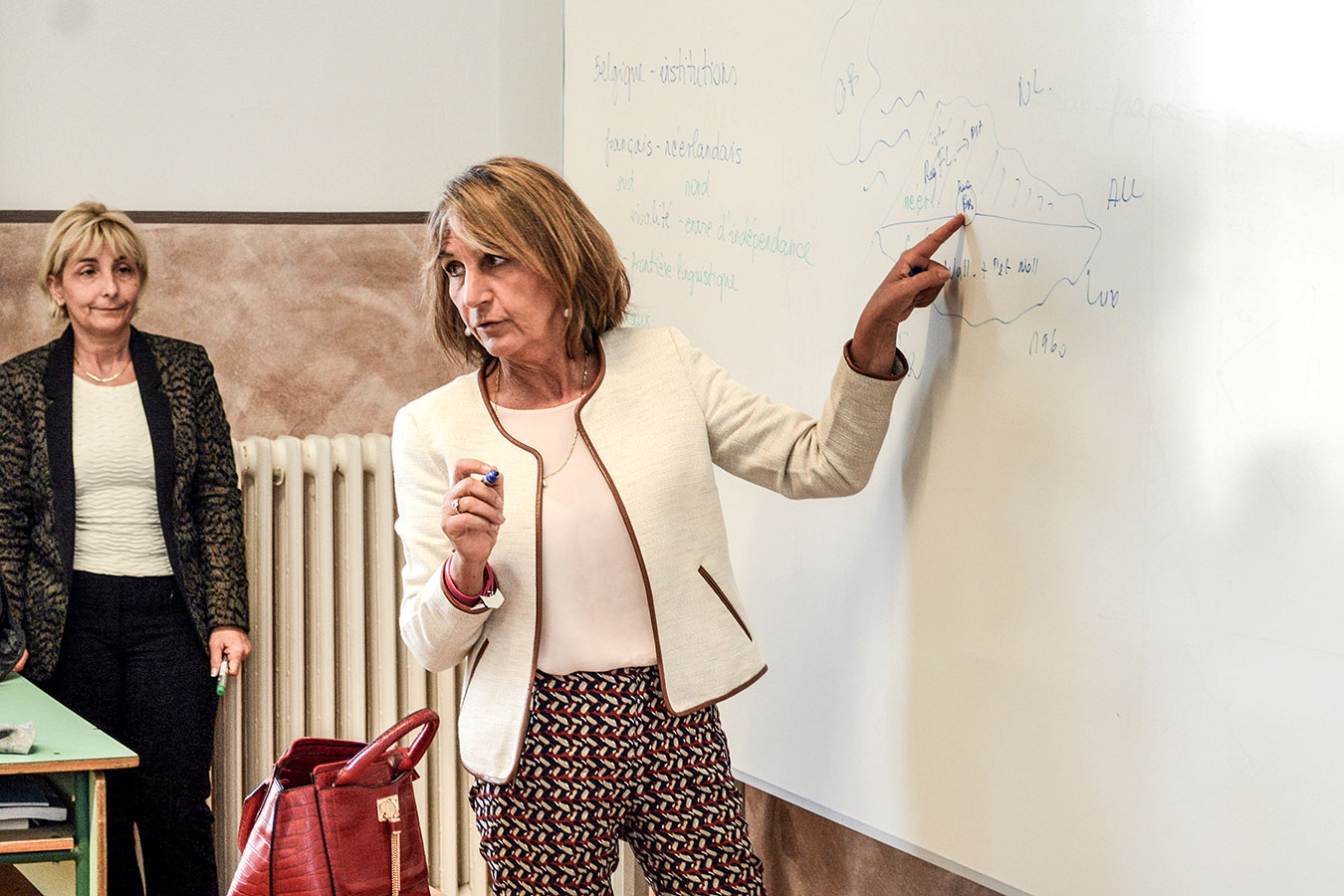 Giving a lecture on Belgium at a university
Giving a lecture on Belgium at a university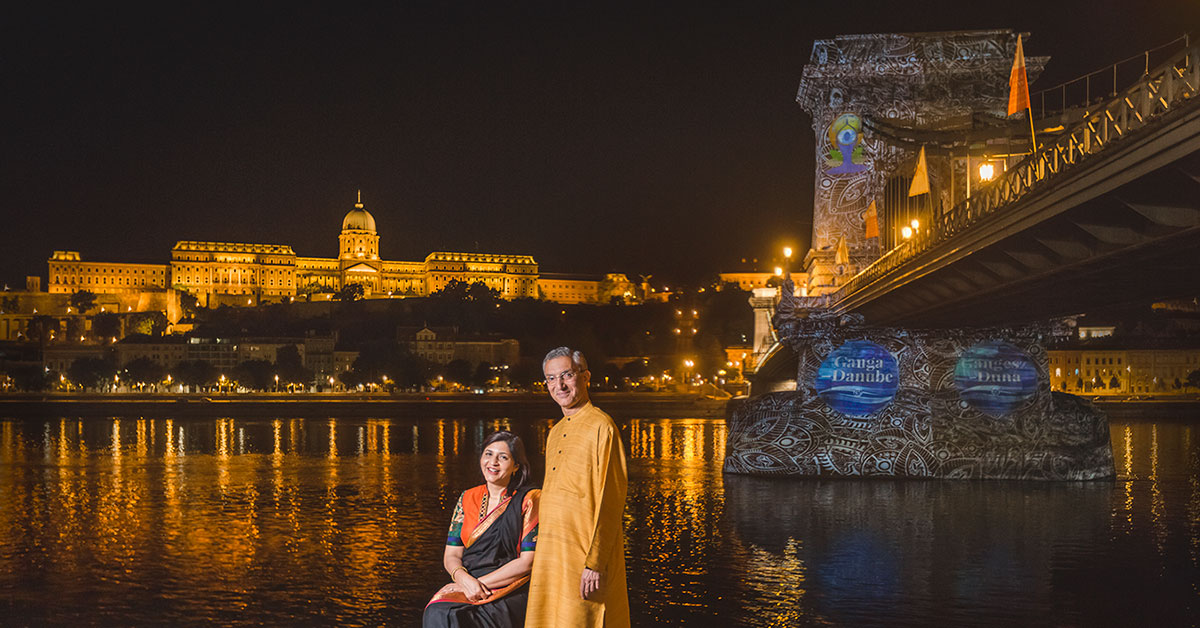 Photo by Balazs Farkas-Mohi &
Photo by Balazs Farkas-Mohi & 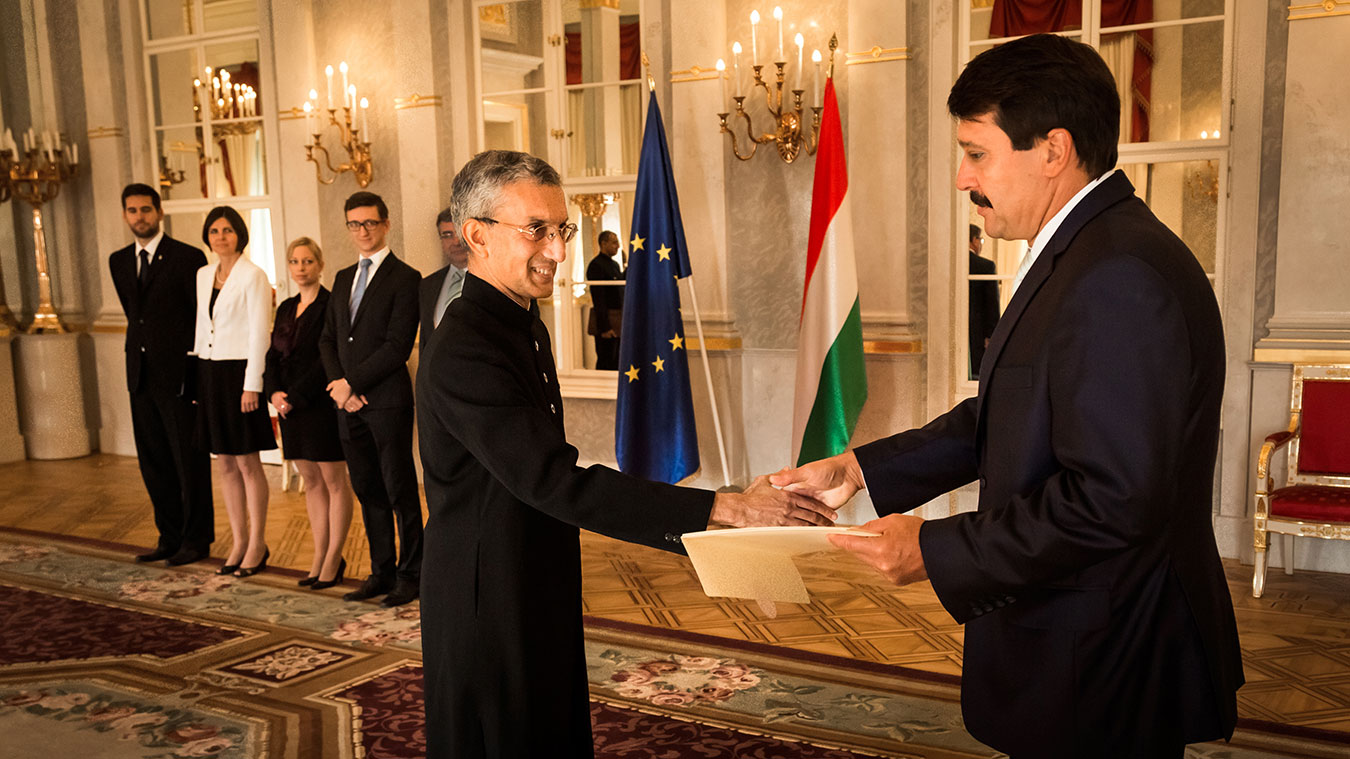 Ambassador presenting his credentials to H.E. János Áder, President of Hungary (Photo by Balazs Farkas-Mohi)
Ambassador presenting his credentials to H.E. János Áder, President of Hungary (Photo by Balazs Farkas-Mohi)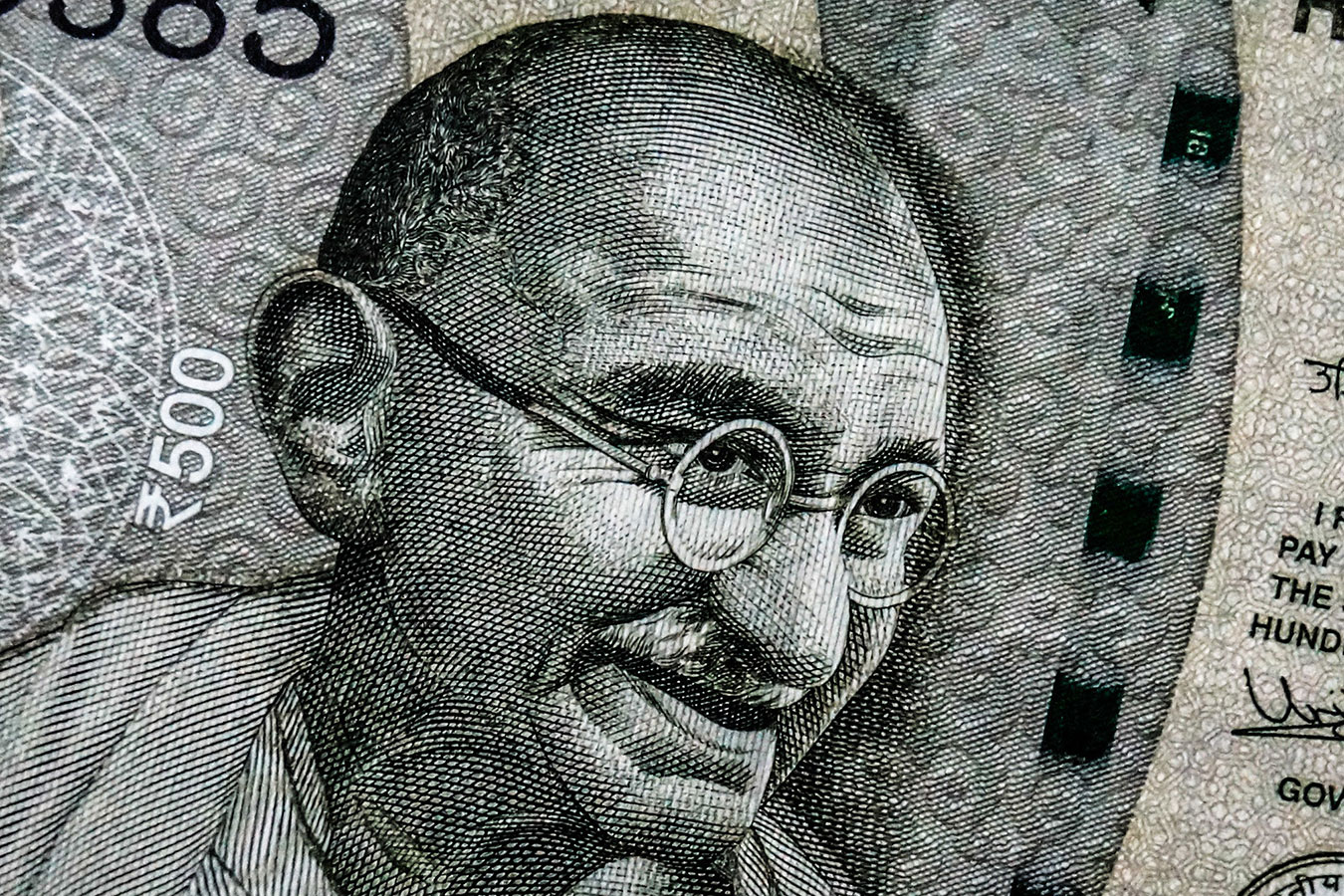 Photo by
Photo by 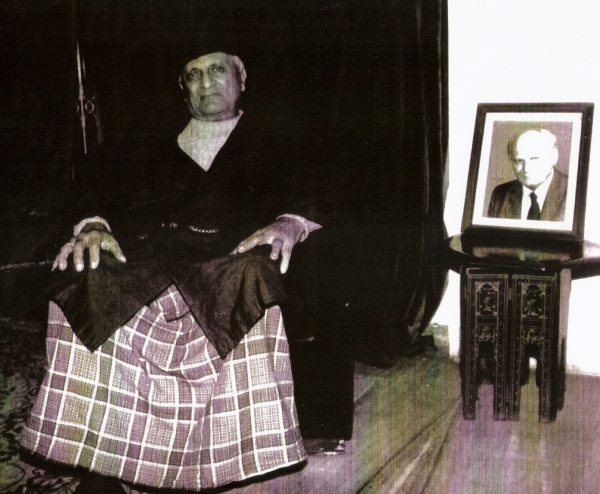 Photo by
Photo by 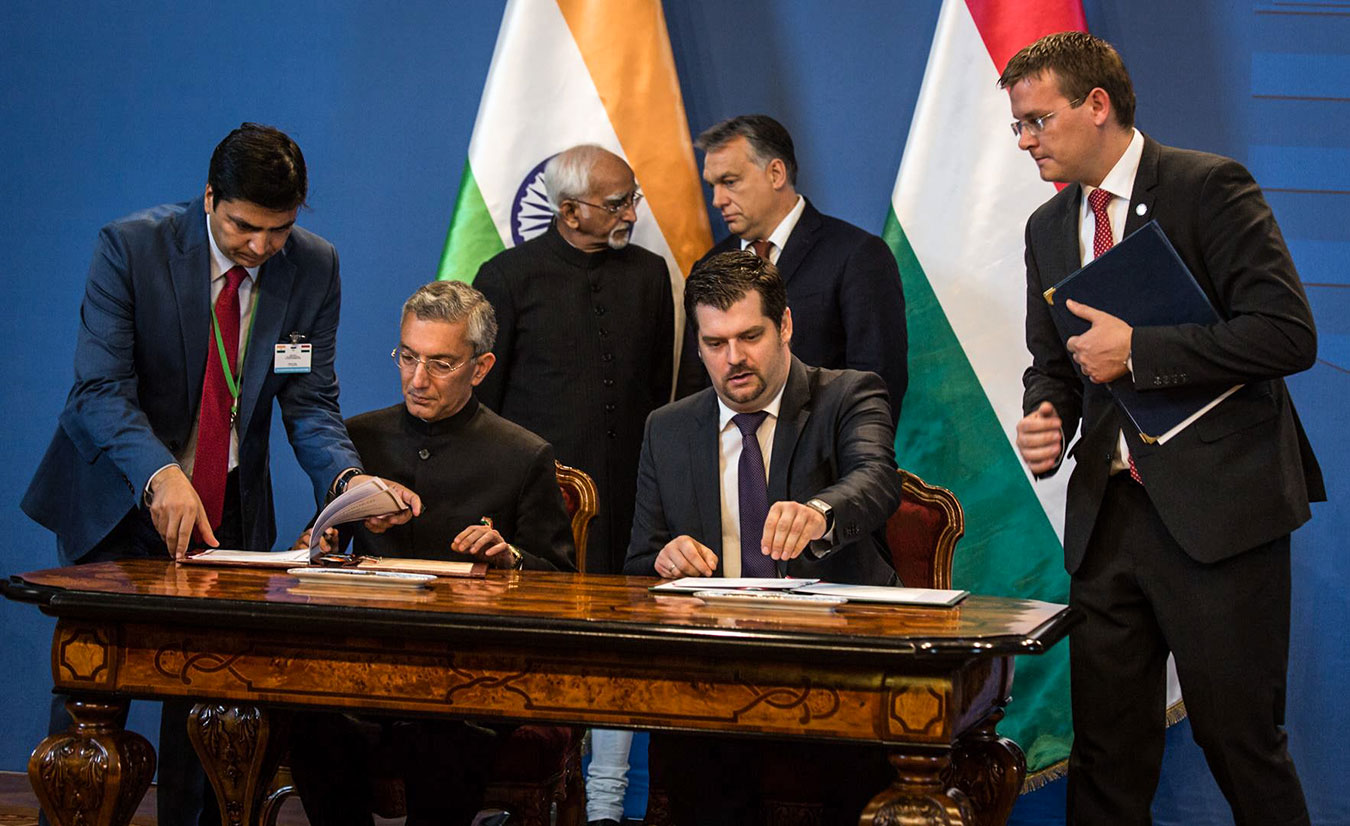 Signing an MOU in the Parliament on the occasion of the official visit of H.E. Hamid Ansari, Vice President of India (Photo by Balazs Farkas-Mohi)
Signing an MOU in the Parliament on the occasion of the official visit of H.E. Hamid Ansari, Vice President of India (Photo by Balazs Farkas-Mohi)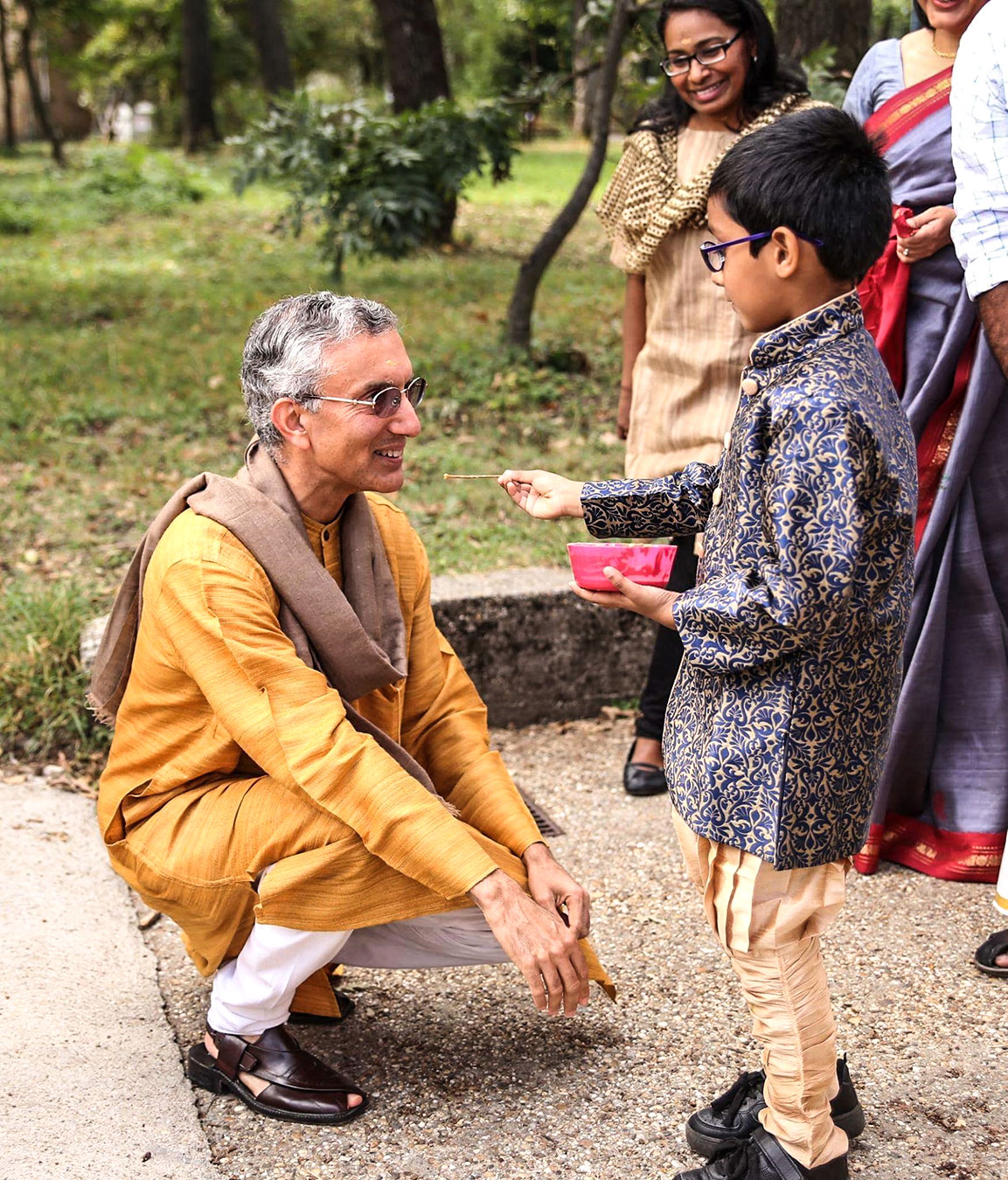 Photo from
Photo from